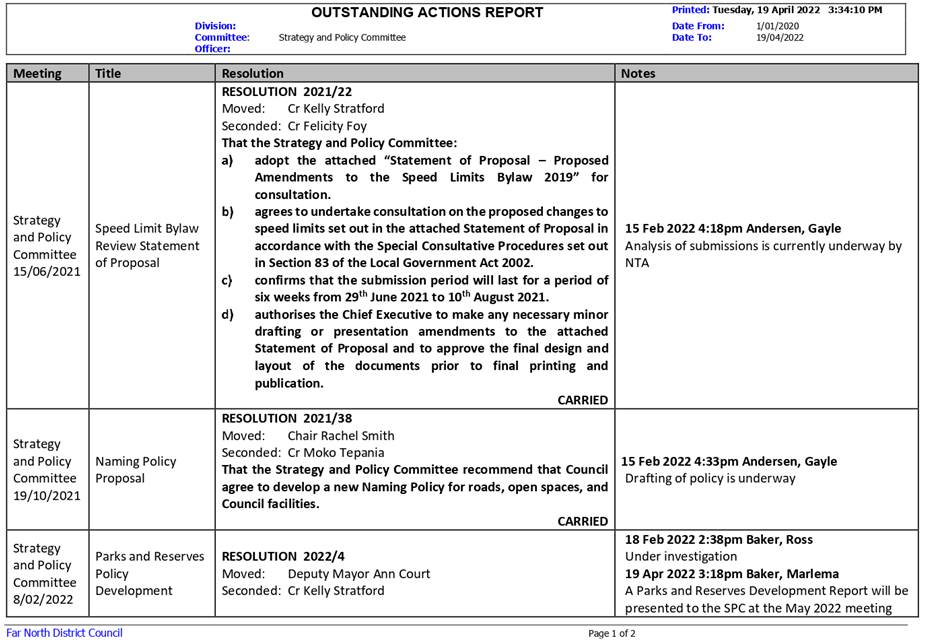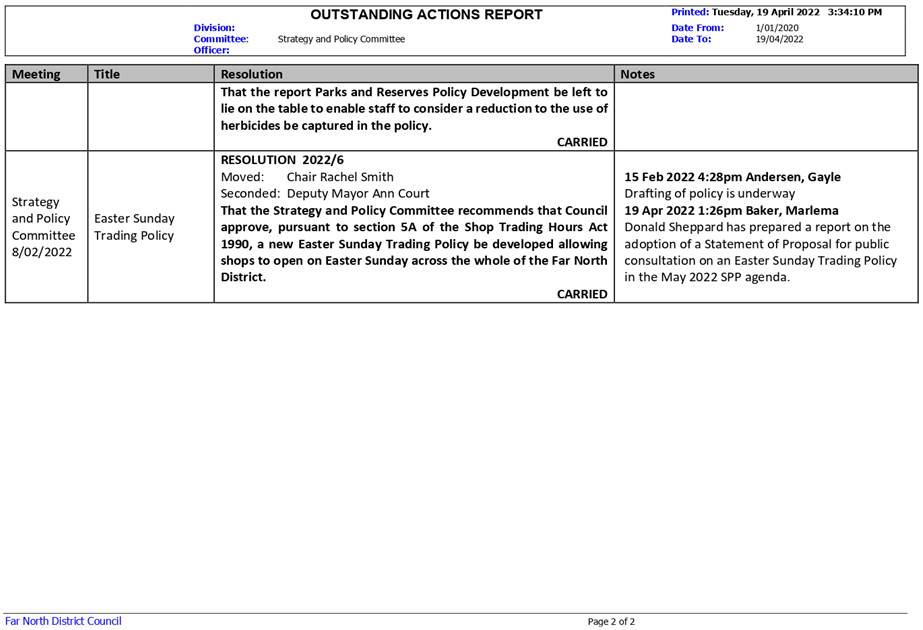
Te
Kaunihera o Tai Tokerau ki te Raki
AGENDA
Strategy and Policy Committee Meeting
Tuesday, 3 May 2022
|
Time:
|
9:30 am
|
|
Location:
|
Council Chamber
Memorial Avenue
Kaikohe
|
Membership:
Cr Rachel Smith - Chairperson
Cr David Clendon – Deputy
Chairperson
Mayor John Carter
Deputy Mayor Ann Court
Cr Dave Collard
Cr Felicity Foy
Cr Kelly Stratford
Cr Moko Tepania
Cr John Vujcich
Member Belinda Ward – Bay of
Islands-Whangaroa Community Board
|

|
Authorising Body
|
Mayor/Council
|
|
Status
|
Standing Committee
|
|
COUNCIL COMMITTEE
|
Title
|
Strategy and Policy Committee
Terms of
Reference
|
|
Approval Date
|
19 December 2019
|
|
Responsible Officer
|
Chief Executive
|
Purpose
The purpose of the Strategy and Policy
Committee (the Committee) is to set direction for the district, determine
specific outcomes that need to be met to deliver on that vision, and set in
place the strategies, policies and work programmes to achieve those goals.
In determining and shaping the
strategies, policies and work programme of the Council, the Committee takes a
holistic approach to ensure there is strong alignment between the objectives
and work programmes of the strategic outcomes of Council, being:
·
Better data and information
·
Affordable core infrastructure
·
Improved Council capabilities and performance
·
Address affordability
·
Civic leadership and advocacy
·
Empowering communities
The Committee will review the
effectiveness of the following aspects:
·
Trust and confidence in decision-making
by keeping our communities informed and involved in decision-making.
·
Operational performance including
strategy and policy development, monitoring and reporting on significant
projects, including, but not limited to:
o FN2100
o District wide strategies (Infrastructure/ Reserves/Climate
Change/Transport)
o District Plan
o Significant projects (not infrastructure)
o Financial Strategy
o Data Governance
o Affordability
·
Consultation and engagement including
submissions to external bodies / organisations
To perform his
or her role effectively, each Committee member must develop and maintain
his or her skills and knowledge,
including an understanding of the Committee’s responsibilities, and of
the Council’s business, operations and risks.
Power to
Delegate
The Strategy
and Policy Committee may not delegate any of its responsibilities, duties or
powers.
Membership
The Council will determine the
membership of the Strategy and Policy Committee.
The Strategy and Policy
Committee will comprise of at least seven elected members (one of which
will be the chairperson).
|
Mayor
Carter
|
|
Rachel
Smith – Chairperson
|
|
David
Clendon – Deputy Chairperson
|
|
Moko
Tepania
|
|
Ann Court
|
|
Felicity
Foy
|
|
Dave
Collard
|
|
John
Vujcich
|
|
Belinda
Ward – Bay of Islands-Whangaroa Community Board
|
Non-appointed Councillors may attend meetings with speaking
rights, but not voting rights.
Quorum
The quorum at a meeting of the Strategy and Policy Committee is 5
members.
Frequency of Meetings
The Strategy and Policy Committee shall meet every 6 weeks
but may be cancelled if there is no business.
Committees
Responsibilities
The Committees responsibilities
are described below:
Strategy and Policy Development
·
Oversee the Strategic Planning and
Policy work programme
·
Develop and agree strategy and policy
for consultation / engagement.
·
Recommend to Council strategy and
policy for adoption.
·
Monitor and review strategy and policy.
Service
levels (non-regulatory)
·
Recommend service level changes and new
initiatives to the Long Term and Annual Plan processes.
Policies
and Bylaws
·
Leading the development and review of Council's policies and
district bylaws when and as directed by Council
·
Recommend to Council new or amended bylaws for adoption
Consultation and Engagement
·
Conduct any consultation processes
required on issues before the Committee.
·
Act as a community interface (with, as
required, the relevant Community Board(s)) for consultation on policies and as
a forum for engaging effectively.
·
Receive reports from Council’s
Portfolio and Working Parties and monitor engagement.
·
Review as necessary and agree the model
for Portfolios and Working Parties.
Strategic
Relationships
·
Oversee Council’s strategic
relationships, including with Māori, the Crown, and foreign investors,
particularly China
·
Oversee, develop, and approve engagement opportunities triggered
by the provisions of Mana Whakahono-ā-Rohe under the Resource
Management Act 1991
·
Recommend to Council the adoption of
new Memoranda of Understanding (MOU)
·
Meet annually with local MOU partners
·
Quarterly reviewing operation of all
Memoranda of Understanding
·
Quarterly reviewing Council’s
relationships with iwi, hapū, and post-settlement governance entities in
the Far North District
·
Monitor Sister City relationships
·
Special projects (such as Te Pū o
Te Wheke or water storage projects)
Submissions
and Remits
·
Approve submissions to, and endorse
remits for, external bodies / organisations and on legislation and regulatory
proposals, provided that:
o If there is insufficient time for the matter to be
determined by the Committee before the submission “close date” the
submission can be agreed by the relevant Portfolio Leaders, Chair of the
Strategy and Policy Committee, Mayor and Chief Executive (all Councillors must
be advised of the submission and provided copies if requested).
o If the submission is of a technical and operational nature,
the submission can be approved by the Chief Executive (in consultation with the
relevant Portfolio Leader prior to lodging the submission).
·
Oversee, develop, and approve any
relevant remits triggered by governance or management commencing in January of
each calendar year.
·
Recommend to Council those remits that
meet Council’s legislative, strategic, and operational objectives to
enable voting at the LGNZ AGM. All endorsements will take into account
the views of our communities (where possible) and consider the unique
attributes of the district.
Fees
·
Set fees in accordance with legislative
requirements unless the fees are set under a bylaw (in which case the decision
is retained by Council and the committee has the power of recommendation) or
set as part of the Long Term Plan or Annual Plan (in which case the decision
will be considered by the Long Term Plan and Annual Plan and approved by
Council).
District
Plan
·
Review and approve for notification a proposed District Plan, a
proposed change to the District Plan, or a variation to a proposed plan or
proposed plan change (excluding any plan change notified under clause 25(2)(a),
First Schedule of the Resource Management Act 1991);
·
Withdraw a proposed plan or plan change under clause 8D, First
Schedule of the Resource Management Act 1991.
·
Make the following decisions to facilitate the administration of
proposed plan, plan changes, variations, designation and heritage order
processes:
§ To authorise the resolution of appeals on a proposed
plan, plan change or variation unless the issue is minor and approved by the
Portfolio Leader District Plan and the Chair of the Regulatory committee.
§ To decide whether a decision of a Requiring Authority
or Heritage Protection Authority will be appealed to the Environment Court by
council and authorise the resolution of any such appeal.
§ To consider and approve council submissions on a
proposed plan, plan changes, and variations.
§ To manage the private plan change process.
§ To accept, adopt or reject private plan change
applications under clause 25 First Schedule Resource Management Act (RMA).
Rules and
Procedures
Council’s
Standing Orders and Code of Conduct apply to all the committee’s
meetings.
Annual reporting
The Chair of the Committee will
submit a written report to the Chief Executive on an annual basis. The
review will summarise the activities of the Committee and how it has contributed to the Council’s
governance and strategic objectives. The Chief Executive
will place the report on the next available agenda of the governing body.
STRATEGY AND
POLICY COMMITTEE - MEMBERS REGISTER OF INTERESTS
|
Name
|
Responsibility (i.e.
Chairperson etc)
|
Declaration of
Interests
|
Nature of Potential
Interest
|
Member's Proposed
Management Plan
|
|
Hon John Carter QSO
|
Board Member of the
Local Government Protection Programme
|
Board Member of the
Local Government Protection Program
|
|
|
|
Carter Family Trust
|
|
|
|
|
Rachel Smith (Chair)
|
Friends of Rolands Wood
Charitable Trust
|
Trustee
|
|
|
|
Mid North Family
Support
|
Trustee
|
|
|
|
Property Owner
|
Kerikeri
|
|
|
|
Friends who work at Far
North District Council
|
|
|
|
|
Kerikeri Cruising Club
|
Subscription Member and
Treasurer
|
|
|
|
Vision Kerikeri
|
Financial Member
|
|
|
|
Rachel Smith
(Partner)
|
Property Owner
|
Kerikeri
|
|
|
|
Friends who work at Far
North District Council
|
|
|
|
|
Kerikeri Cruising Club
|
Subscription Member
|
|
|
|
Vision Kerikeri
|
Financial Member
|
|
|
|
Town and General
Groundcare Limited
|
Director. Shareholder
|
|
|
|
David Clendon
(Deputy Chair)
|
Chairperson – He
Waka Eke Noa Charitable Trust
|
None
|
|
Declare if any issue
arises
|
|
Member of Vision
Kerikeri
|
None
|
|
Declare if any issue
arises
|
|
Joint owner of family
home in Kerikeri
|
Hall Road, Kerikeri
|
|
|
|
David Clendon
– Partner
|
Resident Shareholder on
Kerikeri Irrigation
|
|
|
|
|
David Collard
|
Snapper Bonanza 2011
Limited
|
45% Shareholder and
Director
|
|
|
|
Trustee of Te Ahu
Charitable Trust
|
Council delegate to
this board
|
|
|
|
Deputy Mayor Ann
Court
|
Waipapa Business
Association
|
Member
|
|
Case by case
|
|
Warren Pattinson
Limited
|
Shareholder
|
Building company. FNDC
is a regulator and enforcer
|
Case by case
|
|
Kerikeri Irrigation
|
Supplies my water
|
|
No
|
|
District Licensing
|
N/A
|
N/A
|
N/A
|
|
Ann Court Trust
|
Private
|
Private
|
N/A
|
|
Waipapa Rotary
|
Honorary member
|
Potential community
funding submitter
|
Declare interest and
abstain from voting.
|
|
Properties on Onekura
Road, Waipapa
|
Owner Shareholder
|
Any proposed FNDC
Capital works or policy change which may have a direct impact
(positive/adverse)
|
Declare interest and
abstain from voting.
|
|
Property on Daroux Dr,
Waipapa
|
Financial interest
|
Any proposed FNDC
Capital works or policy change which may have a direct impact
(positive/adverse)
|
Declare interest and
abstain from voting.
|
|
Flowers and gifts
|
Ratepayer 'Thankyou'
|
Bias/
Pre-determination?
|
Declare to Governance
|
|
Coffee and food
|
Ratepayers sometimes
'shout' food and beverage
|
Bias or
pre-determination
|
Case by case
|
|
Staff
|
N/A
|
Suggestion of not being
impartial or pre-determined!
|
Be professional, due
diligence, weigh the evidence. Be thorough, thoughtful, considered impartial
and balanced. Be fair.
|
|
Warren Pattinson
|
My husband is a builder
and may do work for Council staff
|
|
Case by case
|
|
Ann Court - Partner
|
Warren Pattinson
Limited
|
Director
|
Building Company. FNDC
is a regulator
|
Remain at arm’s
length
|
|
Air NZ
|
Shareholder
|
None
|
None
|
|
Warren Pattinson
Limited
|
Builder
|
FNDC is the consent
authority, regulator and enforcer.
|
Apply arm’s
length rules
|
|
Property on Onekura
Road, Waipapa
|
Owner
|
Any proposed FNDC
capital work in the vicinity or rural plan change. Maybe a link to policy
development.
|
Would not submit.
Rest on a case by case basis.
|
|
Felicity Foy
|
Flick Trustee Ltd
|
I am the
director of this company that is the company trustee of Flick Family Trust
that owns properties Seaview Road – Cable Bay, and Allen Bell Drive -
Kaitaia.
|
|
|
|
Elbury Holdings Limited
|
This company is
directed by my parents Fiona and Kevin King.
|
This
company owns several dairy and beef farms, and also dwellings on these farms.
The Farms and dwellings are located in the Far North at Kaimaumau, Bird
Road/Sandhills Rd, Wireless Road/ Puckey Road/Bell Road, the Awanui Straight
and Allen Bell Drive.
|
|
|
Foy Farms Partnership
|
Owner and partner in
Foy Farms - a farm on Church Road, Kaingaroa
|
|
|
|
Foy Farms Rentals
|
Owner and
rental manager of Foy Farms Rentals for dwellings on Church Road, Kaingaroa
and dwellings on Allen Bell Drive, Kaitaia, and property on North Road,
Kaitaia, one title contains a cell phone tower.
|
|
|
|
King Family Trust
|
This trust
owns several titles/properties at Cable Bay, Seaview Rd/State Highway 10 and
Ahipara - Panorama Lane.
|
These trusts own
properties in the Far North.
|
|
|
112
Commerce Street Holdings Ltd
|
Owner of
commercial property in Commerce Street Kaitaia.
|
|
|
|
Foy
Property Management Ltd
|
Owner of
company that manages properties owned by Foy Farms Rentals and Flick Family
Trust.
|
|
|
|
Previous employment at
FNDC 2007-16
|
I consider the staff
members at FNDC to be my friends
|
|
|
|
Shareholder of
Coastline Plumbing NZ Limited
|
|
|
|
|
Felicity Foy -
Partner
|
Director of Coastline
Plumbing NZ Limited
|
|
|
|
|
Friends with some FNDC
employees
|
|
|
|
|
Kelly Stratford
|
KS Bookkeeping and
Administration
|
Business Owner,
provides book keeping, administration and development of environmental
management plans
|
None perceived
|
Step aside from
decisions that arise, that may have conflicts
|
|
Waikare Marae Trustees
|
Trustee
|
Maybe perceived
conflicts
|
Case by case basis
|
|
Bay of Islands College
|
Parent Elected Trustee
|
None perceived
|
If there was a
conflict, I will step aside from decision making
|
|
Karetu School
|
Parent Elected Trustee
|
None perceived
|
If there was a
conflict, I will step aside from decision making
|
|
Māori title land
– Moerewa and Waikare
|
Beneficiary and husband
is a shareholder
|
None perceived
|
If there was a
conflict, I will step aside from decision making
|
|
Sister is employed by
Far North District Council
|
|
|
Will not discuss
work/governance mattes that are confidential
|
|
Gifts - food and
beverages
|
Residents and
ratepayers may ‘shout’ food and beverage
|
Perceived bias or
predetermination
|
Case by case basis
|
|
Taumarere Counselling
Services
|
Advisory Board Member
|
May be perceived
conflicts
|
Should conflict arise,
step aside from voting
|
|
Sport Northland
|
Board Member
|
May be perceived
conflicts
|
Should conflict arise,
step aside from voting
|
|
He Puna Aroha Putea
Whakapapa
|
Trustee
|
May be perceived
conflicts
|
Should conflict arise,
step aside from voting should they apply for funds
|
|
Kawakawa Returned
Services Association
|
Member
|
May be perceived
conflicts
|
Should conflict arise,
step aside from voting should they apply for funds
|
|
Whangaroa Returned
Services Association
|
Member
|
May be perceived
conflicts
|
Should conflict arise,
step aside from voting should they apply for funds
|
|
National Emergency
Management Advisor Committee
|
Member
|
|
Case by case basis
|
|
Te Rūnanga ā
Iwi o Ngāpuhi
|
Tribal affiliate member
|
As a descendent of Te
Rūnanga ā Iwi o Ngāpuhi I could have a perceived conflict
of interest in Te Rūnanga ā Iwi o Ngāpuhi
Council relations
|
Declare a perceived
conflict should there appear to be one
|
|
Te Rūnanga ā
Iwi o Ngāti Hine
|
Tribal affiliate member
|
Could have a perceived
conflict of interest
|
Declare a perceived
conflict should I determine there is a conflict
|
|
Kawakawa Business and
Community Association
|
Member
|
|
Will declare a
perceived conflict should there appear to be one
|
|
Kelly Stratford -
Partner
|
Chef and Barista
|
Opua Store
|
None perceived
|
|
|
Māori title land
– Moerewa
|
Shareholder
|
None perceived
|
If there was a conflict
of interest, I would step aside from decision making
|
|
Moko Tepania
|
Teacher
|
Te Kura Kaupapa Māori o Kaikohe.
|
Potential Council funding that will
benefit my place of employment.
|
Declare a perceived conflict
|
|
|
Chairperson
|
Te Reo o Te Tai Tokerau Trust.
|
Potential Council funding for events
that this trust runs.
|
Declare a perceived conflict
|
|
Tribal Member
|
Te Rūnanga o Te Rarawa
|
As a descendent of Te Rarawa I could
have a perceived conflict of interest in Te Rarawa Council relations.
|
Declare a perceived conflict
|
|
Tribal Member
|
Te Rūnanga o Whaingaroa
|
As a descendent of Te Rūnanga o
Whaingaroa I could have a perceived conflict of interest in Te Rūnanga o
Whaingaroa Council relations.
|
Declare a perceived conflict
|
|
Tribal Member
|
Kahukuraariki Trust Board
|
As a descendent of Kahukuraariki
Trust Board I could have a perceived conflict of interest in Kahukuraariki Trust
Board Council relations.
|
Declare a perceived conflict
|
|
Tribal Member
|
Te Rūnanga ā-Iwi o
Ngāpuhi
|
As a descendent of Te Rūnanga
ā-Iwi o Ngāpuhi I could have a perceived conflict of interest in Te
Rūnanga ā-Iwi o Ngāpuhi Council relations.
|
Declare a perceived conflict
|
|
John Vujcich
|
Board Member
|
Pioneer Village
|
Matters relating to
funding and assets
|
Declare interest and
abstain
|
|
Director
|
Waitukupata Forest Ltd
|
Potential for council
activity to directly affect its assets
|
Declare interest and abstain
|
|
Director
|
Rural Service Solutions
Ltd
|
Matters where council
regulatory function impact of company services
|
Declare interest and
abstain
|
|
Director
|
Kaikohe (Rau Marama)
Community Trust
|
Potential funder
|
Declare interest and
abstain
|
|
Partner
|
MJ & EMJ Vujcich
|
Matters where council
regulatory function impacts on partnership owned assets
|
Declare interest and
abstain
|
|
Member
|
Kaikohe Rotary Club
|
Potential funder, or
impact on Rotary projects
|
Declare interest and
abstain
|
|
Member
|
New Zealand Institute
of Directors
|
Potential provider of
training to Council
|
Declare a Conflict of
Interest
|
|
Member
|
Institute of IT
Professionals
|
Unlikely, but possible
provider of services to Council
|
Declare a Conflict of
Interest
|
|
Member
|
Kaikohe Business Association
|
Possible funding
provider
|
Declare a Conflict of
Interest
|
|
Belinda Ward
|
Ward Jarvis Family
Trust
|
Trustee
|
|
|
|
Kenneth Jarvis Family
Trust
|
Trustee
|
|
|
|
Residence in Watea
|
|
|
|
|
Belinda Ward
(Partner)
|
Ward Jarvis Family
Trust
|
Trustee and beneficiary
|
|
|
|
Kenneth Jarvis Family
Trust
|
Trustee and beneficiary
|
|
|
|
Residence in Watea
|
Trustee
|
|
|
2 Nga Whakapāha Me Ngā Pānga Mema / Apologies
and Declarations of Interest
Members need to
stand aside from decision-making when a conflict arises between their role as a
Member of the Committee and any private or other external interest they might
have. This note is provided as a reminder to Members to review the matters on
the agenda and assess and identify where they may have a pecuniary or other
conflict of interest, or where there may be a perception of a conflict of interest.
If a Member
feels they do have a conflict of interest, they should publicly declare that at
the start of the meeting or of the relevant item of business and refrain from
participating in the discussion or voting on that item. If a Member thinks they
may have a conflict of interest, they can seek advice from the Chief Executive
Officer or the Team Leader Democracy Support (preferably before the meeting).
It is noted
that while members can seek advice the final decision as to whether a conflict
exists rests with the member.
3 Te
Tono Kōrero / Deputation
·
Brent Eastwood representing Sporth Nothland Ltd (10 minute
presentation)
·
Liz Moncrieff representing Minitry for the Environment (10-15
minute presentation.
4 Confirmation
of Previous Minutes
4.1 Confirmation
of Previous Minutes
File
Number: A3675177
Author: Joshna
Panday, Democracy Advisor
Authoriser: Aisha
Huriwai, Team Leader Democracy Services
Purpose of the Report
The minutes of the previous Strategy and Policy Committee
meeting are attached to allow the Committee to confirm that the minutes are a
true and correct record.
|
Recommendation
That the Strategy and Policy Committee agrees that the
minutes of the meeting held 22 March 2022 be confirmed as a true and correct
record.
|
1) Background
Local Government Act 2002 Schedule
7 Section 28 states that a local authority must keep minutes of its
proceedings. The minutes of these proceedings duly entered and authenticated as
prescribed by a local authority are prima facie evidence of those meetings.
2) Discussion and Options
The minutes of the meeting are attached.
Far North District Council Standing Orders Section 27.3 states that no
discussion shall arise on the substance of the minutes in any succeeding
meeting, except as to their correctness.
Reason
for the recommendation
The reason for the recommendation
is to confirm the minutes are a true and correct record of the previous
meeting.
3) Financial Implications and Budgetary
Provision
There are no financial implications or the need for
budgetary provision.
Attachments
1. 2022-03-22
Strategy and Policy Committee Minutes [A3641163] - A3641163 ⇩ 
Compliance schedule:
Full consideration has been given to the provisions of the
Local Government Act 2002 S77 in relation to decision making, in particular:
1. A
Local authority must, in the course of the decision-making process,
a) Seek
to identify all reasonably practicable options for the achievement of the
objective of a decision; and
b) Assess
the options in terms of their advantages and disadvantages; and
c) If
any of the options identified under paragraph (a) involves a significant
decision in relation to land or a body of water, take into account the
relationship of Māori and their culture and traditions with their
ancestral land, water sites, waahi tapu, valued flora and fauna and other
taonga.
2. This
section is subject to Section 79 - Compliance with procedures in relation to
decisions.
|
Compliance
requirement
|
Staff
assessment
|
|
State the level of significance
(high or low) of the issue or proposal as determined by the Council’s
Significance and Engagement Policy
|
This is a matter of low
significance.
|
|
State the relevant Council
policies (external or internal), legislation, and/or community outcomes (as
stated in the LTP) that relate to this decision.
|
This report complies with the
Local Government Act 2002 Schedule 7 Section 28.
|
|
State whether this issue or
proposal has a District wide relevance and, if not, the ways in which the
appropriate Community Board’s views have been sought.
|
It is the responsibility of each
meeting to confirm their minutes therefore the views of another meeting are
not relevant.
|
|
State the possible implications for Māori
and how Māori have been provided with an opportunity to contribute to
decision making if this decision is significant and relates to land and/or
any body of water.
|
There are no implications on
Māori in confirming minutes from a previous meeting. Any implications on
Māori arising from matters included in meeting minutes should be
considered as part of the relevant report.
|
|
Identify persons likely to be
affected by or have an interest in the matter, and how you have given
consideration to their views or preferences.
|
This report is asking for the minutes
to be confirmed as true and correct record, any interests that affect other
people should be considered as part of the individual reports.
|
|
State the financial implications
and where budgetary provisions have been made to support this decision.
|
There are no financial
implications or the need for budgetary provision arising from this report.
|
|
Chief Financial Officer review.
|
The Chief Financial Officer has
not reviewed this report.
|
|
Strategy and
Policy Committee Meeting Agenda
|
3 May 2022
|




5 Reports
5.1 New
Easter Sunday Shop Trading Policy Consultation
File
Number: A3631374
Author: Donald
Sheppard, Sustainability Programme Coordinator
Authoriser: Darren
Edwards, General Manager - Strategic Planning and Policy
Take Pūrongo / Purpose of the Report
To adopt a Statement of Proposal (SOP) for public
consultation on an Easter Sunday Shop Trading Policy and set a date for oral
submissions.
WhakarĀpopoto matua / Executive Summary
· On 24
February 2022, the Council resolved that a new Easter Sunday Shop Trading
Policy (the Policy) be developed allowing shops to open on Easter Sunday
throughout the Far North District.
· This
Policy will replace the current Easter Sunday Trading Policy which will revoke
on 17 February 2024.
· The Shop
Trading Hours Act 1990 (the Act) requires that Councils consult using the
Special Consultative Procedure described in the Local Government Act 2002 when
making an Easter Sunday Shop Trading Policy.
· A
statement of proposal for the new Easter Sunday Shop Trading Policy, including
a draft of the Policy, is in Attachment 1.
· The
recommended consultation period for written submissions is five weeks, from 9
May to 10 June 2022, and oral hearings, if any will be held on 14 June 2022.
· The
Strategy and Policy Committee has the delegations to conduct the hearing of
submissions.
|
tŪtohunga
/ Recommendation
That the Strategy and Policy Committee:
a) approves
the Statement of Proposal for a new Easter Sunday Shop Trading Policy
in Attachment 1 to be released for public consultation to meet the
requirements of section 5B(1) of the Shop Trading Hours Act 1990;
b) approves
the period for making written submissions on the proposal to be 9 May to 10
June 2022;
c) approves
that the Committee will hear any oral submissions on 14 June 2022 and agrees
to delegate, to the Chair, the power to change the date of the oral
presentations of submissions;
d) directs
Council staff to make all necessary logistical arrangements for oral
submissions to be heard, on 14 June 2022, either in person in the Council
Chambers or online via Microsoft Teams.
|
1) TĀhuhu kŌrero / Background
The Council adopted the current Easter Sunday Trading Policy
on 17 February 2017 in consultation with the community. This current policy
allows shops throughout the district to open on Easter Sunday.
Pursuant to Section 5C of the Act the current policy was due
for review by 17 February 2022 but was not reviewed within the required
timeline. Therefore, the current policy will automatically revoke on 17
February 2024.
On 24 February 2022, pursuant to section 5A(1) of the Act
the governing body of council resolved that a new Policy be developed allowing
shops to open on Easter Sunday throughout the Far North District.
2) matapaki me NgĀ KŌwhiringa /
Discussion and Options
Form and content of the new Policy
A draft of the new Policy is in the statement of proposal
(Attachment 1).
As stated, the new Policy will continue to allow Easter
Sunday trading across the whole district.
Council staff have addressed the appropriateness of the form
and content of the new Policy by:
· including
a map of the whole district as required by legislation
· following
best practice drafting standards (as advocated by the Parliamentary Counsel
Office).
Statement of proposal for
consultation
Pursuant to section 5B(1) of the Act, Council must follow
the Special Consultation Procedure in consulting with the public regarding a
proposed Policy. As described in section 83 of the Local Government Act 2002,
the Special Consultation Procedure requires the Council to:
· prepare
and adopt a statement of proposal or a summary of this proposal
· make
publicly available the statement of proposal (or summary), a description of how
people can present their views, and how long the consultation period will be
(with a minimum of one month)
· make
the statement of proposal as widely available as is reasonably practicable
· provide
an opportunity for people to present their views to the local authority in a
manner that enables spoken (or New Zealand sign language) interaction between
the person and the local authority including via an audio or audio-visual link
Consultation process
The Special Consultation Procedure requires that at least
one month is allowed for public consultation. Therefore, Council staff
recommend that written consultation on the statement of proposal opens on 9 May
2022 and closes on 10 June 2022, which is a period of 5 weeks.
To ensure wide communication of the consultation, public
notices will be placed in local community newspapers. A link to the
webpage for making submissions will be emailed to the Council’s
“subscribers” database and publicised on the Council’s social
media pages.
Council staff recommend people be encouraged to present
their views primarily via the Council’s website. In addition, a
submission form will be provided for download on the website for people to
print and use to make written submissions either by post or delivery to Council
offices. A small number of printed copies of the proposal document and
submission form will be made available at Council offices for people to use if
they are not able to print the documents themselves.
The proposed new Policy is likely to be of high interest to
some members of the public and Council staff expect some people will want to
present their submissions orally to elected members. The Strategy and Policy
Committee has delegated authority to hear oral submissions made during
consultation on a policy. Staff therefore recommend the Committee sets a
hearing date now so it can be publicised during the period for making
submissions and people will know when they will be heard. To allow time for hearing
logistics to be arranged, the earliest suitable date for a hearing would be 14
June 2022.
Council staff also recommend the Committee delegates to the
Chair the power to change the hearing date so that if other events, or the
number of people who want to be heard, mean the date is no longer suitable, a
new date can be set without the need for the Committee to convene to make that
decision.
Take
Tūtohunga / Reason for the recommendation
Council staff recommend the Committee:
· approves
the statement of proposal in Attachment 1 to be published for consultation
because it meets the requirements of section 83 of the Local Government Act
2002
· agrees
the period for making written submissions on the proposal be from 9 May 2022 to
10 June 2022, a period of 5 weeks, to meet the requirements of the Special
Consultative Procedure
· agrees
to hearing oral presentations of submissions on 14 June 2022 and directs
Council staff to make the necessary logistical arrangements for people to
present their submissions either in person in the Council Chambers or online
via Microsoft Teams on that date so that people know when to present their oral
submissions
· delegates
the power to change the date of oral presentations of submissions to the Chair
as it is not necessary for the whole Committee to be convened to decide on a
new date.
3) PĀnga PŪtea me ngĀ
wĀhanga tahua / Financial Implications and Budgetary Provision
The cost of consulting on the statement of proposal for a
new Easter Sunday Shop Trading Policy will be met from existing budgets.
Āpitihanga
/ Attachments
1. Statement
of Proposal - Easter Sunday Shop Trading Policy 2022 - A3675943 ⇩ 
Hōtaka Take Ōkawa / Compliance Schedule:
Full consideration has been given to the provisions of the
Local Government Act 2002 S77 in relation to decision making, in particular:
1. A
Local authority must, in the course of the decision-making process,
a) Seek
to identify all reasonably practicable options for the achievement of the
objective of a decision; and
b) Assess
the options in terms of their advantages and disadvantages; and
c) If
any of the options identified under paragraph (a) involves a significant
decision in relation to land or a body of water, take into account the
relationship of Māori and their culture and traditions with their
ancestral land, water sites, waahi tapu, valued flora and fauna and other
taonga.
2. This
section is subject to Section 79 - Compliance with procedures in relation to
decisions.
|
He
Take Ōkawa / Compliance Requirement
|
Aromatawai
Kaimahi / Staff Assessment
|
|
State the level of significance
(high or low) of the issue or proposal as determined by the Council’s
Significance and Engagement Policy
|
The Easter Sunday Shop Trading
Policy has a low level of significance as: a) it does not involve the
transfer of ownership or control of a strategic asset or other important
asset; and b) it is not inconsistent with current Council plans and policies.
|
|
State the relevant Council
policies (external or internal), legislation, and/or community outcomes (as
stated in the LTP) that relate to this decision.
|
The Easter Sunday Shop Trading
Policy will be made under the Shop Trading Hours Act 1999. This Act specifies
that making a new Easter Sunday Shop Trading Policy will require the Special
Consultative Procedure described in section 83 of the Local Government Act
2002.
The Policy will help achieve a key
community outcome listed in Council’s Long Term Plan 2021-2031: Having
prosperous communities supported by a sustainable economy. The Policy will support
businesses who rely on the tourist trade during the long Easter
weekend. Applying this Policy across the whole District is fair for all
retail businesses in the district.
|
|
State whether this issue or
proposal has a District wide relevance and, if not, the ways in which the
appropriate Community Board’s views have been sought.
|
The proposal has district-wide
relevance and is not within the delegations of Community Boards to consider.
However, in December 2021
Community Board members and Councillors were invited to provide feedback on
the Policy via an informal poll on the elected members’ lounge. All the
poll responses were in favour of continuing to allow Easter Sunday trading
across the whole district.
|
|
State the possible implications for Māori
and how Māori have been provided with an opportunity to contribute to
decision making if this decision is significant and relates to land and/or
any body of water.
State the possible implications and how this
report aligns with Te Tiriti o Waitangi / The Treaty of Waitangi.
|
The proposed Policy does not
relate to land and/or any body of water. The implications for Māori from
the Policy provisions are similar to the impacts on communities generally.
Seeking the views and input of
iwi in the development of policies is integral. Māori will be given an
opportunity to consult as part of the special consultative procedure.
|
|
Identify persons likely to be
affected by or have an interest in the matter, and how you have given
consideration to their views or preferences (for example – youth, the
aged and those with disabilities).
|
It is likely that the Policy will
have broad interest across the community including from shop employers and
employees and those who may wish to purchase goods and services on Easter
Sunday.
Interested and affected parties
are likely to include:
a) Christians
b) unions
representing shop workers
c) business
associations.
|
|
State the financial implications
and where budgetary provisions have been made to support this decision.
|
The cost of consulting on the statement of proposal for a
new Easter Sunday Shop Trading Policy will be met from existing budgets.
|
|
Chief Financial Officer review.
|
This report has been reviewed by
the Chief Financial Officer.
|
|
Strategy and
Policy Committee Meeting Agenda
|
3 May 2022
|





5.2 Climate
Change Policy Options Report
File
Number: A3641211
Author: Donald
Sheppard, Sustainability Programme Coordinator
Authoriser: Darren
Edwards, General Manager - Strategic Planning and Policy
Take Pūrongo / Purpose of the Report
To seek approval to develop a Climate Change Policy.
WhakarĀpopoto matua / Executive Summary
· On 20
May 2020 Council approved the Climate Change Roadmap which includes an
initiative to develop climate change policies and strategies.
· Independent
research conducted by Te Whakahaere Ltd identified that several climate-related
governance mechanisms have not fully captured the Taskforce on
Climate-related Financial Disclosures recommendations.
· Having
insufficient climate governance mechanisms could expose the Council to
significant economic, legal, and reputational risks.
· Council staff recommend that the Council should address this policy
vacuum by developing a climate change policy.
|
tŪtohunga
/ Recommendation
That the Strategy and Policy Committee
recommends that Council approves the development of a climate change policy.
|
1) TĀhuhu kŌrero / Background
On 20 May 2020, Council approved the Climate Change Roadmap
(the roadmap). One of the initiatives in the roadmap is to “implement
climate change policy into Council reporting and decision making” with
funding for this initiative included in the 2021/24 LTP period.
In September 2020 Simpson Grierson advised the Council to
adopt a Climate Assessment Policy to “take into account and address
climate change-related risk in decision-making, an essential step in mitigating
[Council’s] climate-related legal risk”.
The Te Tai Tokerau Climate Adaptation Strategy adopted by
the Council on 7 April 2022 recognised that the development of climate change
related policy is a priority action for all Northland councils.
2) matapaki me
NgĀ KŌwhiringa / Discussion and Options
Council’s role regarding climate-related issues.
A range of both current legislation and government advice
supports council actions to respond to climate change including the:
· Local
Government Act 2002
· Resource
Management Act 1991
· Climate
Change Response Act 2002
· National
Climate Change Risk Assessment released in August 2020
· New
Zealand Coastal Policy Statement 2010.
Planned Future Legislation
· National
Carbon Emissions Reduction Plan (due by 31 May 2022)
· Climate
Change Adaptation Act and National Adaptation Plan (due in late 2022)
Climate-related
financial disclosure
The
Taskforce on Climate-related Financial Disclosures (TCFD) framework is an
internationally recognised guide to managing climate-related risks. It includes
four aspects:
a) governance
of the risks and opportunities arising from climate change
b) understanding
the actual and potential effects of these risks and opportunities on the
organisation’s business, strategy, and financial planning
c) having
processes to identify, assess, and manage the risks and opportunities
d) using
metrics and targets to assess, monitor and manage the risks and
opportunities.
As outlined in section 5ZW of the Climate
Change Response Act 2002 a local authority may be required to provide
information on these areas.
Research assessment
Council
staff commissioned Te Whakahaere Ltd to conduct a climate change governance
assessment against the TCFD recommendations for Council.
This assessment included a review of
relevant Council governance documents and mechanisms, as well as interviews with
Tier 2 and Tier 3 managers.
The research report (see attachment 1)
critiques all of Council’s key governance documents and provides advice
as to how these could be strengthened to meet TCFD guidelines.
Research findings
Key
findings from the research report are summarised below:
1) The
report notes some positive aspects of Council’s climate-related
governance:
· Climate
change is recognised in many of Council’s governance documents, such as
the Long-Term Plan and District Plan.
· Council’s
risk management framework has excellent consideration of climate change risks.
Regular reporting on these risks will help the Council monitor progress to
mitigate these risks.
· The
Roadmap provides a good overview of the direction Council should take.
2) The
report also identifies several shortcomings in Council’s governance of
climate matters:
· The
Roadmap lacks a strong connection to core governance mechanisms and does not
identify management’s role in responding to climate change.
· Council’s
specific positions regarding climate risks and opportunities are not stated in
the governance documents.
· There
is no structured oversight of climate-related risks in Council reports other
than by the Audit, Risk and Finance Committee. This may lead to inconsistent
and potentially ill-informed decision-making and expose the Council to
increased climate-related risks.
· The
Council has not quantified climate risks to its assets, nor are these risks
addressed in asset management plans. Without quantifying the risks and the
impact of risk treatment options, it will be nearly impossible to maintain
effective oversight of Council’s assets.
· There
is minimal internal reporting or monitoring of climate-related issues other
than via the risk management framework.
· There
are minimal climate-related metrics and targets captured in any governance
documents or mechanisms.
· Financial
planning should give greater weight to climate change including
considering a range of carbon prices, capturing climate change costs in capital
upgrades, and prioritising climate-related training for the finance team.
· Far North Holdings has received no direction on how it
should respond to or report on climate-related issues. This lack of guidance
means that the Council may be unaware of associated climate-related risks and
opportunities.
Report
recommendations
The report recommends:
· implementing a monitoring and evaluation dashboard to
greatly support oversight
(Note, this initiative is already budgeted for within the 2021/24 Long Term
Plan)
· developing
a Climate Policy to address the policy vacuum described above.
Approximately
90% of the managers who were interviewed by Te Whakahaere support the
development of a climate policy to guide how they are expected to respond to
climate-related issues. Several managers stated the need for training and
guidelines to support the implementation of a Policy.
Options
to consider:
Option One: Status quo - do not
develop a climate policy for the Council and do not strengthen current
governance documents regarding climate and climate change.
This option represents the status quo
situation where climate-related guidance is provided by the Roadmap, the
climate risk framework, and the Te Tai Tokerau Climate Adaptation Strategy.
Without developing a climate policy or
strengthening current governance documents, Council could still make progress
in addressing the governance shortfalls identified in the research report, for
example:
· The Strategic
Leadership could task managers at all levels with climate change
responsibilities.
· The Roadmap
already includes an initiative to develop a dashboard to track and monitor key
climate indicators that is budgeted for in the 2021/24 Long Term Plan.
· The
appointment of a Climate Change Manager at Tier Three level will resolve where
some of the responsibilities for climate action lie.
|
Advantages and disadvantages
of continuing with the status quo
|
|
Advantages:
Some key
recommendations of the research report can go ahead such as developing a
climate change dashboard.
|
Disadvantages:
Climate
decisions will continue to be made in a policy vacuum with no strong
guidelines or direction regarding what is expected.
These
decisions are likely to be ad hoc and inconsistent, which could mean that
decisions will be difficult to justify in a legal review or in court.
Decisions
may set precedents that will be difficult to meet.
The role
of management in addressing climate change across the whole organisation will
not be articulated.
Council
will not achieve the action to develop a Climate Policy as prescribed in the
Climate Change Roadmap.
|
Option Two: Strengthen current
governance documents regarding climate and climate change but do not develop a
climate policy for the Council
With this option key governance
documents would be strengthened to provide a greater focus on climate and
climate change, but a climate policy would not be developed.
The actions described in option one
will continue.
Section 3.1 of the research report
identifies suggested changes to documents to meet TCFD guidelines. Some
examples could involve:
· amending
documents to refer to management’s role in responding to climate change
risks and opportunities
· amending
financial and asset management documents to explicitly refer to quantified
climate risks
· describing
the process for addressing climate risks and opportunities, for example in
business cases and plans
· amending
Council’s reporting template to include consideration of climate change
in every report
· amending
Far North Holdings Statement of Intent to ensure that climate change issues are
addressed.
|
Advantages and disadvantages
of strengthening governance documents without a Climate Policy
|
|
Advantages:
Compared
with Option One, this Option will considerably strengthen Council’s
response to climate change.
Climate
change considerations would be embedded in the governance documents where
they are now lacking, to better meet TCFD recommendations for climate change
governance.
More
transparency of climate-related considerations in governance documents
enabling better climate disclosure.
|
Disadvantages:
While
amending current governance documents would strengthen Council’s
response to climate change, this will only go some way towards establishing a
coherent unifying approach to guide elected members and staff.
Council’s
specific positions on climate change will not be clear.
This
option requires the explicit quantification of climate risks to assets and
the associated financial risk.
|
Option Three: Develop a Climate
Change Policy
A new Climate Change Policy would state
where governance documents need to be strengthened in accordance with TCFD
recommendations as described in Option Two.
The Policy would provide overall
guidance and direction regarding Council’s response to climate change.
Crucially it will set out Council’s positions on a range of
climate-related matters. Examples of these positions could include:
o Council’s carbon emissions reduction 3-yearly
targets.
o Council’s position on pursuing climate-related
opportunities such as planting native forests as a carbon sink.
o Council’s position on the protection of coastal
communities from the risks of coastal erosion and inundation.
|
Advantages and disadvantages
of making a Climate Policy
|
|
Advantages:
Improving climate-related
oversight and governance.
Enabling more coherent and
consistent decision-making and avoiding reactive management of climate change
issues.
Council’s positions on
specific climate matters will be clear, with Council’s level of
ambition and risk tolerance regarding these matters made explicit.
Governance of climate matters
will better meet TCFD recommendations, which will help with climate-related
disclosure.
Reducing the risk of legal
challenges to Council’s decisions.
Meeting the expressed needs of
management for a Climate Policy to guide their decisions.
|
Disadvantages:
This will be a more complex task
than Option One or Two and may take longer to accomplish.
Fully implementing this policy
will require change management, including training of staff.
|
|
Advantages and disadvantages
of making a Climate Policy
|
|
Advantages:
Transparency
for the public re Council’s response to climate change.
Help
drive a concerted effort to address the risks and opportunities associated
with climate.
|
Disadvantages:
|
Take
Tūtohunga / Reason for the recommendation
Option Three (developing a Climate Policy) is recommended
for the following reasons:
· this is the most
thorough and coherent approach to strengthening Council’s governance of
climate-related risks and opportunities
· will best meet the
TCFD recommendations for addressing and managing climate risks and
opportunities, which will assist with climate disclosure
· will provide a
head of power for climate action by stating Council’s positions and
expectations, providing guidance and direction, and defining expectations of
management
· will best enable
oversight of climate matters by elected members and management.
Next
Steps
If the Council approves the development of a Climate Policy,
staff aim to present a draft policy to the Council by the fourth quarter of
2022
3) PĀnga PŪtea me ngĀ
wĀhanga tahua / Financial Implications and Budgetary Provision
The funds for developing a Climate Policy and associated
strengthening of governance documents will come from funding approved in the
2021/24 Long Term Plan.
Āpitihanga
/ Attachments
1. FNDC_Climate
Governance Research Paper_2022-03-30 - A3656377 ⇩ 
Hōtaka Take Ōkawa / Compliance Schedule:
Full consideration has been given to the provisions of the
Local Government Act 2002 S77 in relation to decision making, in particular:
1. A
Local authority must, in the course of the decision-making process,
a) Seek
to identify all reasonably practicable options for the achievement of the
objective of a decision; and
b) Assess
the options in terms of their advantages and disadvantages; and
c) If
any of the options identified under paragraph (a) involves a significant
decision in relation to land or a body of water, take into account the
relationship of Māori and their culture and traditions with their
ancestral land, water sites, waahi tapu, valued flora and fauna and other
taonga.
2. This
section is subject to Section 79 - Compliance with procedures in relation to
decisions.
|
He
Take Ōkawa / Compliance Requirement
|
Aromatawai
Kaimahi / Staff Assessment
|
|
State the level of significance
(high or low) of the issue or proposal as determined by the Council’s
Significance and Engagement Policy
|
The proposed Climate Policy and
associated strengthening of governance documents has a low level of
significance as: a) it does not involve the transfer of ownership or control
of a strategic asset or other important asset; and b) it is not inconsistent
with current Council plans and policies such as the Long Term Plan, the
District Plan, the Roadmap, risk management framework and the Te Tai Tokerau
Climate Adaptation Strategy.
|
|
State the relevant Council
policies (external or internal), legislation, and/or community outcomes (as
stated in the LTP) that relate to this decision.
|
There is a raft of relevant
legislation defining Council’s role in respect of climate change, with
more legislation planned in 2022.
Key Council documents include the
Long Term Plan District Plan, the Roadmap, Risk Assessment framework and the
Regional Climate Adaptation Strategy.
Climate change touches on most of
the community outcomes listed in the Long Term Plan and therefore improving
governance in the climate area, will help achieve these outcomes.
|
|
State whether this issue or
proposal has a District wide relevance and, if not, the ways in which the
appropriate Community Board’s views have been sought.
|
The proposed action has
district-wide relevance and is not within the delegations of Community Boards
to consider.
|
|
State the possible implications for Māori
and how Māori have been provided with an opportunity to contribute to
decision making if this decision is significant and relates to land and/or
any body of water.
State the possible implications and how this
report aligns with Te Tiriti o Waitangi / The Treaty of Waitangi.
|
While improving Council’s
governance regarding climate change is considered an internal administrative
matter, Council’s policy positions on climate change are likely to
affect Māori in many ways and the policy decisions are also likely to
affect land and bodies of water.
Therefore, in developing a
Climate Policy and the associated strengthening of governance documents,
Māori will be asked to contribute to decision making.
|
|
Identify persons likely to be
affected by or have an interest in the matter, and how you have given
consideration to their views or preferences (for example – youth, the
aged and those with disabilities).
|
Although the recommended Climate
Policy is largely an internal policy, the whole community is affected by
climate change. Therefore, some aspects of the Policy are likely to require
community engagement.
|
|
State the financial implications
and where budgetary provisions have been made to support this decision.
|
The funds for developing a Climate Policy and associated
strengthening of governance documents will come from funding approved in the
2021/24 Long Term Plan.
In addition, a climate change dashboard has been approved
in 2021/24 LTP funding.
|
|
Chief Financial Officer review.
|
This report has been reviewed by
the Chief Financial Officer.
|
|
Strategy and
Policy Committee Meeting Agenda
|
3 May 2022
|












5.3 Parking
Bylaw - Recommendations for making new bylaw
File
Number: A3641431
Author: Briar
Macken, Team Leader - Policy
Authoriser: Darren
Edwards, General Manager - Strategic Planning and Policy
Take Pūrongo / Purpose of the Report
To approve the adoption of the Parking Bylaw based on staff
recommendations.
WhakarĀpopoto matua / Executive Summary
· On 20
May 2021, the Council agreed a new bylaw is appropriate to regulate parking in
the Far North District.
· On 7
September 2021, the Strategy and Policy Committee approved a proposal for a new
Parking Bylaw to be released for public consultation.
· Consultation
took place between 13 September 2021 to 15 October 2021 with nine submissions
received.
· Council
staff have analysed the submissions and recommend changes to the draft bylaw in
response to these submissions (see attachment 1 and 2).
· Attachments
3 to 8 are the proposed final new bylaw and schedules for adoption.
|
tŪtohunga
/ Recommendation
That the Strategy and Policy Committee recommend that
Council:
a) approves,
the recommendations in the staff report on submissions to the Parking Bylaw
that:
i) No
changes are made to clauses 1, 3, 11, 19, 21 and 22
ii) Clauses
2, 4, 5, 6, 7, 8, 9, 10, 12, 13, 14, 15, 16, 17, 18, and 20 are amended to
improve certainty and clarity as per the recommendations in section 4.1 of
the staff report Analysis of Submissions – Parking in attachment
1
iii) Schedule
1 is amended to extend the bus stop at the end of Kerikeri Road
b) make
the Parking Bylaw in attachments 3 to 8 under section 22AB of the Land
Transport Act 1998.
c) approve,
to revoke the Parking and Traffic Control Bylaw on the same day the Parking
Bylaw comes into force.
|
1) TĀhuhu kŌrero / Background
On 20 May 2021, the Council resolved that a new bylaw is
appropriate to regulate parking in the Far North District (Resolution 2021/20
refers).
On 7 September 2021 the Strategy and Policy Committee
approved a proposal for a new Parking Bylaw (Bylaw) to be released for public
consultation.
The period during which people could make submissions on the
proposal was 13 September to 15 October 2021. Nine submissions were
received.
Two submitters asked to be heard and made verbal submissions
to the Strategy and Policy Committee 26 October 2021.
2) matapaki me NgĀ KŌwhiringa /
Discussion and Options
The report in attachment 1
summarises the public submissions and makes recommended changes to the draft
bylaw in response to these submissions. For clarity, all the recommended
changes to the draft proposed Bylaw are shown in attachment 2. If these
recommendations are agreed to, Council staff advise that the Parking Bylaw in
attachments 3 to 8 is an appropriate form of bylaw for the purposes of section
22AB of the Land Transport Act 1998.
Timing for making the bylaw
Pursuant to 160A of the Local
Government Act 2002 Council’s current Parking and Traffic Control Bylaw
will revoke on 17 June 2022 as it was not reviewed by the date required under
that Act. If the recommendations in this report are agreed to, the new
Parking Bylaw will be made before the current bylaw is revoked, ensuring
ongoing regulation of parking.
Changes from the current bylaw to the new bylaw
The new bylaw continues existing restrictions and controls
[as in the Parking and Traffic Control Bylaw] relating to the regulation of
parking.
Council staff have addressed the appropriateness of the form
and content of the new bylaw by:
· ensuring
provisions are consistent with the applicable empowering provisions in
legislation
· improving
clarity by ensuring schedules are accurately referred to in the main body of
the bylaw
· simplifying
the language in line with modern legal drafting principles with some
terminology updated
· ensuring
the parking restrictions in the schedules align with actual demarcations
on-site
Take
Tūtohunga / Reason for the recommendation
The Parking Bylaw in attachments 3 to 8 can be made,
pursuant to section 22AB of the Land Transport Act 1998, following the changes
recommended in the report in attachment 1, as it is an appropriate form of
bylaw.
3) PĀnga PŪtea me ngĀ
wĀhanga tahua / Financial Implications and Budgetary Provision
The costs to implement the new bylaw will come from existing
operational budgets.
Āpitihanga
/ Attachments
1. Analysis
of submissions and recommendations - Parking Bylaw - A3678639 ⇩ 
2. Draft
Proposed Parking Bylaw showing all tracked changes - No schedules - A3678642 ⇩ 
3. Final
Parking Bylaw - A3678643 ⇩ 
4. Final
Parking Bylaw Schedule 1 - A3678649 ⇩ 
5. Final
Parking Bylaw Schedule 2 - A3678650 ⇩ 
6. Final
Parking Bylaw Schedule 3 - A3678651 ⇩ 
7. Final
Parking Bylaw Schedule 4 - A3678652 ⇩ 
8. Final
Parking Bylaw Schedule 5 Maps - A3678653 ⇩ 
Hōtaka Take Ōkawa / Compliance Schedule:
Full consideration has been given to the provisions of the
Local Government Act 2002 S77 in relation to decision making, in particular:
1. A
Local authority must, in the course of the decision-making process,
a) Seek
to identify all reasonably practicable options for the achievement of the
objective of a decision; and
b) Assess
the options in terms of their advantages and disadvantages; and
c) If
any of the options identified under paragraph (a) involves a significant
decision in relation to land or a body of water, take into account the
relationship of Māori and their culture and traditions with their
ancestral land, water sites, waahi tapu, valued flora and fauna and other
taonga.
2. This
section is subject to Section 79 - Compliance with procedures in relation to
decisions.
|
He
Take Ōkawa / Compliance Requirement
|
Aromatawai
Kaimahi / Staff Assessment
|
|
State the level of significance
(high or low) of the issue or proposal as determined by the Council’s
Significance and Engagement Policy
|
In line with the Significance and
Engagement Policy the recommendation to make a new bylaw which continues the
existing regulation of parking, will have little effect on financial
thresholds, ratepayers, specific demographics, or levels of service. The
recommendation is consistent with existing plans and policies. Therefore, the
level of significance is low.
|
|
State the relevant Council
policies (external or internal), legislation, and/or community outcomes (as
stated in the LTP) that relate to this decision.
|
The Local Government Act 2002
sections 82 and 160, and Land Transport Act 1998 section 22AB apply to the
decision recommended in this report.
|
|
State whether this issue or
proposal has a District wide relevance and, if not, the ways in which the
appropriate Community Board’s views have been sought.
|
As the bylaw regulates parking
across all of the wards of the District the proposal has District-wide
relevance and is not within the delegations of Community Boards to consider.
|
|
State the possible implications for Māori
and how Māori have been provided with an opportunity to contribute to
decision making if this decision is significant and relates to land and/or
any body of water.
State the possible implications and how this
report aligns with Te Tiriti o Waitangi / The Treaty of Waitangi.
|
This decision in this report is
not significant and does not relate to land or any body of water.
The implications for Māori
from the regulation of parking are similar to the impacts on communities
generally. The new bylaw will have the same effect as the current bylaw.
Māori had an opportunity to
contribute during the consultation process.
|
|
Identify persons likely to be
affected by or have an interest in the matter, and how you have given
consideration to their views or preferences (for example – youth, the
aged and those with disabilities).
|
Affected and interested parties
were given an opportunity to share their views and preferences during the
consultation phase including:
· Ministry of Transport
· Local business groups
· Residents of the Far North District
|
|
State the financial implications
and where budgetary provisions have been made to support this decision.
|
The cost of continuing the
provisions of the existing bylaw in a new bylaw is covered by current
operational budgets.
|
|
Chief Financial Officer review.
|
This report has been reviewed by
the Chief Financial Officer.
|
|
Strategy and
Policy Committee Meeting Agenda
|
3 May 2022
|















|
Strategy and Policy
Committee Meeting Agenda
|
3 May 2022
|













|
Strategy and Policy
Committee Meeting Agenda
|
3 May 2022
|












|
Strategy and Policy
Committee Meeting Agenda
|
3 May 2022
|

|
Strategy and Policy
Committee Meeting Agenda
|
3 May 2022
|

|
Strategy and Policy
Committee Meeting Agenda
|
3 May 2022
|

|
Strategy and Policy
Committee Meeting Agenda
|
3 May 2022
|

|
Strategy and
Policy Committee Meeting Agenda
|
3 May 2022
|

5.4 Road
Use Bylaw - Recommendations for making new bylaw
File Number: A3657126
Author: Kirsten
Griffiths, Strategic Planner
Authoriser: Darren
Edwards, General Manager - Strategic Planning and Policy
Take Pūrongo / Purpose of the Report
To approve the adoption of the Road Use Bylaw based on staff
recommendations.
WhakarĀpopoto matua / Executive Summary
· On 21
May 2020, the Council agreed that a bylaw is appropriate to regulate or control
trading in public places.
· On 20
May 2021, the Council agreed that two new bylaws regulating parking and road
use are the most appropriate way to regulate or control the use of roads and
adjoining land.
· During
the development of the Road Use Bylaw, staff identified provisions in several
other bylaws and policies which could be streamlined into one comprehensive
bylaw, namely, the Skating and Cycles Bylaw, Nuisances Bylaw, Alfresco Dining
Policy, and the Vehicles on Beaches Bylaw (revoked March 2022).
· On 7
September 2021, the Strategy and Policy Committee approved a proposal for a new
Road Use Bylaw to be released for public consultation.
· This
consultation took place from 13 September to 15 October 2021 with six
submissions received.
· Council
staff have analysed the submissions and recommend changes to the draft bylaw in
response to these submissions (see Attachment 1).
· On 24
February 2022, the Council agreed that the inclusion of provisions regulating
vehicles on beaches in the new Road Use Bylaw is appropriate to manage problems
related to vehicle use on beaches.
· On 24
February 2022, the Council approved a proposal for the inclusion of provisions
regulating vehicles on beaches in the new Road Use Bylaw to be released for
public consultation.
· This
consultation took place from 25 February 2022 to 24 March 2022 with eighty
submissions received.
· Council
staff have analysed the submissions and recommend changes to the draft bylaw in
response to these submissions (see Attachment 2).
· Attachment
3 is the proposed final new bylaw for adoption.
· Attachment
4 is a “track changes” version of the new bylaw provided for ease
of reference. The “track changes” highlight both the included
provisions regulating vehicles on beaches, and the recommended changes in
Attachments 1 and 2.
· Attachment
5 is Schedule 5: Maps for the Proposed Road Use Bylaw. Schedule 5 is not part
of the bylaw and is provided for ease of reference.
· The
numbering of clauses in the recommendations reflects the numbering in the draft
bylaw provisions as they were released for the two public consultations. The
numbering of some clauses differs in the proposed final new bylaw.
|
tŪtohunga
/ Recommendation
That the Strategy and Policy Committee recommend
that the Council:
a) Approve
the recommendations in the report on submissions to the Road Use Bylaw
(Attachment 1) that:
i) The
bylaw be made pursuant to both the Local Government Act 2002 and the Land
Transport Act 1998.
ii) No
changes are made to clauses 1, 5, 6, 7, 25, 26, 29, 31, 32, 33, 37, 38, and
Schedule 1.
iii) Clauses
2, 3, 4, 8, 9, 12, 13, 14, 16, 19, 20, 21, 23, 24, 27, 34, 36, and Schedule 4
are amended to improve certainty and clarity as per the recommendations in
section 4.1 of the staff report Road Use Bylaw – Analysis of
Submissions in attachment 1.
iv) Clauses
10, 11, 15, 17, 18, 22, 28, 30, and 35 are amended to improve certainty and
clarity as per the recommendations in section 4.3 of the staff report Road
Use Bylaw – Analysis of Submissions in attachment 1.
v) Schedules
2 and 3 are amended to improve certainty and clarity as per the
recommendations in section 4.4 of the staff report Road Use Bylaw –
Analysis of Submissions in attachment 1.
b) Approve
the recommendations in the report on submissions to the inclusion of
provisions regulating vehicles on beaches in the Road Use Bylaw (Attachment
2) that:
i) No
changes are made to clauses 6, 30, 32, 33, 34, 41, and 43, and Schedules 6
and 7.
ii) Clause
31 is amended to improve certainty and clarity as per the recommendations in
section 4.2 of the staff report Vehicles on Beaches – Analysis of
Submissions in attachment 2.
c) Approve
the Road Use Bylaw in attachment 3:
i) is
the most appropriate form of bylaw; and
ii) the
bylaw provisions are considered reasonable limits on the rights in the New
Zealand Bill of Rights Act 1990.
d) Make
the Road Use Bylaw in attachment 3 pursuant to sections 145 and 146 of the
Local Government Act 2002 and section 22AB of the Land Transport Act 1998.
e) Approve
to revoke the Parking and Traffic Control Bylaw 2010 on the same day
the Road Use Bylaw comes into force.
|
1) TĀhuhu kŌrero / Background
On 21 May 2020, the Council resolved that a new bylaw is
appropriate to regulate or control trading in public places by stalls and
mobile shops (Resolution 2020/29 refers). On 20 May 2021, the Council resolved
that a new bylaw is appropriate to regulate or control the use of roads and
adjoining land, as one of two new bylaws replacing the Parking and Traffic
Control Bylaw, which will revoke 17 June 2022 (Resolution 2021/20 refers).
On 07 September 2021, the Strategy and Policy Committee
approved a proposal for a new Road Use Bylaw to be released for public
consultation.
The period during which people could make submissions on the
proposal was 13 September to 15 October 2021. Six submissions were received.
One submitter asked to be heard and made a verbal submission
to the Strategy and Policy Committee 26 October 2021.
On 24 February 2022, the Council agreed that the inclusion
of provisions regulating vehicles on beaches in the new Road Use Bylaw is
appropriate to manage problems related to vehicle use on beaches (Resolution
2022/5 refers).
On 24 February 2022, the Council approved a proposal for the
inclusion of provisions regulating vehicles on beaches in the new Road Use
Bylaw to be released for public consultation.
The period during which people could make submissions on the
proposal was 25 February 2022 to 24 March 2022. Eighty submissions were
received.
One submitter asked to be heard and made a verbal submission
to the Strategy and Policy Committee 22 March 2022.
2) matapaki me NgĀ KŌwhiringa /
Discussion and Options
The reports in Attachments 1 and 2 summarise the public
submissions and make recommended changes to the draft bylaw in response to
these submissions. If these recommendations are agreed to, Council staff advise
that the Road Use Bylaw in Attachment 3 is an appropriate form of bylaw for the
purposes of section 155(2)(a) of the Local Government Act 2002.
Compliance with the New Zealand Bill of Rights Act 1990
As required by section 155(2)(b) of the Local Government Act
2002, before a local authority makes a bylaw, it must determine whether the
proposed bylaw has any implications under the New Zealand Bill of Rights Act
1990.
An initial assessment of these implications was included in
the Road Use Bylaw Proposal for Consultation. This assessment said:
Part 2 of the New Zealand Bill of Rights Act 1990 sets
out twenty rights that are affirmed and protected, that may only be subject to
reasonable limits that can be demonstrably justified in a free and democratic
society.
The proposed Road Use Bylaw may give rise to implications
for the following rights (section numbers are references to the sections in the
New Zealand Bill of Rights Act 1990):
· Section 16
– right to freedom of peaceful assembly
· Section 18
– right to freedom of movement
· Section 21
– right to be secure against unreasonable search or seizure, whether of
the person, property, or correspondence.
The Council will fully assess these implications before
it makes the Road Use Bylaw. The preliminary assessment is:
· section 16 and
18 rights – the bylaw’s provisions are justified because they only
limit the rights of individuals to the extent it is reasonable to do so to for
other people’s rights and freedoms to be maintained
· section 21
rights – the bylaw does not contain any new powers for search or seizure,
the applicable powers (that are cross-referenced in the bylaw) are in statutes.
As part of finalising the Road Use Bylaw, a full assessment
of these implications has been completed.
Council staff have identified that the draft Clause 18,
subclauses (1) and (2), may be in breach of sections 16 and 18 of the Bill of
Rights Act. Therefore, Council staff have recommended that these subclauses are
removed from the Road Use Bylaw, as detailed in the report in Attachment 1.
No other recommended changes in the reports in Attachment 1
and 2 have new implications under the New Zealand Bill of Rights Act 1990.
Staff have assessed the new bylaw, and the recommended
changes comply with the legislative requirement. Regarding section 16 and 18
rights, the provisions in the new Road Use Bylaw (including the recommended
changes) are justified because they only limit the rights of individuals to the
extent it is reasonable to do so to for other people’s rights and
freedoms to be maintained. Regarding section 21 rights, the bylaw does not
contain any new powers for search or seizure, the applicable powers (that are
cross-referenced in the bylaw) are in statutes.
Therefore, the final assessment is that Council staff
consider the bylaw provisions, as recommended to be amended, are reasonable
limits on the rights in the New Zealand Bill of Rights Act 1990.
Implications
for Māori
There will be
impacts on tāngata whenua from the regulation of road use and especially
of vehicles on beaches. Where structures or mobile shops are allowed on roads,
or where the Council regulates the use of vehicles on beaches, the location of
these things will need to be compatible with the protection of sites that are
significant to Māori. The significance could be for traditional,
spiritual, religious, ritual, or other reasons. In addition, where the Council
regulates the use of vehicles on beaches, proper consideration should be given
to customary rights and access to fisheries.
As part of
earlier work on vehicles on beaches, engagement was undertaken with
tāngata whenua in 2021. The provisions in the Road Use Bylaw will provide
the Council with a mechanism to protect significant sites through the provision
of scheduled areas where vehicles are prohibited or restricted, subject to
proper engagement and consultation. The schedules to the Road Use Bylaw only
include Coopers Beach, and the inclusion of other beaches will require a
separate consultation process.
Timing for making the bylaw
The Council’s current Parking and Traffic Control
Bylaw will revoke on 17 June 2022 under section 160A of the Local Government
Act 2002 because it was not reviewed by the date required under that Act. If
the recommendations in this report are agreed to, the new Road Use Bylaw will
be made before the current bylaw is revoked, ensuring ongoing regulation of the
traffic control provisions in the Parking and Traffic Control Bylaw.
Changes from the current bylaws to the new bylaw
The new Road Use Bylaw will be significantly different to
the current and former bylaws and policies, as it will cover matters that were
formerly controlled by:
· Traffic control
provisions in the Parking and Traffic Control Bylaw
· Mobile Shops and
Hawkers Bylaw (revoked 2017)
· Skating and Cycles
Bylaw
· Nuisances Bylaw
· Alfresco Dining
Policy
· Vehicles on
Beaches Bylaw (revoked March 2022)
The new Road Use Bylaw will streamline the regulation of
activities on roads and adjoining land into one comprehensive bylaw. The
provisions in the new Road Use Bylaw are consistent with the current and former
bylaws and policies in their effect.
Take
Tūtohunga / Reason for the recommendation
The Road Use Bylaw in Attachment 3 can be made, pursuant to
sections 145 and 146 of the Local Government Act 2002, because, following the
changes recommended in the report in Attachment 1, it:
a. is
an appropriate form of bylaw; and
b. the
bylaw provisions will be reasonable limits on the rights in the New Zealand
Bill of Rights Act 1990.
3) PĀnga PŪtea me ngĀ
wĀhanga tahua / Financial Implications and Budgetary Provision
The costs to implement the new bylaw will come from existing
operational budgets.
Āpitihanga
/ Attachments
1. Road
Use Bylaw - Analysis of Submissions - A3678677 ⇩ 
2. Vehicles
on Beaches - Analysis of submissions - A3678688 ⇩ 
3. Final
Road Use Bylaw - A3678691 ⇩ 
4. Draft
Proposed Road Use Bylaw showing all tracked changes - A3678695 ⇩ 
5. Final
Road Use Bylaw Schedule 5 Maps - A3658659 ⇩ 
Hōtaka Take Ōkawa / Compliance Schedule:
Full consideration has been given to the provisions of the
Local Government Act 2002 S77 in relation to decision making, in particular:
1. A
Local authority must, in the course of the decision-making process,
a) Seek
to identify all reasonably practicable options for the achievement of the
objective of a decision; and
b) Assess
the options in terms of their advantages and disadvantages; and
c) If
any of the options identified under paragraph (a) involves a significant
decision in relation to land or a body of water, take into account the
relationship of Māori and their culture and traditions with their
ancestral land, water sites, waahi tapu, valued flora and fauna and other
taonga.
2. This
section is subject to Section 79 - Compliance with procedures in relation to
decisions.
|
He
Take Ōkawa / Compliance Requirement
|
Aromatawai
Kaimahi / Staff Assessment
|
|
State the level of significance
(high or low) of the issue or proposal as determined by the Council’s
Significance and Engagement Policy
|
In line with the Significance and
Engagement Policy the recommendation to make the bylaw will have little
effect on financial thresholds, ratepayers, specific demographics, or levels
of service. The recommendation is consistent with existing plans and
policies.
Therefore, the level of
significance is low.
|
|
State the relevant Council
policies (external or internal), legislation, and/or community outcomes (as
stated in the LTP) that relate to this decision.
|
The Local Government Act 2002
sections 82, 146, 155, 158, and 160 apply to the decision recommended in this
report.
|
|
State whether this issue or
proposal has a District wide relevance and, if not, the ways in which the
appropriate Community Board’s views have been sought.
|
As the bylaw regulates activities
on roads and adjoining land across all of the wards of the District the
proposal has District-wide relevance and is not within the delegations of
Community Boards to consider.
|
|
State the possible implications for Māori
and how Māori have been provided with an opportunity to contribute to
decision making if this decision is significant and relates to land and/or
any body of water.
State the possible implications and how this
report aligns with Te Tiriti o Waitangi / The Treaty of Waitangi.
|
There will be impacts on Māori from the regulation
of road use and of vehicles on beaches. Engagement was undertaken on vehicles
on beaches in 2021.
The provisions in the Road Use Bylaw are
consistent with existing provisions in the Parking and Traffic Control Bylaw,
and provisions in other current and previous bylaws and policies, as detailed
in the discussion.
The provisions regulating vehicles on beaches
retain the status quo from the Vehicles on Beaches Bylaw. The addition of any
other beach to the schedules will require appropriate consultation with
Māori.
Māori had an opportunity to contribute
during the consultation process.
|
|
Identify persons likely to be
affected by or have an interest in the matter, and how you have given
consideration to their views or preferences (for example – youth, the
aged and those with disabilities).
|
Affected and interested parties
were given an opportunity to share their views and preferences during the
consultation phase, as detailed in Attachments 1 and 2.
|
|
State the financial implications
and where budgetary provisions have been made to support this decision.
|
The cost of continuing the
provisions of the existing bylaw in a new bylaw is covered by current
operational budgets.
|
|
Chief Financial Officer review.
|
This report has been reviewed by
the Chief Financial Officer.
|
|
Strategy and
Policy Committee Meeting Agenda
|
3 May 2022
|









































|
Strategy and Policy
Committee Meeting Agenda
|
3 May 2022
|










|
Strategy and Policy
Committee Meeting Agenda
|
3 May 2022
|

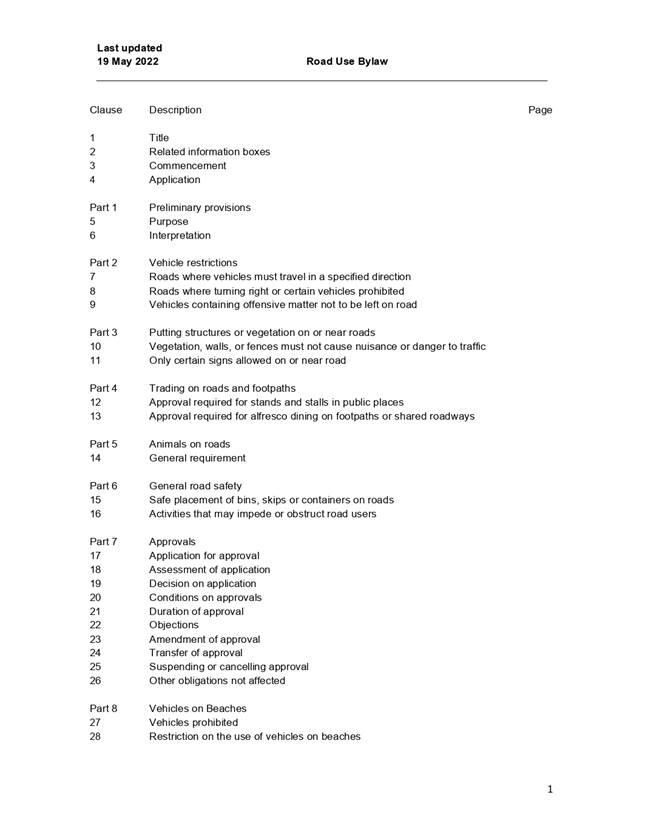









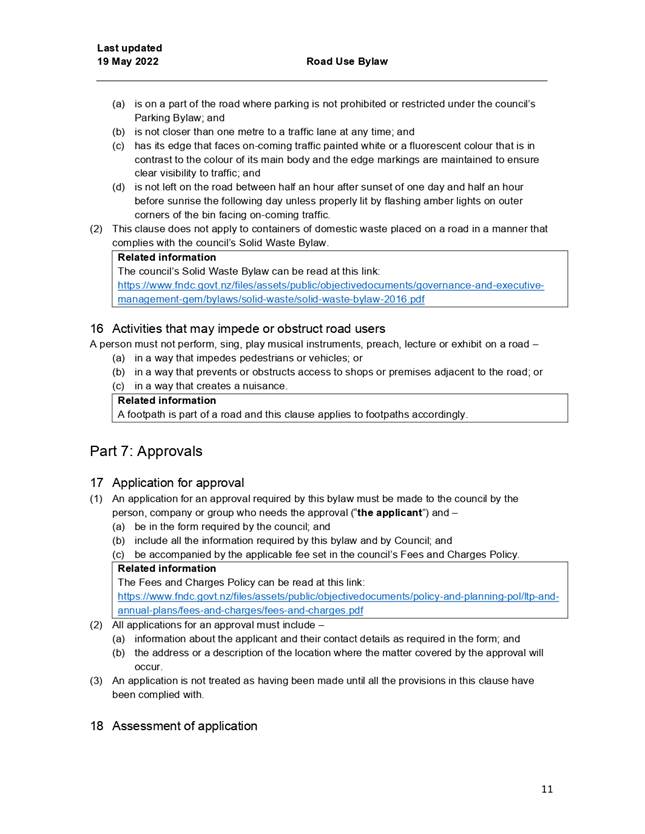

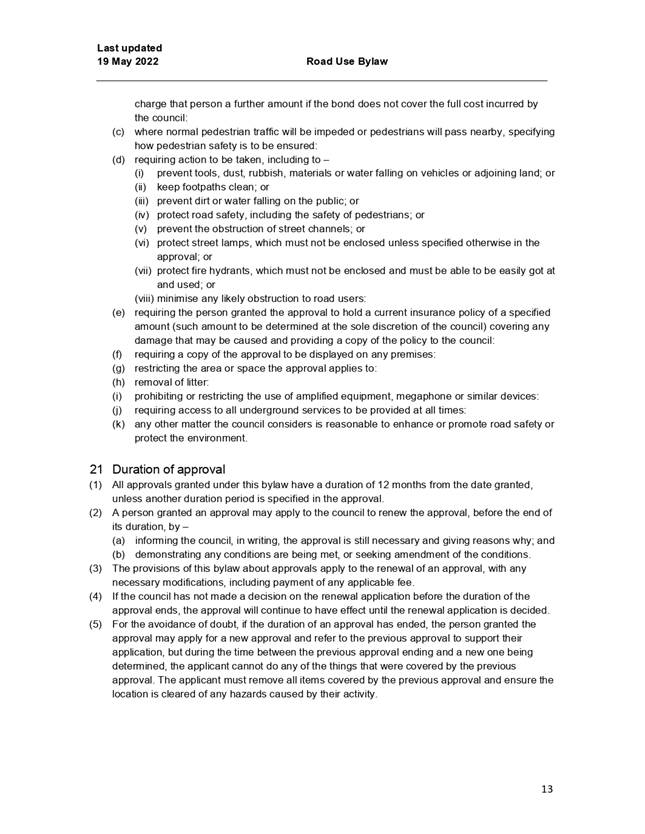

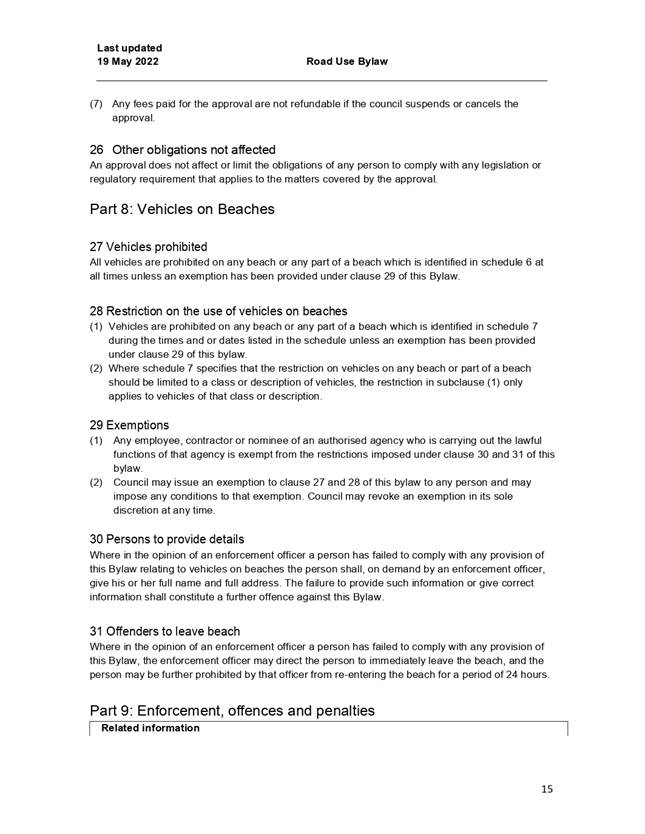

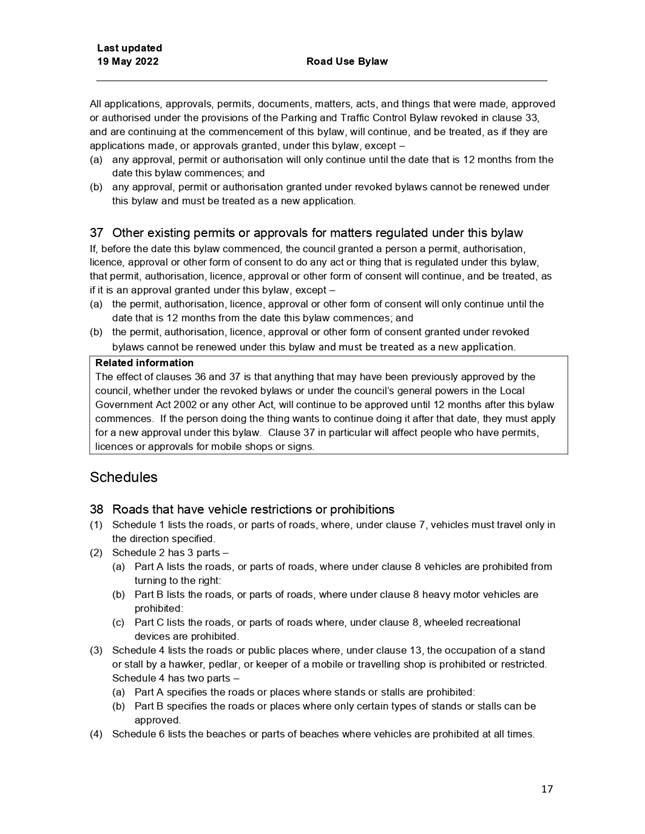

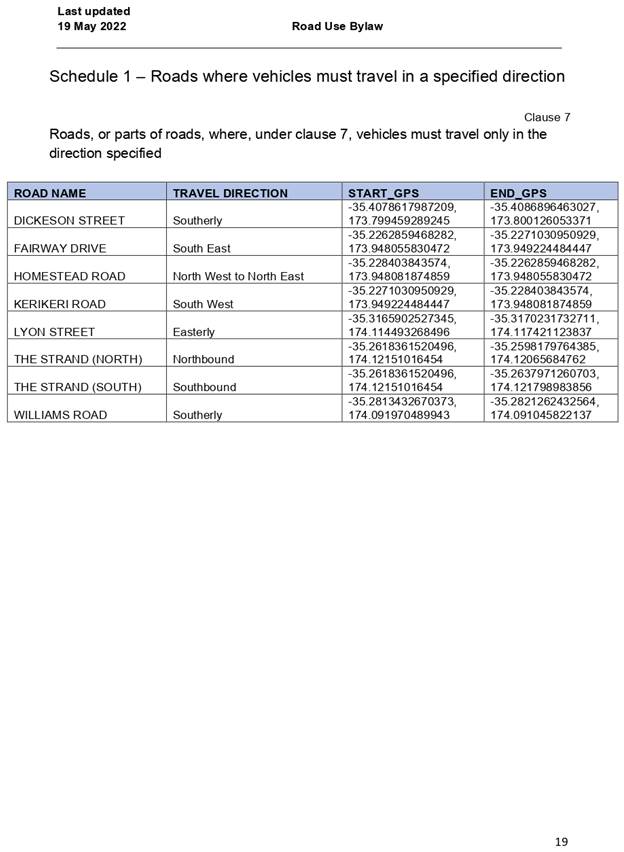

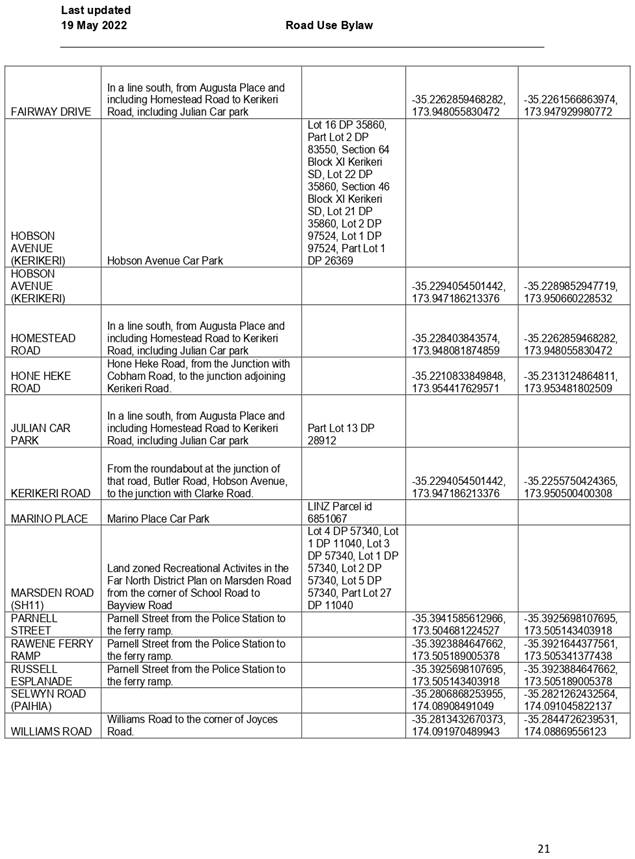
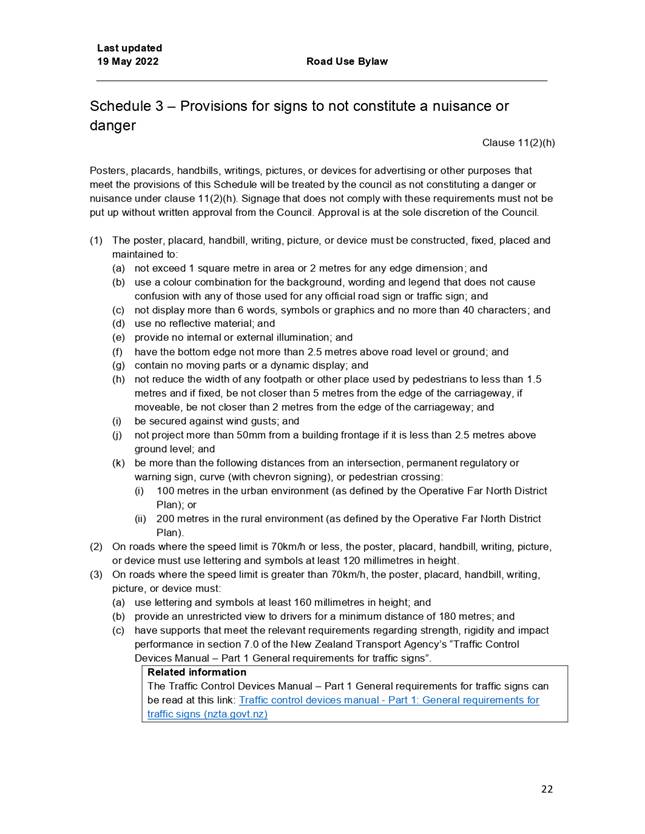
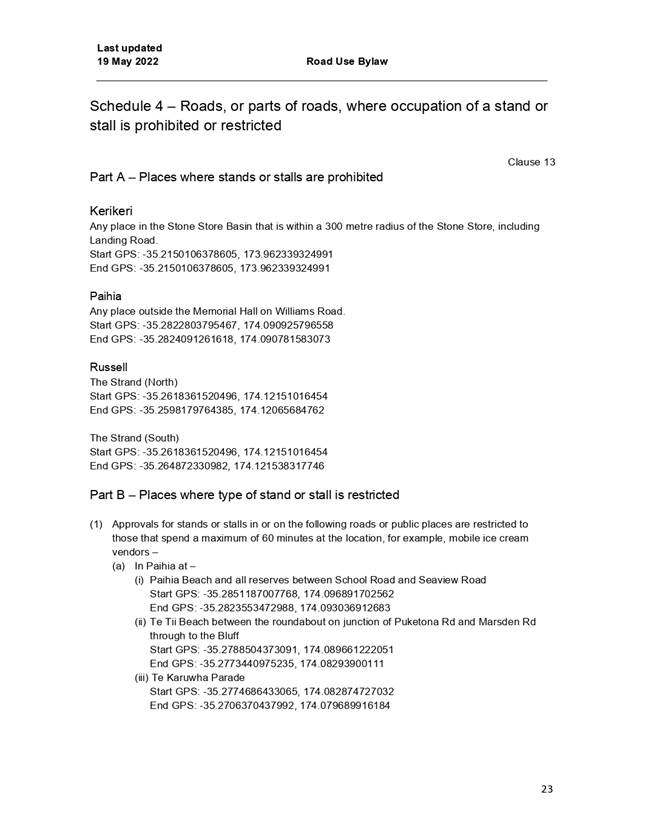

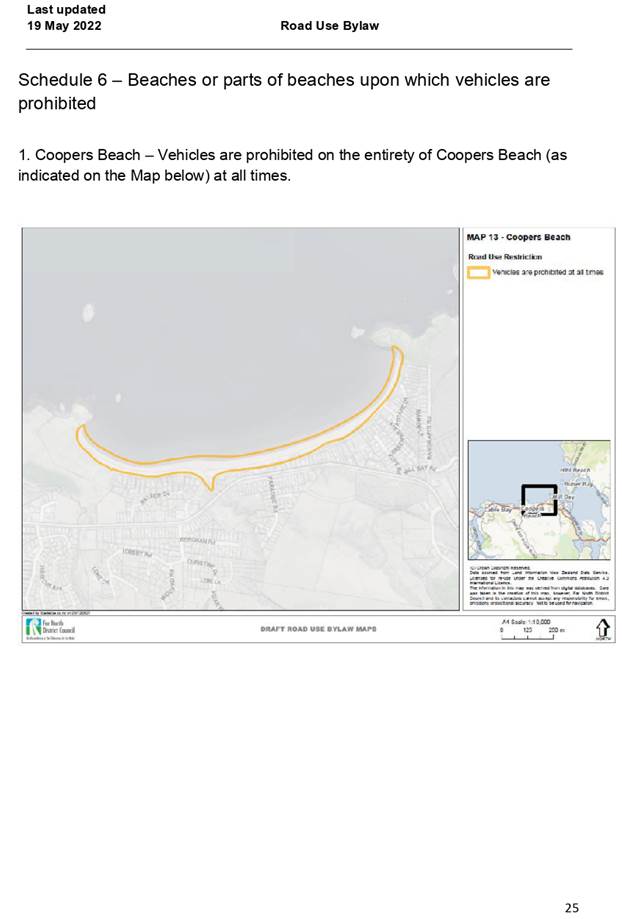

|
Strategy and Policy
Committee Meeting Agenda
|
3 May 2022
|
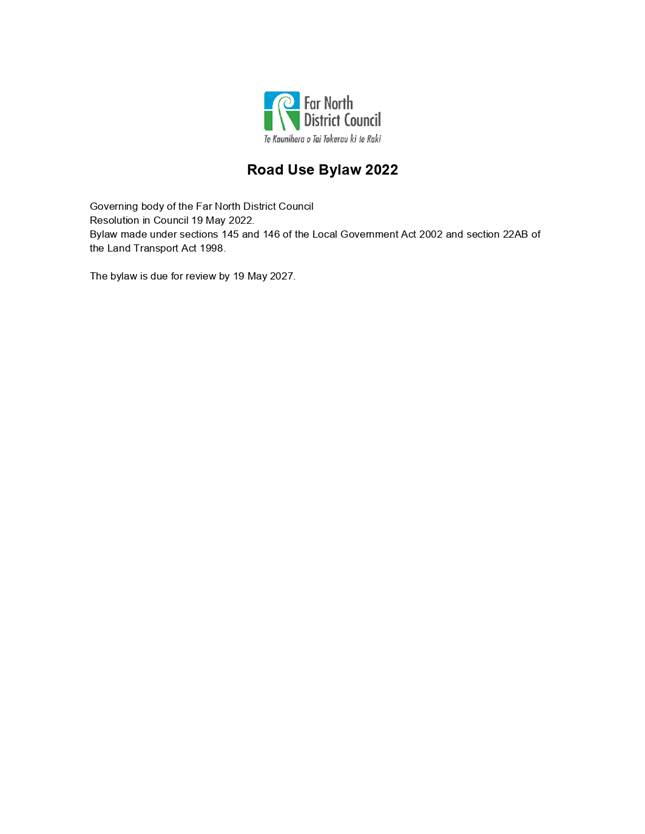

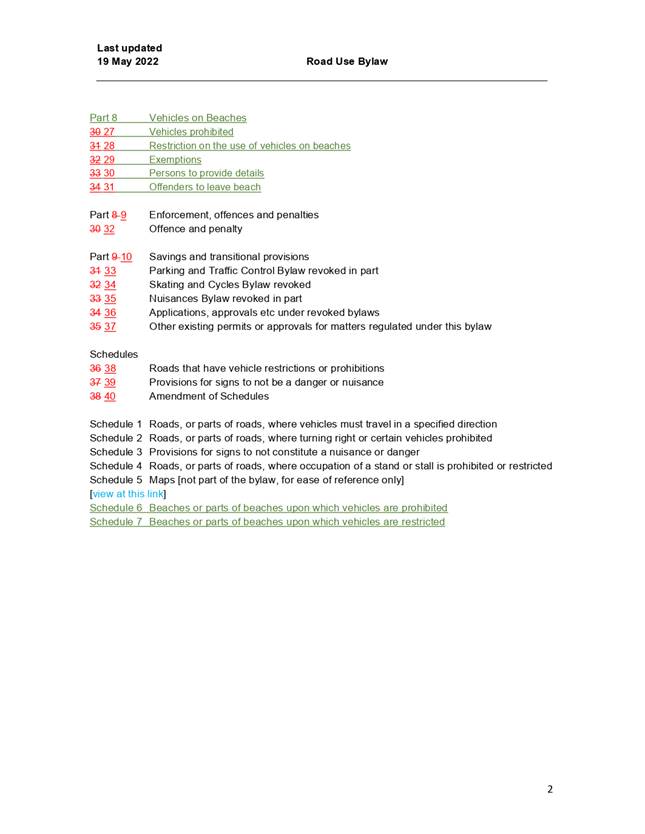

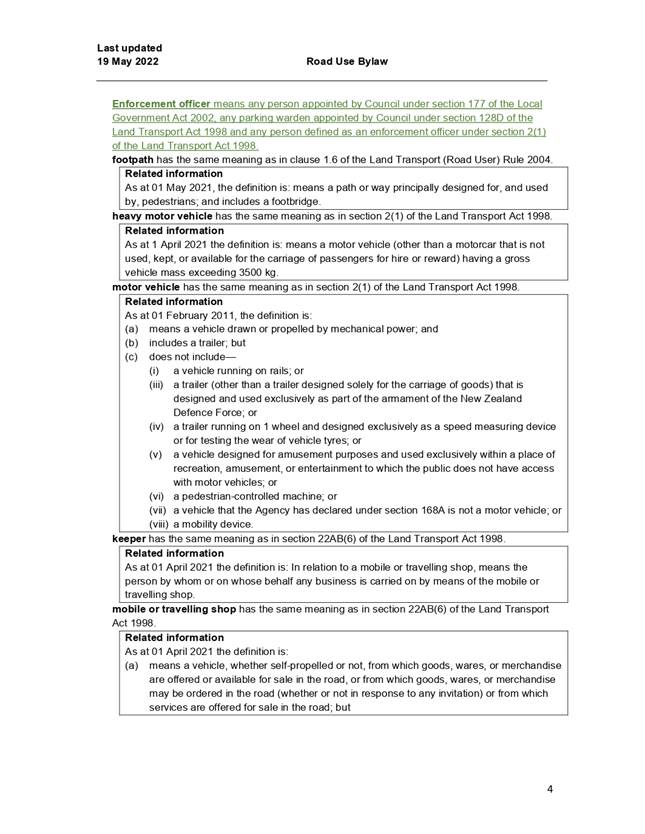
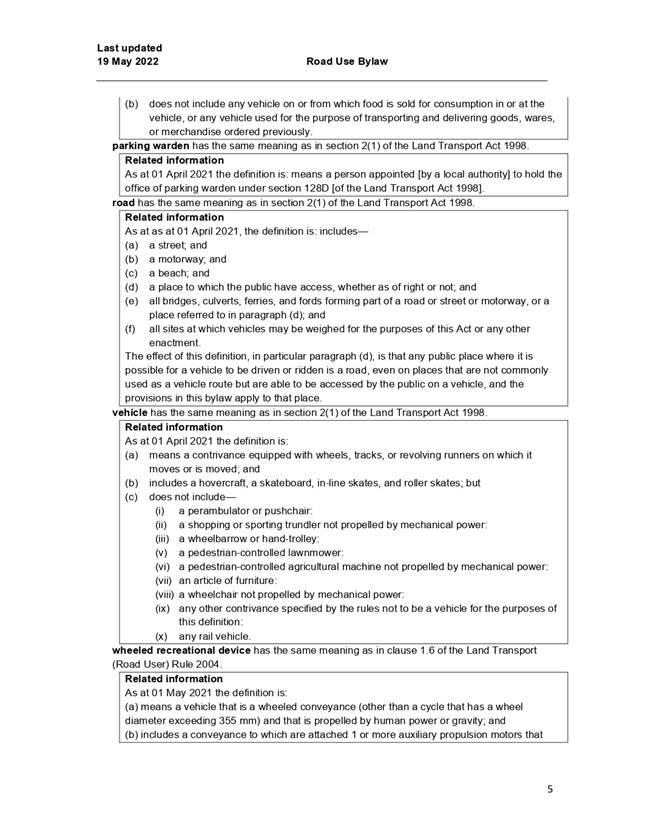
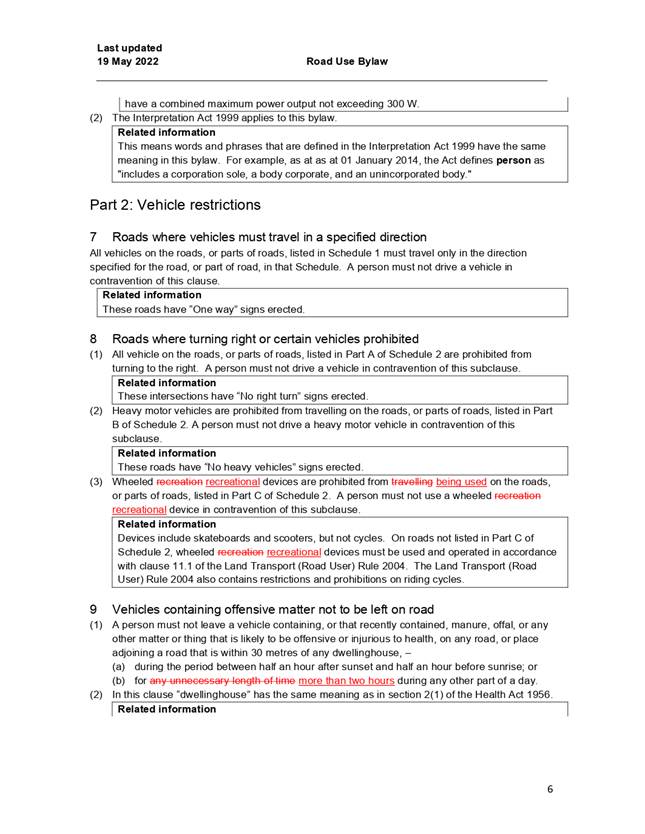

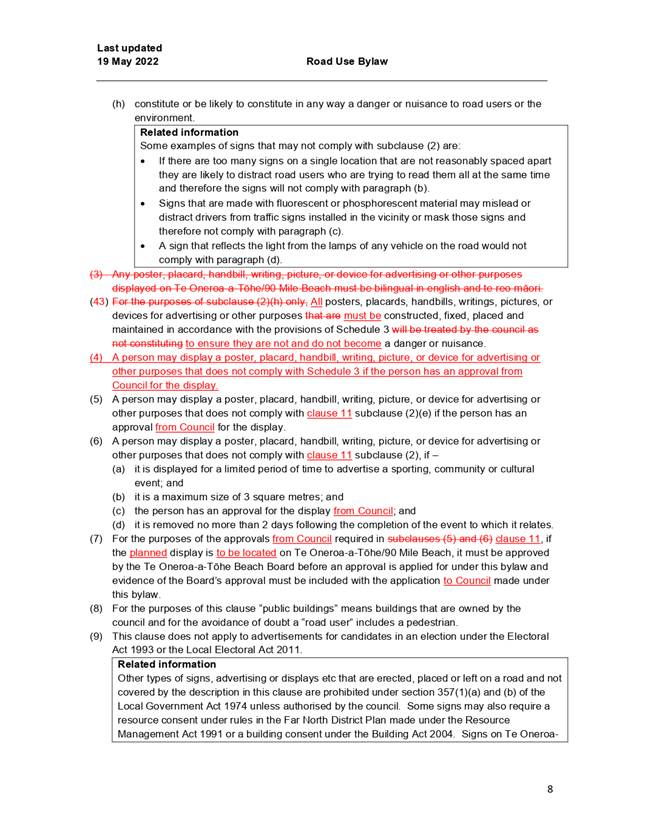
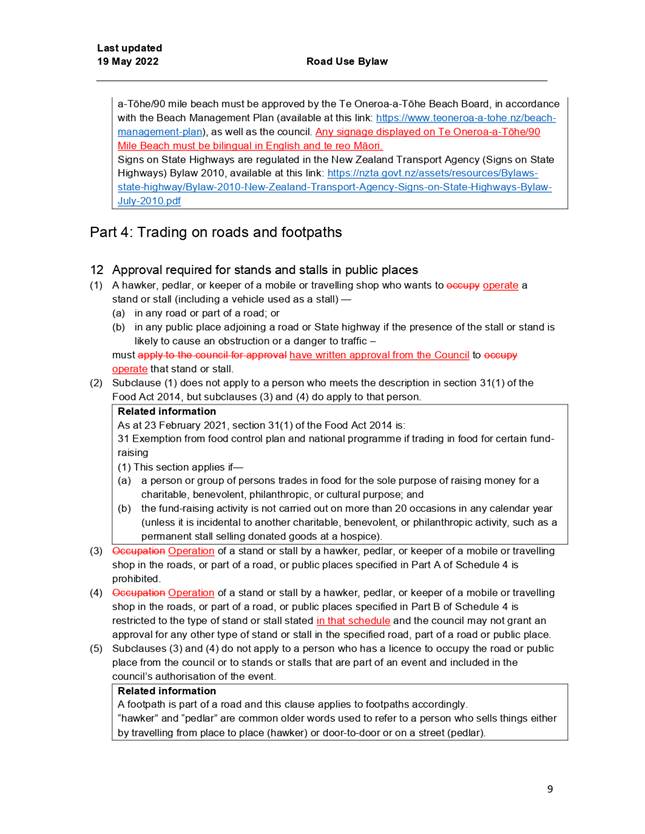
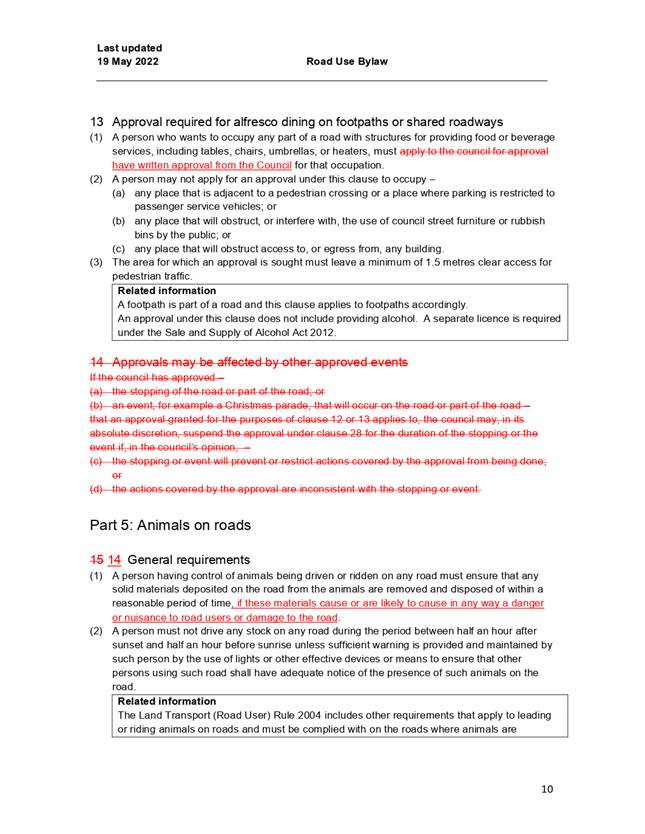

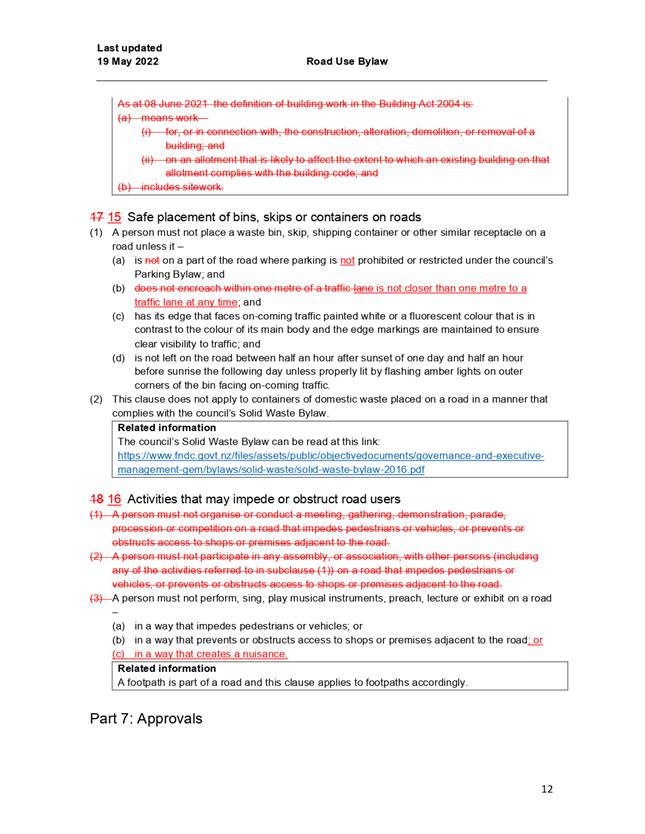
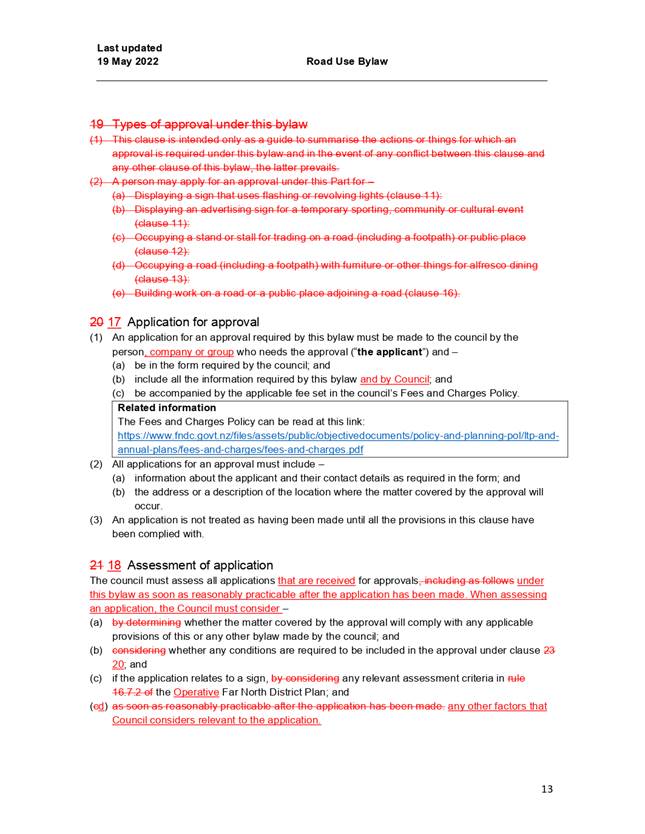
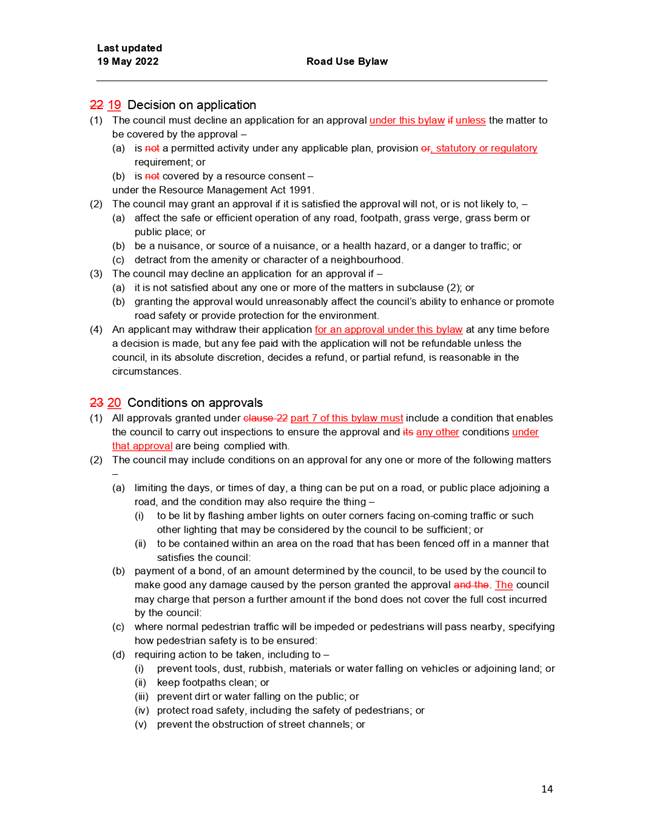
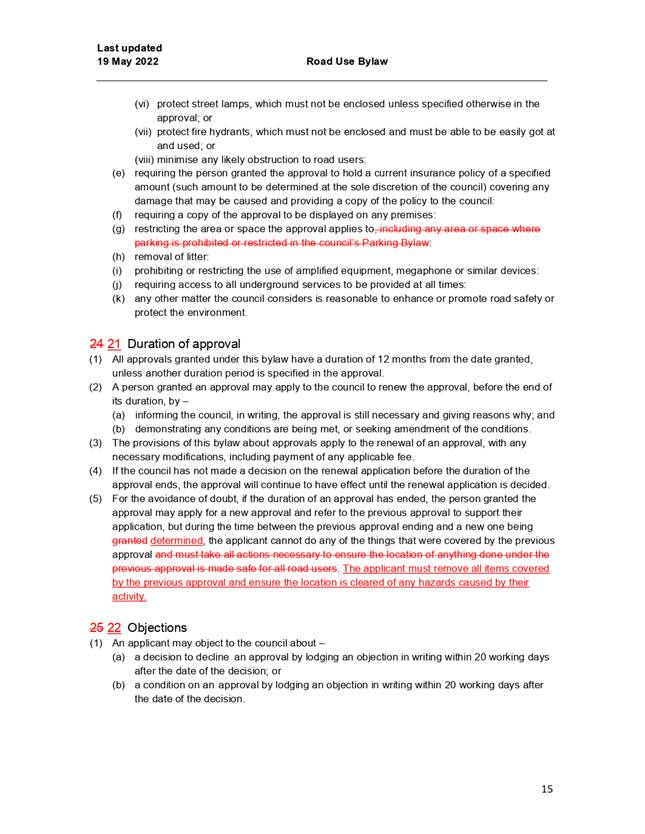
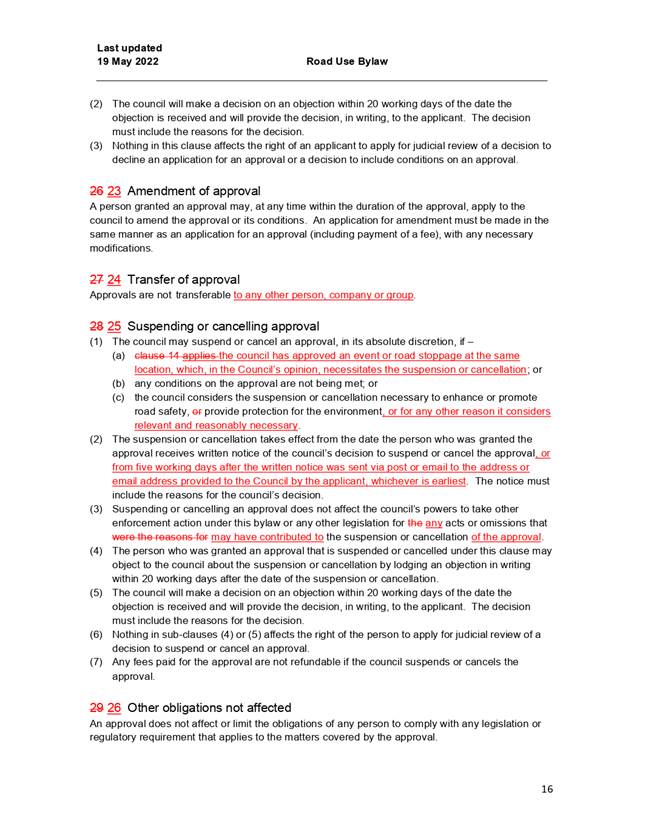
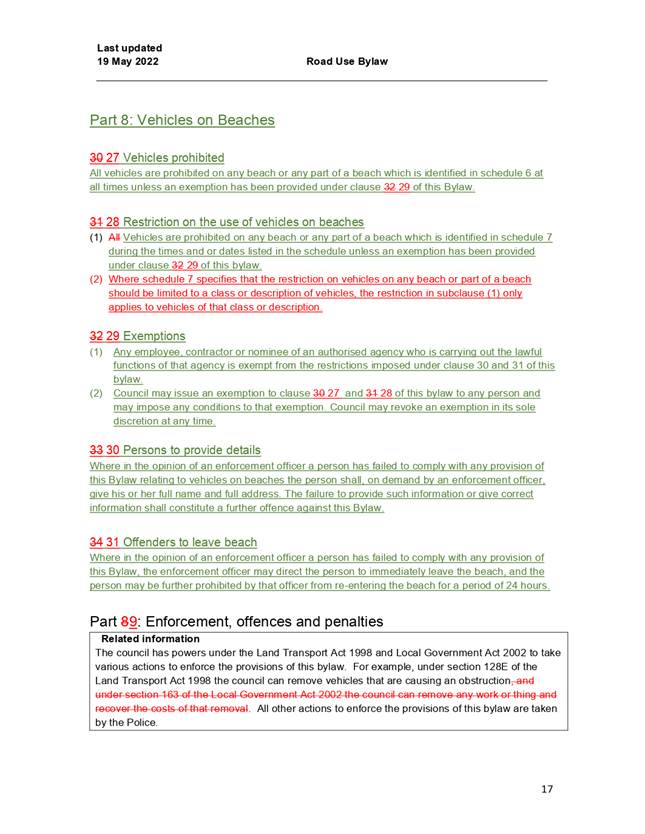
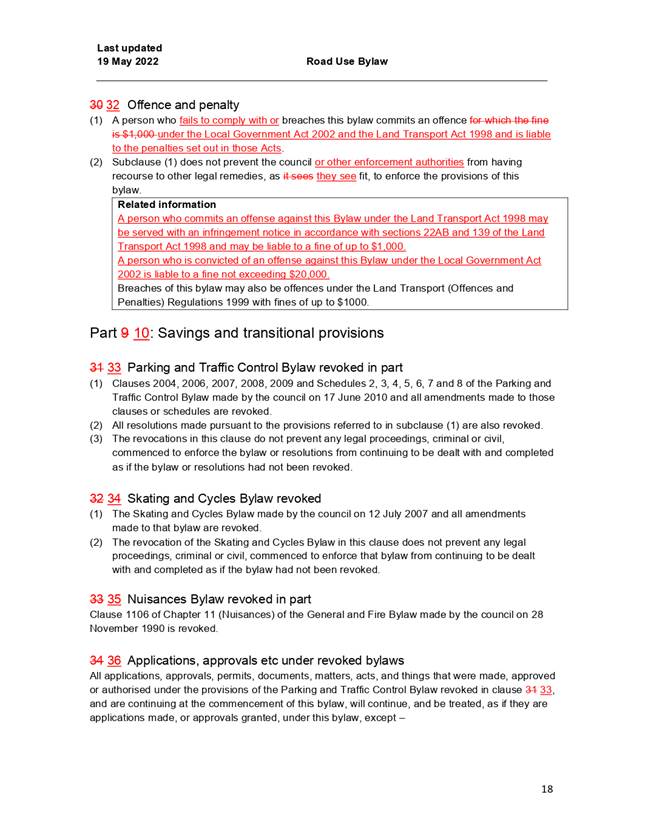
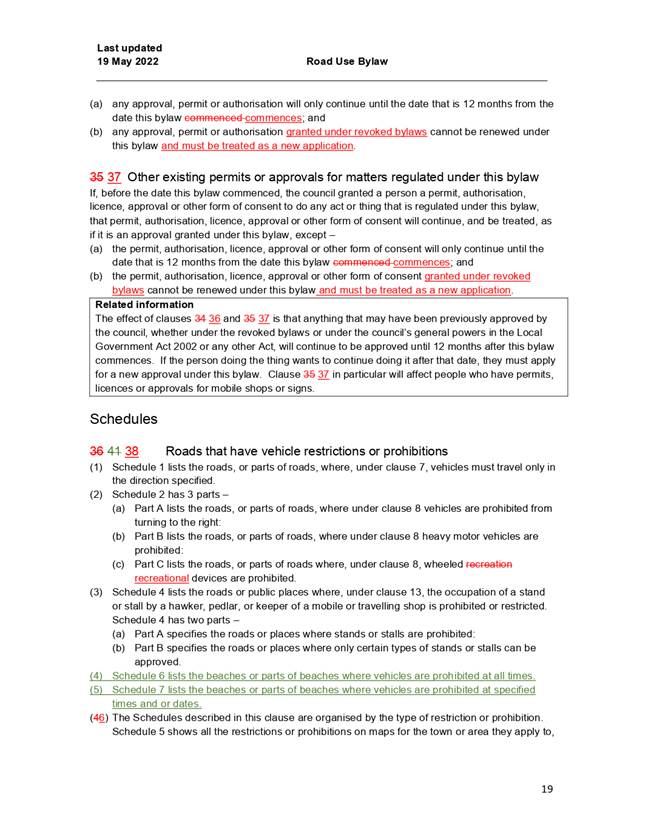
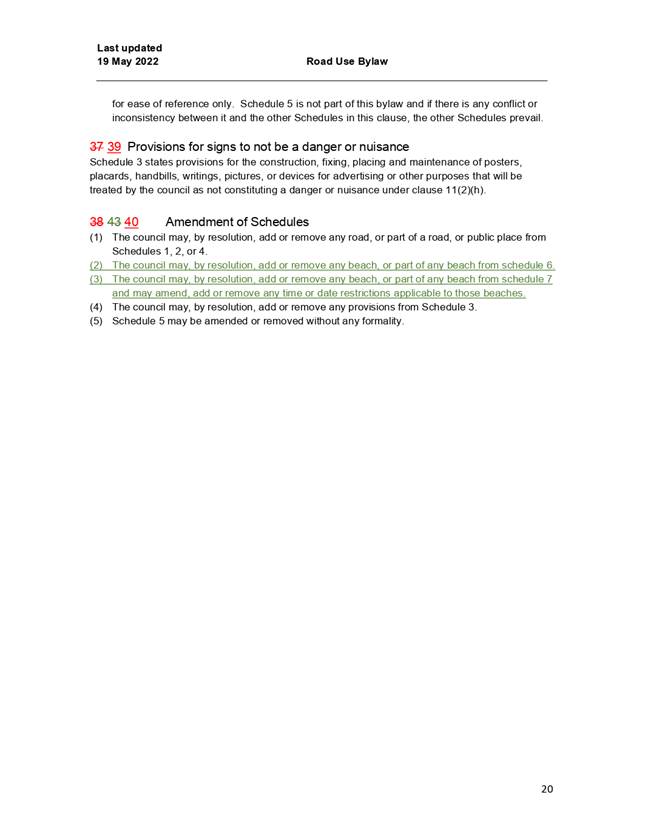
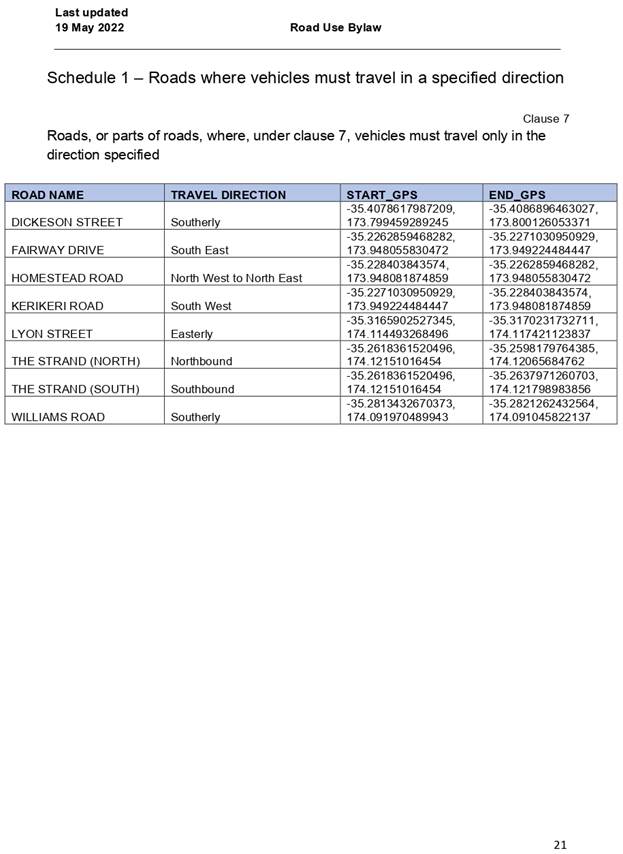
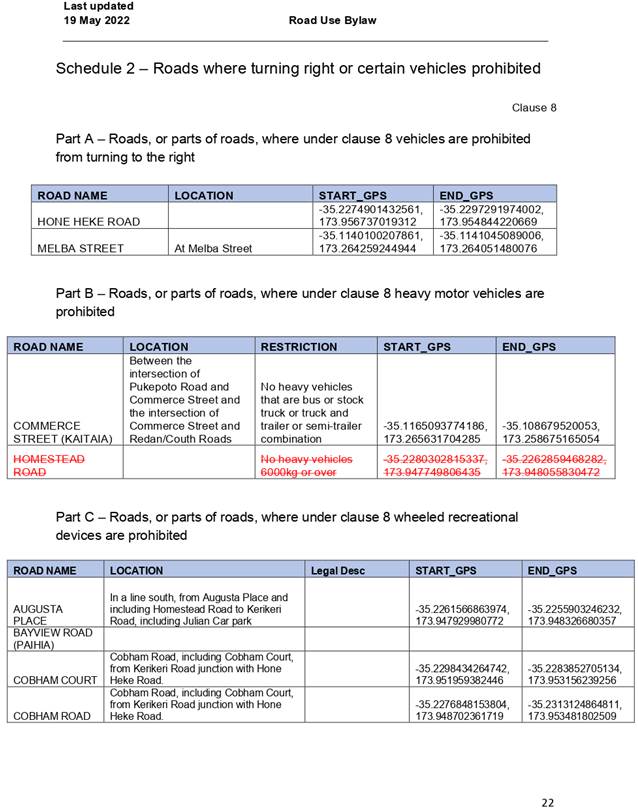
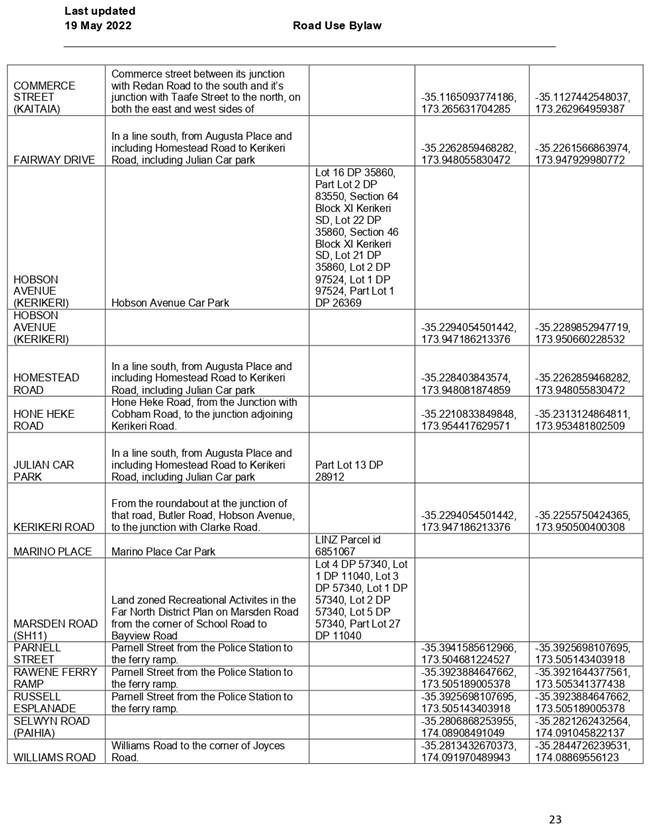
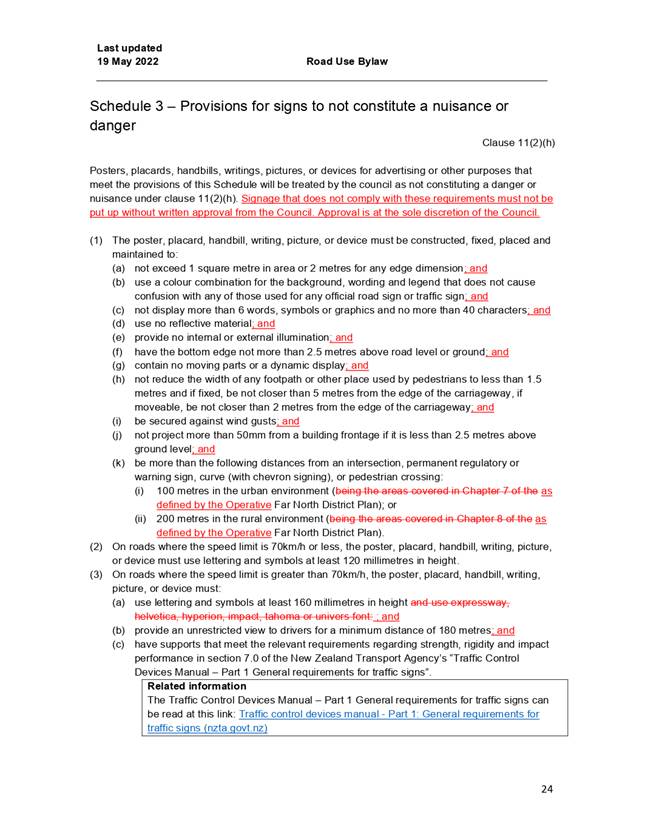
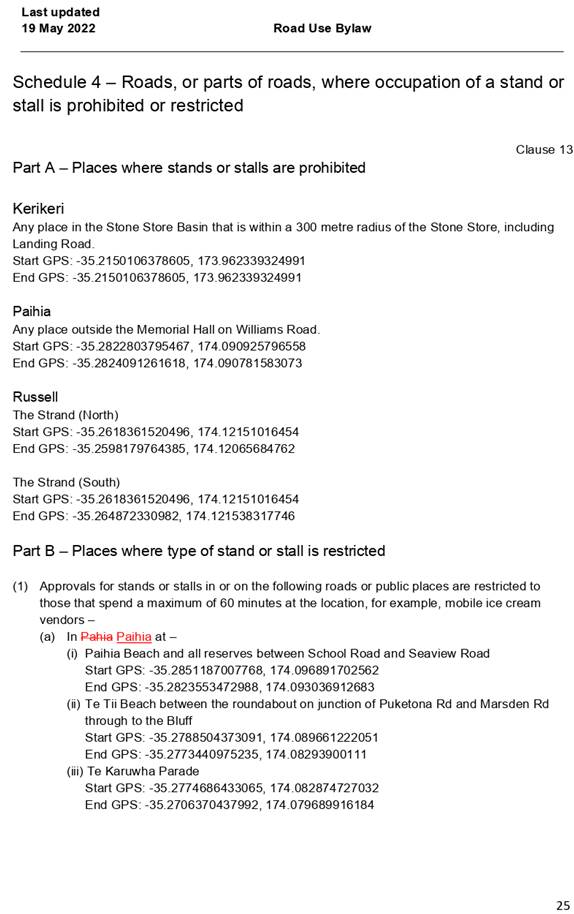
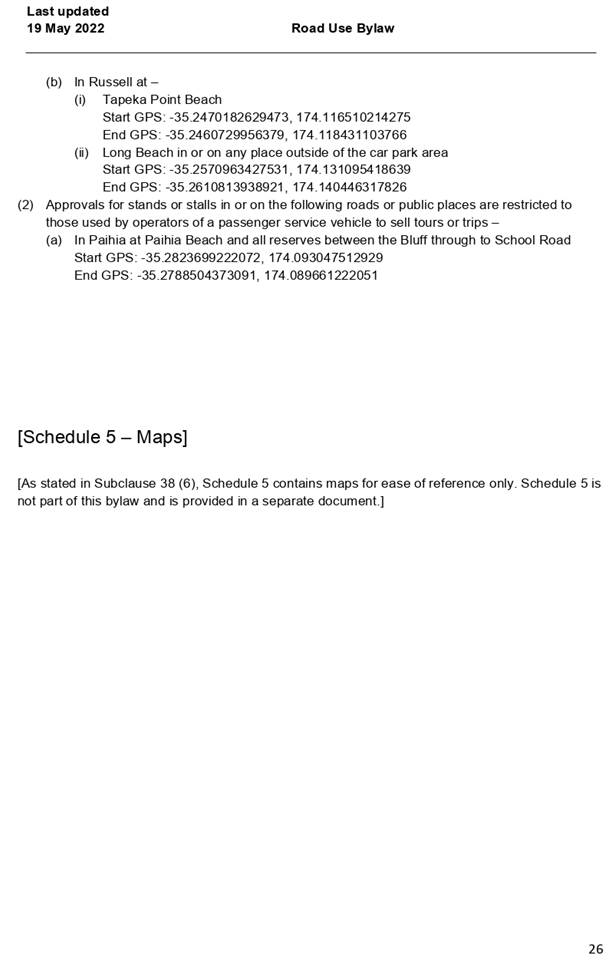
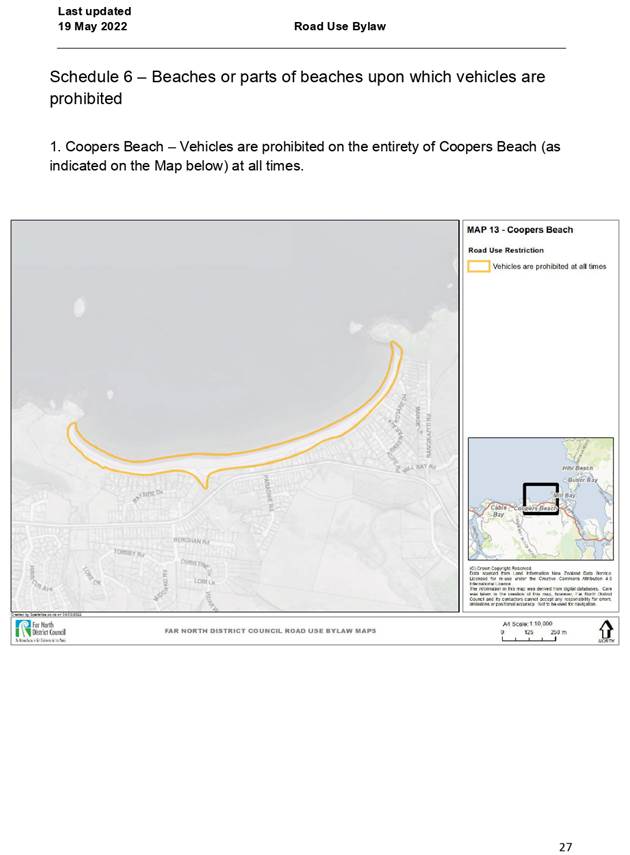
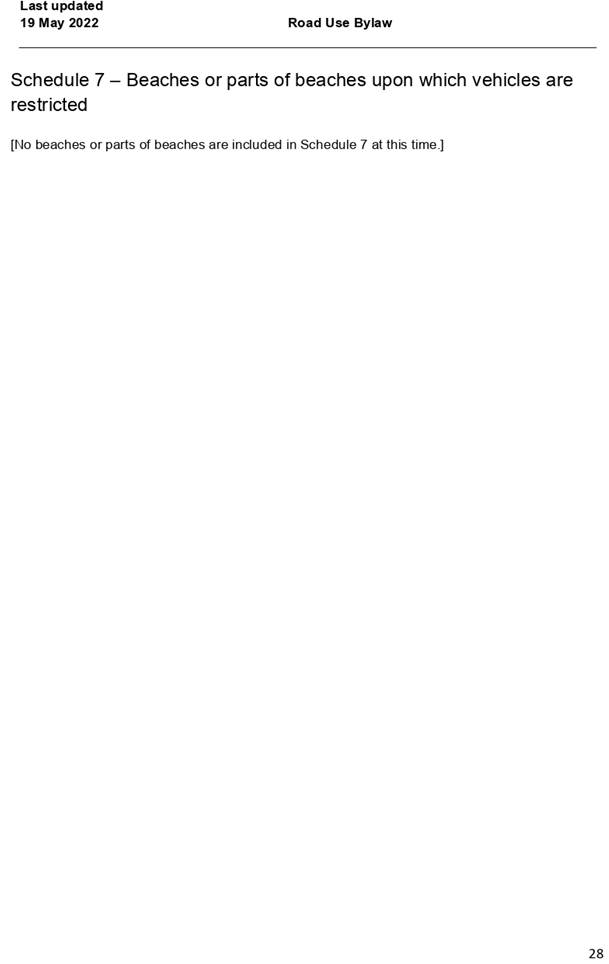
|
Strategy and Policy
Committee Meeting Agenda
|
3 May 2022
|
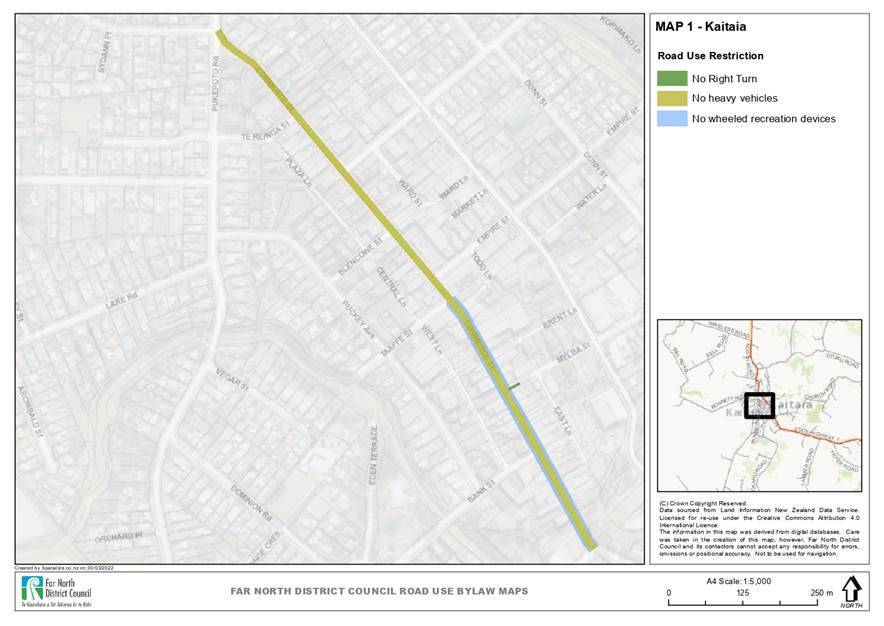
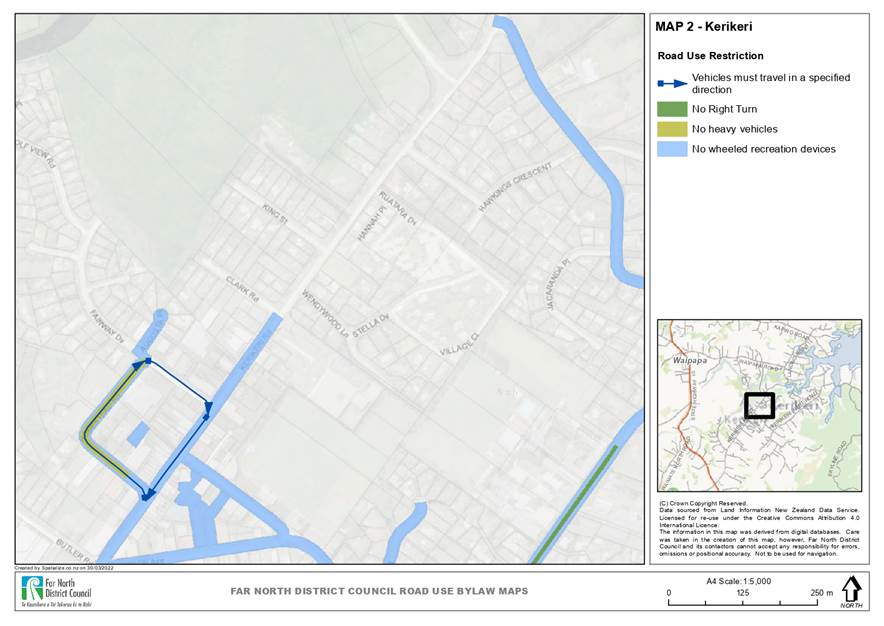
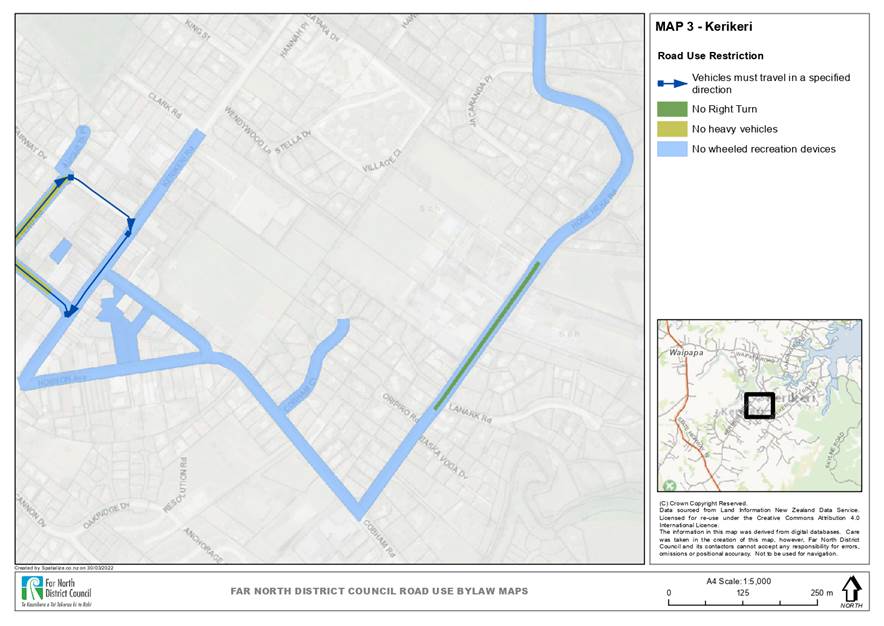
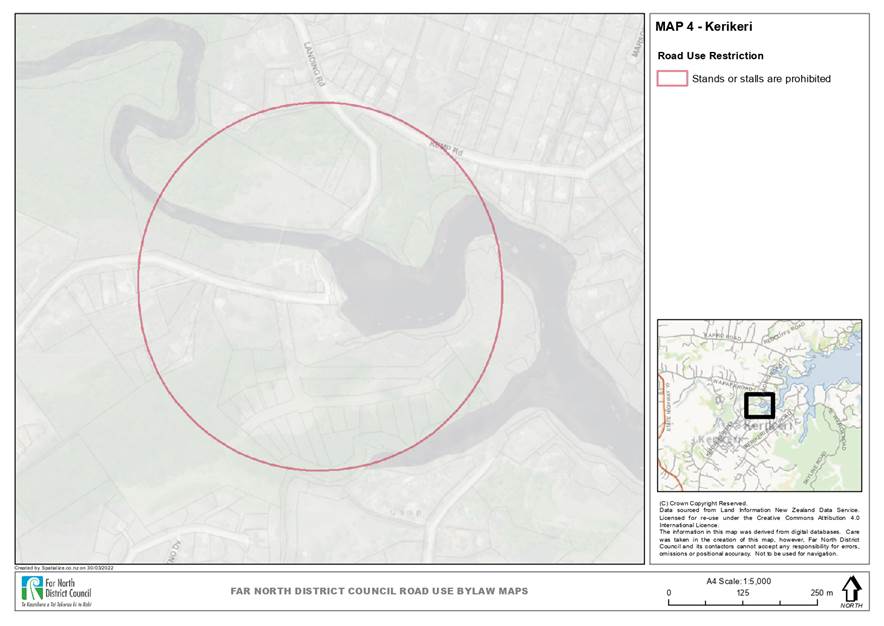
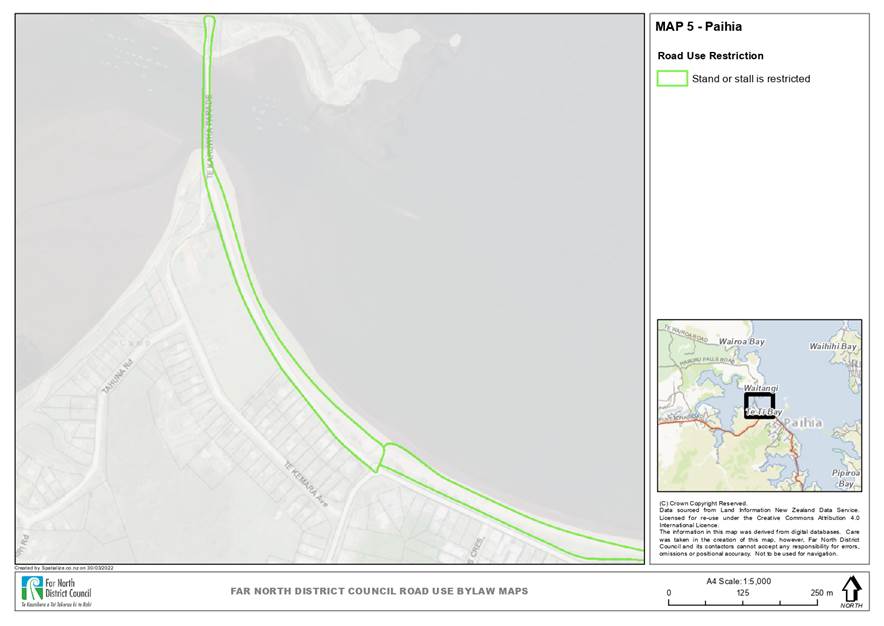
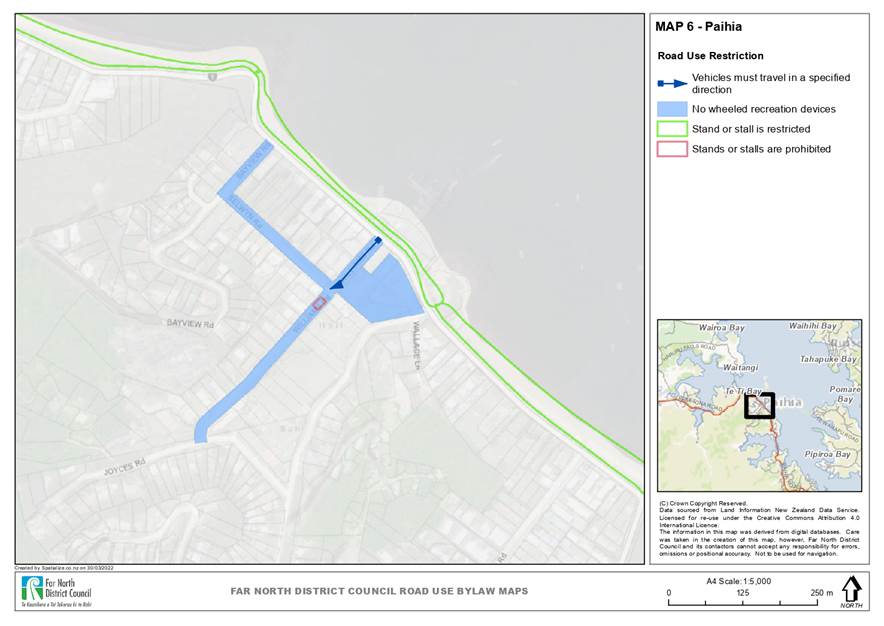
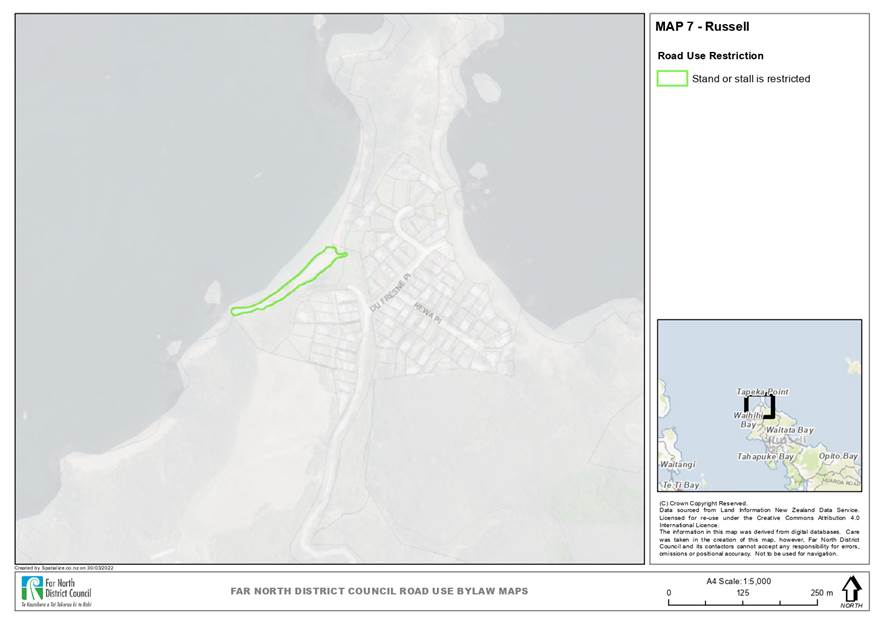
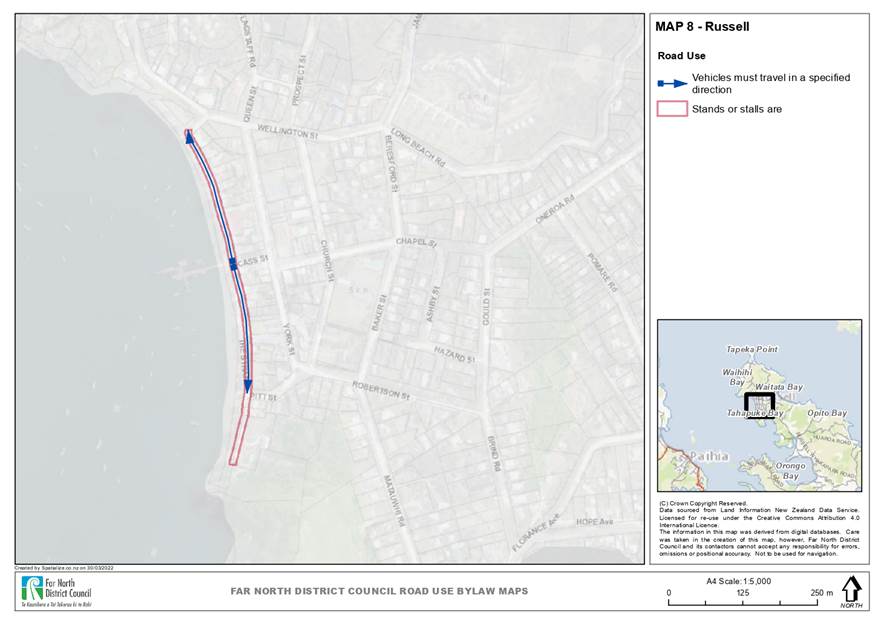
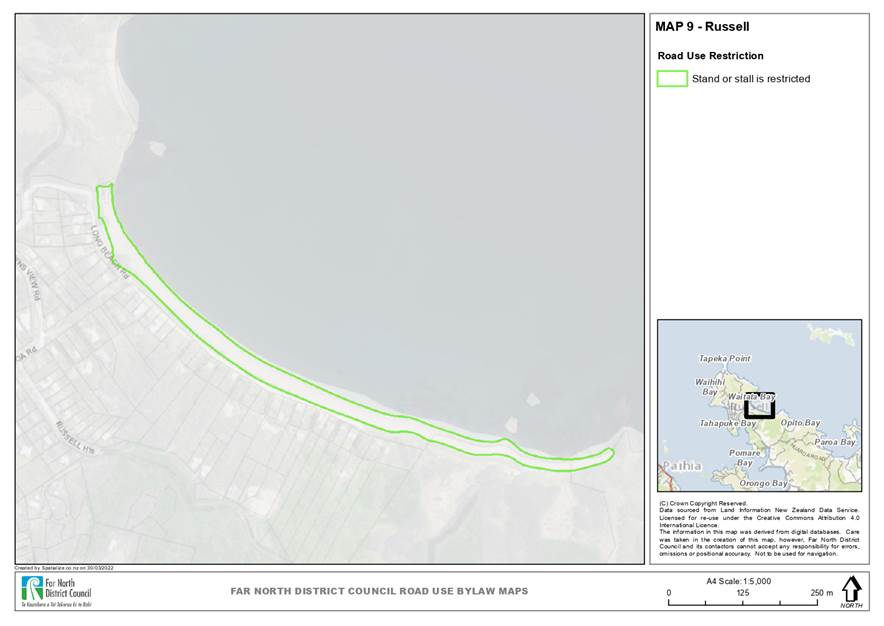
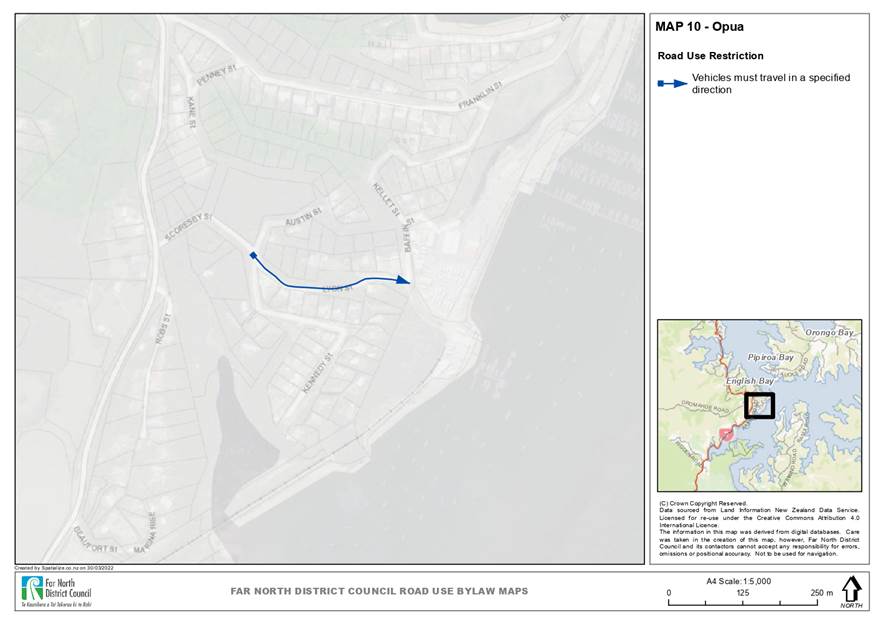
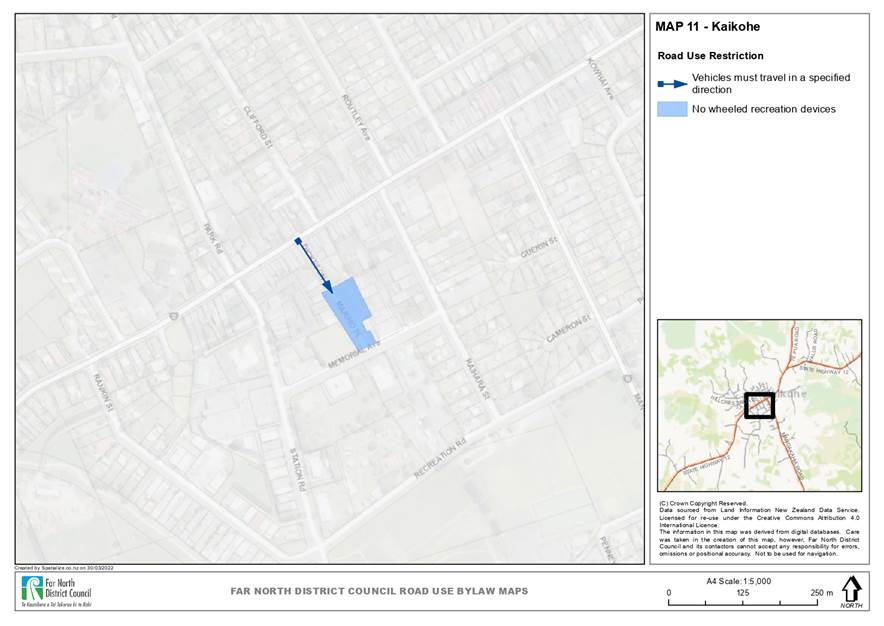
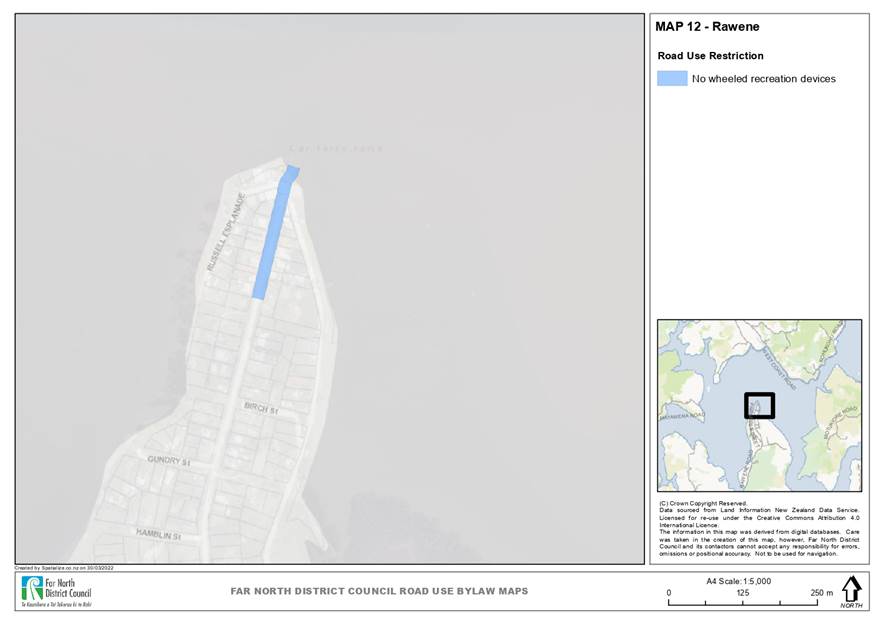
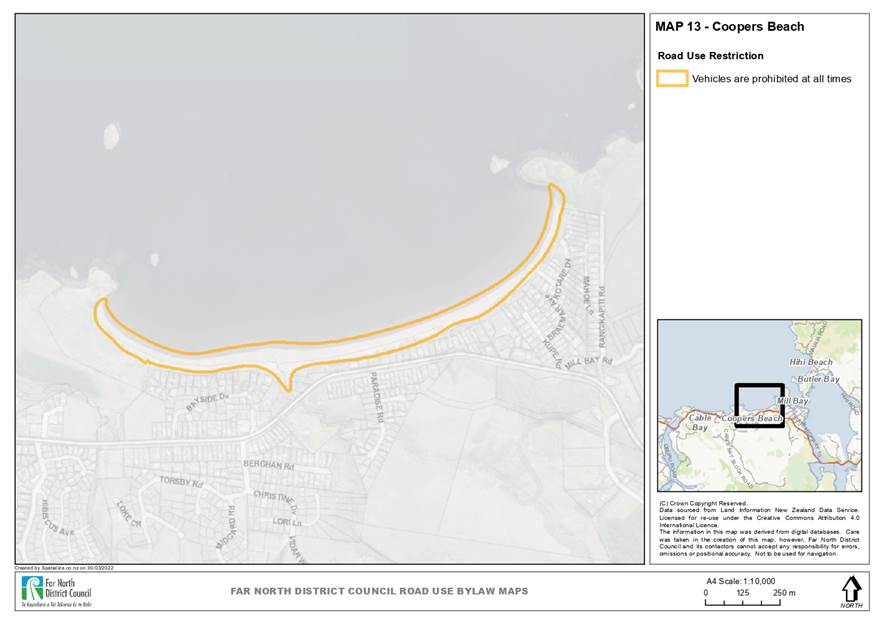
6 Information
Reports
6.1 Resident
Opinion Survey - 2021-22
File
Number: A3619362
Author: Ken
Lewis, Manager - Communications (Acting)
Authoriser: Darren
Edwards, General Manager - Strategic Planning and Policy
TAKE PŪRONGO / Purpose of the Report
To update the Strategy and Policy Committee on progress of
the Resident Opinion Survey.
WHAKARĀPOPOTO MATUA / Executive SummarY
· The Council has changed its Resident Opinion Survey
from an annual telephone survey to a postal survey run quarterly.
· The first quarterly survey (‘wave’) was
conducted between 3 November to 7 December 2021 and the second wave was run
between 19 January and 22 February 2022.
· Second
wave results were released on 2 March.
· Results
of the first and second wave surveys are attached along with a separate
spreadsheet containing verbatim responses to questions.
· Wave 3
data collection will occur between 16 March and 19 April. Wave 3 results will
be available from 27 April.
|
TŪTOHUNGA
/ Recommendation
That the Strategy and Policy Committee receive the
report Resident Opinion Survey - 2021-22.
|
tĀHUHU KŌRERO / Background
The council has conducted an annual Resident Opinion Survey
for the last 15 years to measure public perceptions of council facilities,
infrastructure and services. The council has contracted Key Research to conduct
annual surveys since 2018.
For 2021/22, the annual survey was changed to quarterly. One
reason for this change was to acknowledge that public perceptions may be
influenced by external factors, such as winter weather, or topical issues
(examples may include changes to the Dog Control Bylaw, or proposals for
Significant Natural Areas). A quarterly survey will provide the council four
‘snap shots’ each year, giving a more rounded picture of
performance. It would also allow staff and elected members to identify seasonal
fluctuations in satisfaction levels.
The change to quarterly surveys has also altered the survey
method. Instead of a telephone survey, the 2021/22 survey is being conducted by
post. The new survey consists of two steps:
1. An
invitation letter containing an embedded link to an online survey is sent to a
random selection of residents sourced from the Electoral Roll. A hard copy
survey with Freepost envelope is also provided for those who prefer paper-based
surveys.
2. A
reminder postcard is sent 10 days to two weeks later.
This method provides respondents a full month to consider
their responses and has resulted in higher response rates than telephone
surveys. Key Research aims to send 1000 invitations per wave (quarter) to
achieve valid survey results.
MATAPAKI ME NGĀ KŌWHIRINGA / Discussion
and Next Steps
Navigating the survey dashboard
To access the survey dashboard, open the spreadsheet, Enable
Editing and then Enable Content. Click on the Key Findings
menu tab.
The Menu links to survey findings related to specific
service areas – Three waters, Roads and footpaths, and so on. There is a
drop-down menu that provides Wave and Year to Date options.
Selecting YTD provides annual comparisons of surveys from 2018 to 2022
(YTD). A second dropdown menu selects individual Wards.
Survey respondents are asked to apply a satisfaction rating
scale:
1-2: Very dissatisfied/Very poor
3-4: Dissatisfied/Poor
5-6: Neutral
7-8: Satisfied/Good
9-10: Very satisfied/Very good.
Some survey question results are flagged as having seen
significant changes of %7-10 in either satisfaction or dissatisfaction scores
between 2021 and 2022 (YTD). You can change the Satisfaction rating levels that
are displayed by going to the Home page (click Home top left). Change
the Satisfaction rating scale using the up /down arrows and return to Key
findings.
The total sample for wave 2 is n=186 residents where 77
residents completed the survey online and 109 residents took part using the
paper questionnaire. The target sample per wave is n=125 residents. By ward, 43
respondents are from the Te Hiku Ward, 98 respondents are from the Bay of
Islands-Whangaroa Ward and 45 respondents are from the Kaikohe-Hokianga Ward.
Key findings – Wave 2
Overall satisfaction with Council’s performance has
decreased from 39% in wave 1 to 25% in wave 2.
Satisfaction with Water management, Recycling disposal
services, and Public facilities improved compared with the previous wave. There
was a decline in satisfaction for Overall reputation, Overall value for money,
Roads and footpaths, and Parks, reserves and open spaces. The year-to-date
satisfaction ratings for most of these overall measures, however, are higher
than the 2021 results.
For roads and footpaths, Wave 2 results for measures
relating to footpaths are significantly lower than the Wave 1 scores. Some
verbatim comments point to unavailability of footpaths where residents live and
poor quality/maintenance.
On water management, there was a considerable improvement in
perceptions of water supply, continuity of supply, the taste of the water and
the clarity of the water. Satisfaction with water odour and pressure declined,
as did satisfaction with the sewerage system and stormwater management.
Wave 3 timeline: Data will be collected between 16 March and
19 April. The dashboard for Wave 3 will be available on 27 April 2022. This
will be sent out to committee members separately as a supplementary report.
Analysis
While some indicators in Wave 2 results have improved,
satisfaction in key areas have declined between waves. This may be due to
relatively small sample sizes. The target sample per wave is n=125 residents.
The total sample for Wave 2 was n=186 residents.
If we use a total sample of 160 residents, the margin of
error would be plus or minus 7%, providing a range of 14 points. For this
sample size, a change of 14 points would fall within the margin of error.
While the total sample for Wave 2 was slightly greater at
186 residents, overall satisfaction with council’s performance dropped 14
points from 39% to 25%. This change seems dramatic but is less concerning when
the margin of error is taken into account.
To smooth out extreme fluctuations inherent within small
sample sizes, international best practice is to ‘roll’ the results
to create a rolling measure. In this case, the rolling measure would be applied
after Wave 4 surveys are completed and then to subsequent results. A more
accurate picture of resident opinion will be known only after Wave 4 results
are published.
Feedback gathered from customers following their
interactions with the council do not support the dramatic shift in opinion
indicated by Wave 2 results. For example, customer satisfaction between 1
October 2021 and 31 March 2022 went up compared to the previous two quarters.
The average Overall Customer Satisfaction CSAT (measures
satisfaction with that particular experience) for the 1 October 2021- 31 March
2022 period was 3.95 out of 5. That equates to 79.2 out of 100 and was a 3.4%
increase from Q4 to Q1. The response sample was provided by 2104 customers who
had a direct interaction with FNDC.
The Net Promotor Score NPS (measure advocacy and reputation)
also tells a different reputational story. The average NPS for the period 1
October 2021- 31 March 2022 was 25.5 (on a 200-point scale of -100 to +100).
This 25.5 score represents a 24% increase from Q4 to Q1.
NB: An NPS score above 0 is baseline ‘good’
because it means you have more Promoters than Detractors. An NPS score of 20+
is considered ‘satisfactory’ to ‘favourable’.
The NPS score was based on a sample size of 1266 customer
responses.
PĀNGA PŪTEA ME NGĀ WĀHANGA
TAHUA / Financial Implications and Budgetary Provision
Total existing survey
budget of $27,000 will be invoiced in four instalments of $6,750.
Āpitihanga
/ Attachments
Nil
6.2 Strategic
Planning & Policy Business Quarterly January - March 2022
File Number: A3667408
Author: Gayle
Andersen, Executive Assistant to General Manager
Authoriser: Darren
Edwards, General Manager - Strategic Planning and Policy
TAKE PŪRONGO / Purpose of the Report
To inform the Strategy
and Policy Committee of the activities undertaken by the Strategic Planning and
Policy Group.
WHAKARĀPOPOTO MATUA / Executive SummarY
The Strategic Planning
and Policy Business quarterly provides an overview of Strategic Planning and
Policy activity for the quarter ending March 2022.
|
TŪTOHUNGA
/ Recommendation
That the Strategy and Policy Committee receive the
report Strategic Planning & Policy Business Quarterly January - March
2022.
|
tĀHUHU KŌRERO / Background
The Strategic Planning and Policy Group consists of four
departments that have responsibility for strategy and policy development
(including regulatory policy in the form of bylaws), district planning,
Māori development, corporate planning, community development and funding
and supporting of Council groups / departments with engagement. The Group
work programme has been refined to deliver identified service outcomes and
projects of strategic importance to Council.
MATAPAKI ME NGĀ KŌWHIRINGA /
Discussion and Next Steps
The Strategic Planning and Policy Business Quarterly report
provides an update on the broad spectrum of projects that the Group is
responsible for. The report, combined with the extensive range of
services that the Group provides, is revised, and updated on a quarterly basis
to reflect changes in projects, scope of work and complexity.
In addition to this update the business group will continue
to appraise Elected Members via the usual channels of Council and Committee
reports and workshops.
The purpose of the Business Quarterly is to show the planned
progress of the work programme and the regular service delivery work undertaken
by the Group.
PĀNGA PŪTEA ME NGĀ WĀHANGA
TAHUA / Financial Implications and Budgetary Provision
There are no financial
implications or budgetary provisions required
Āpitihanga
/ Attachments
1. Strategic
Planning & Policy Business Quarterly January - March 2022 - A3667338 ⇩ 
|
Strategy and
Policy Committee Meeting Agenda
|
3 May 2022
|
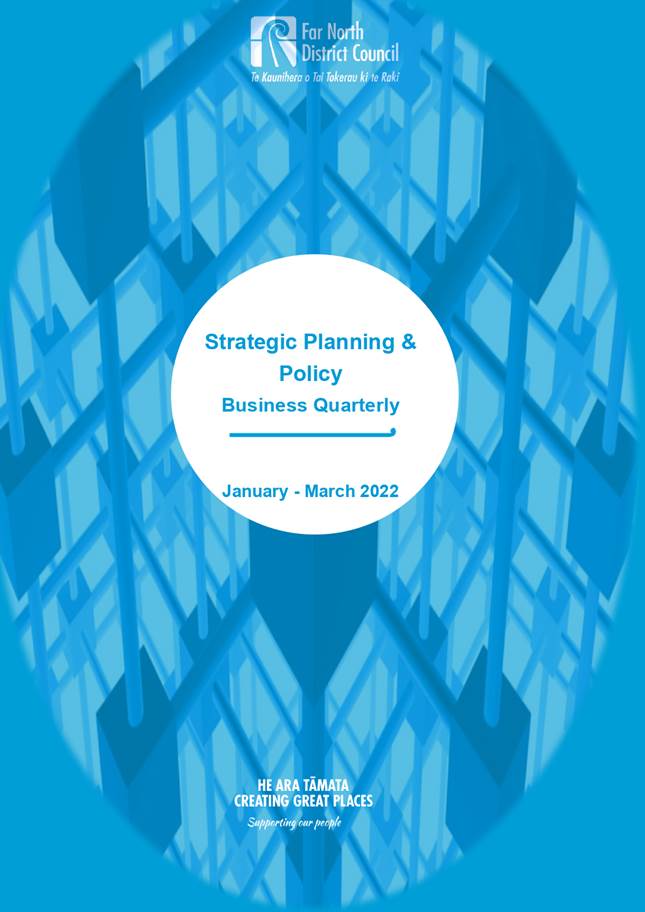
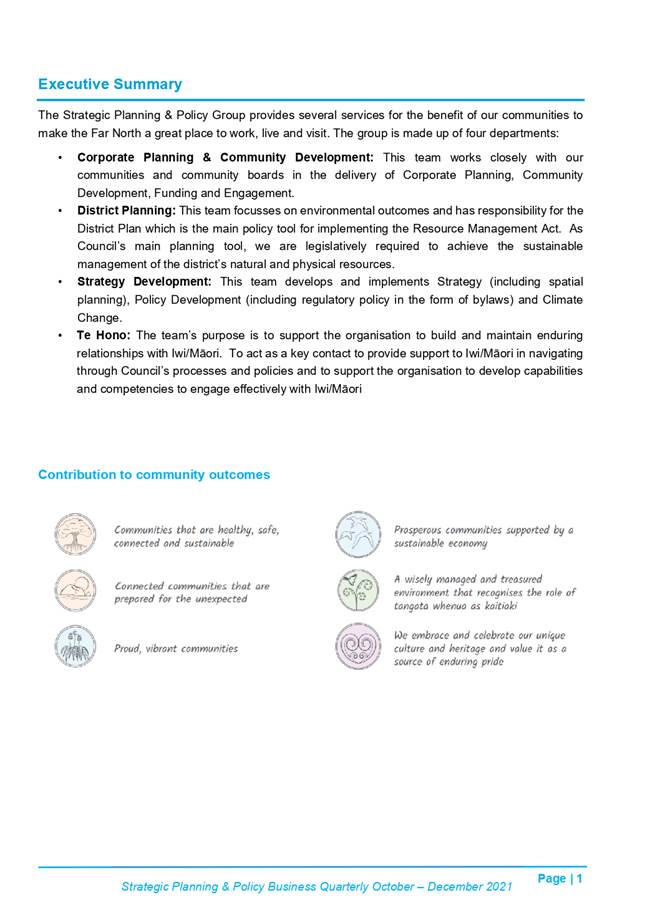
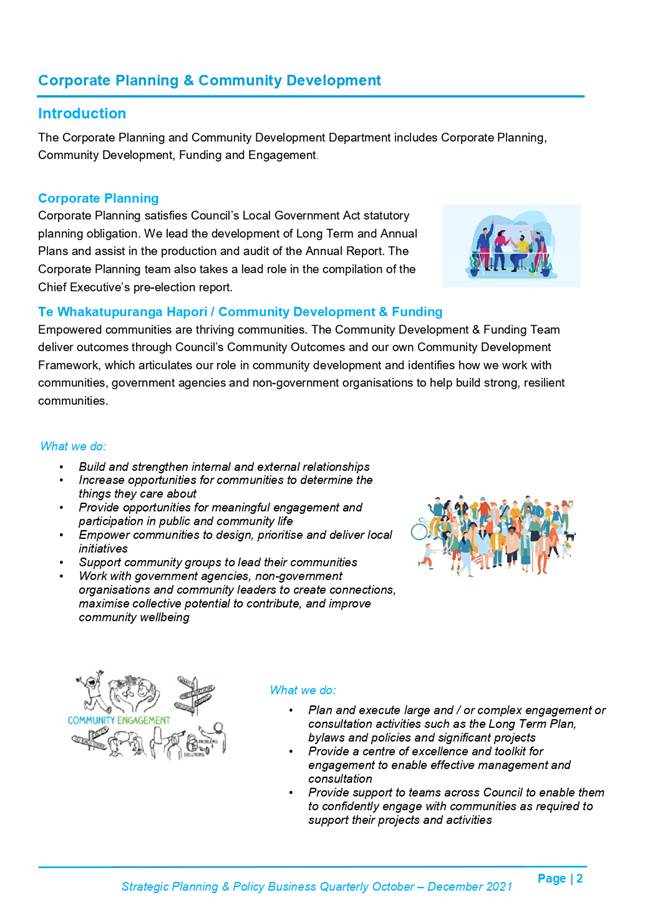
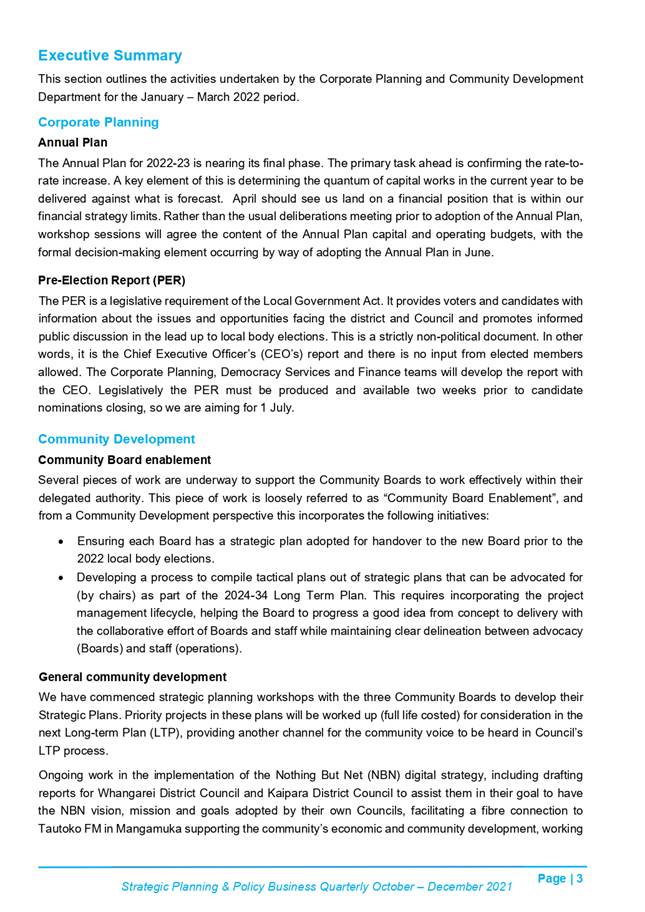
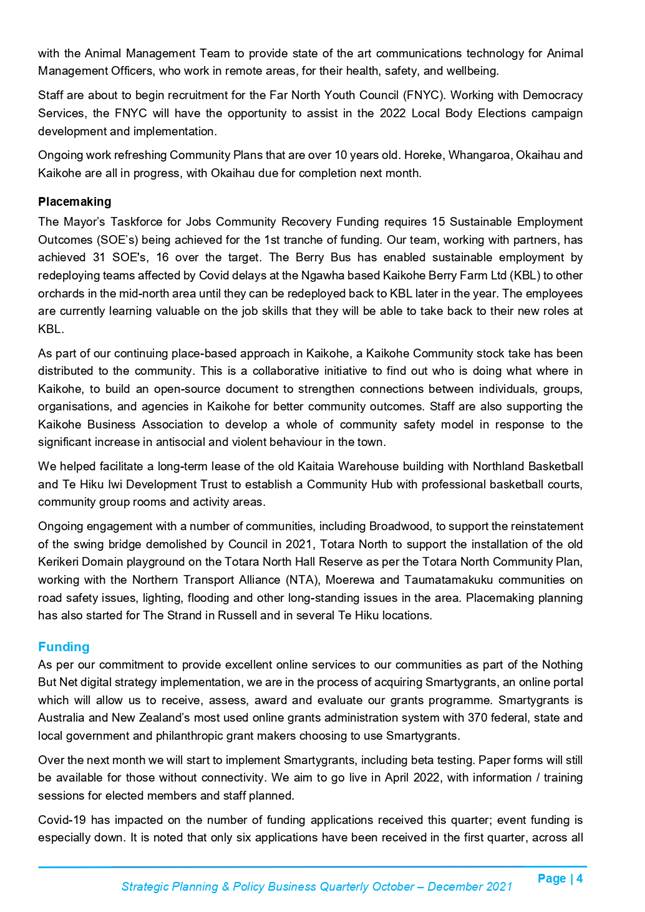
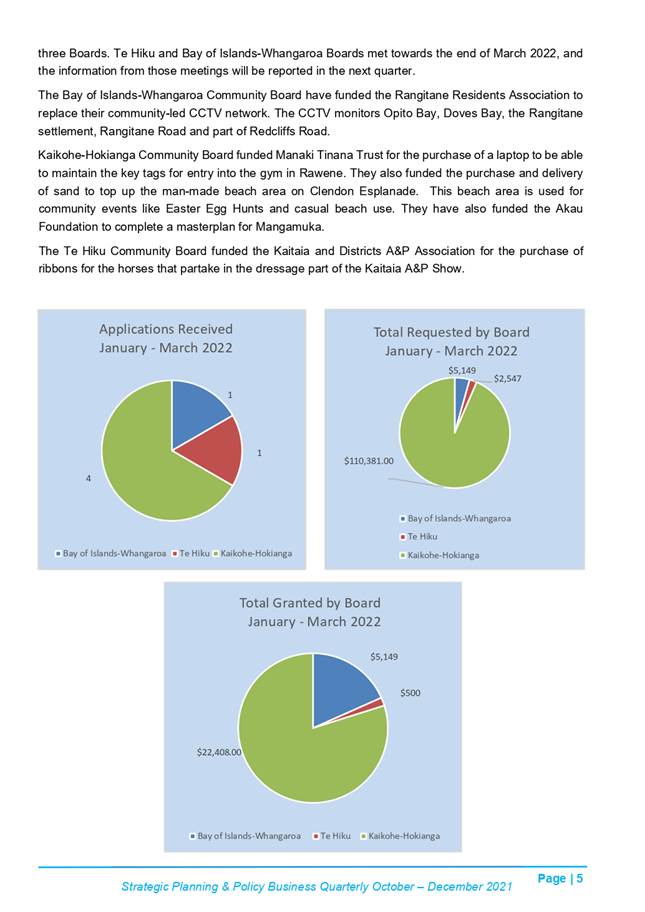
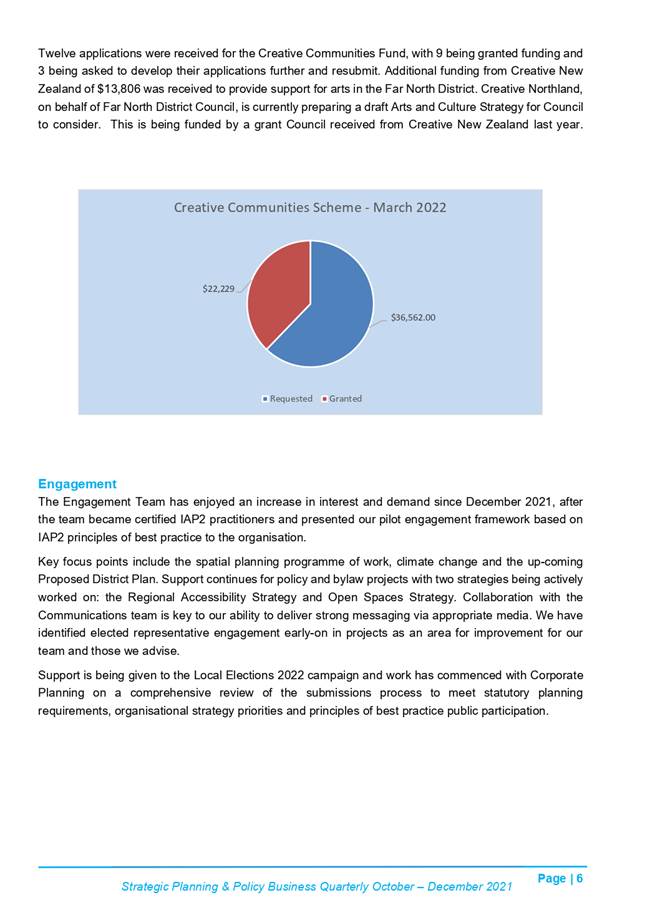
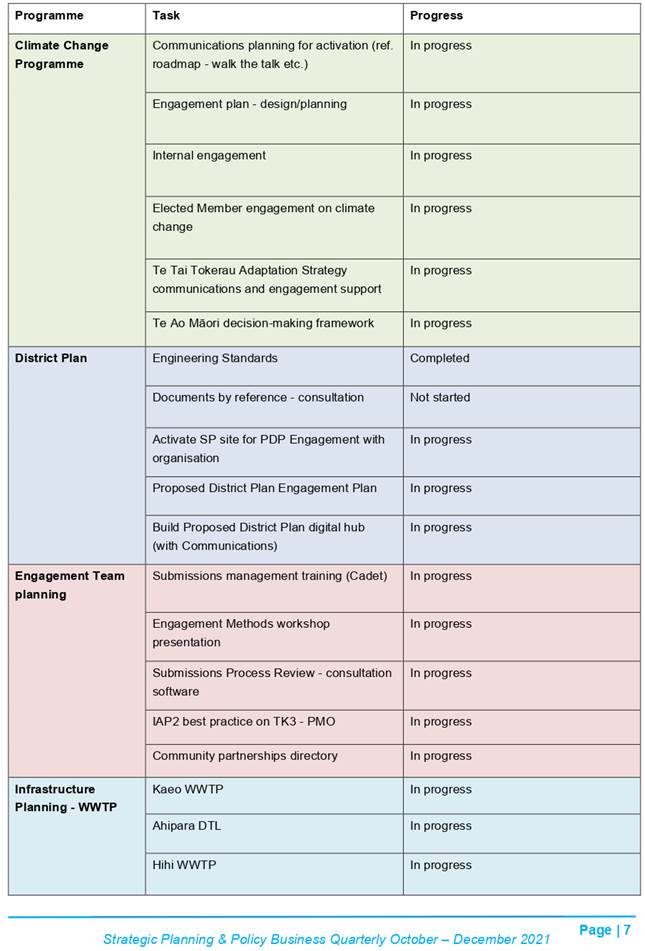
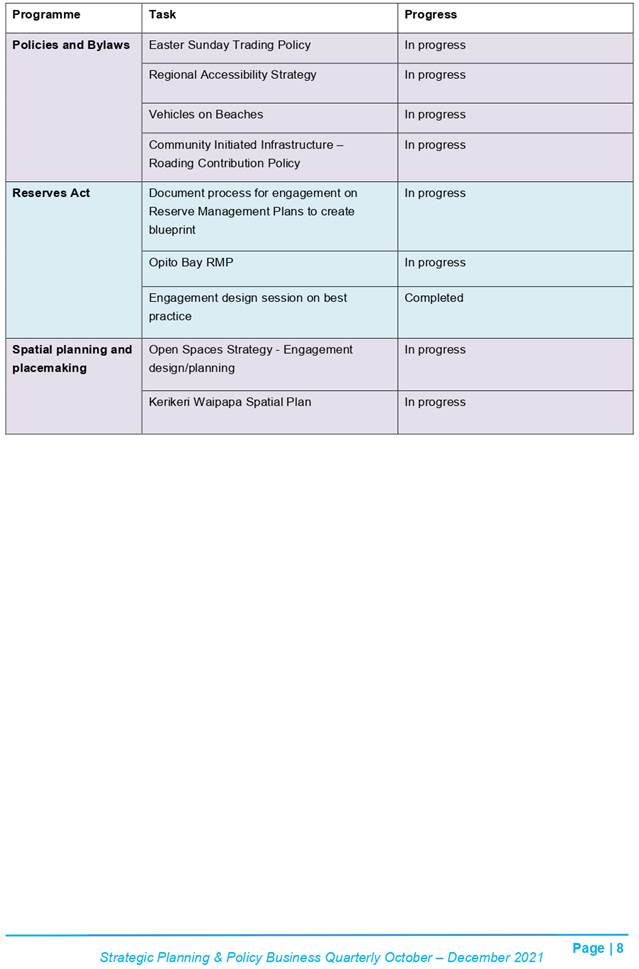
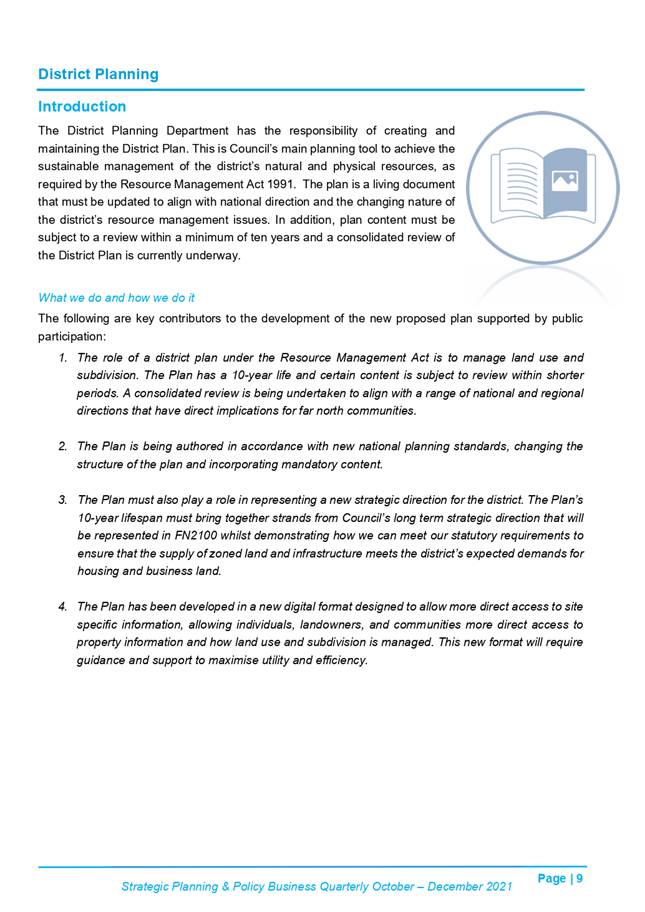
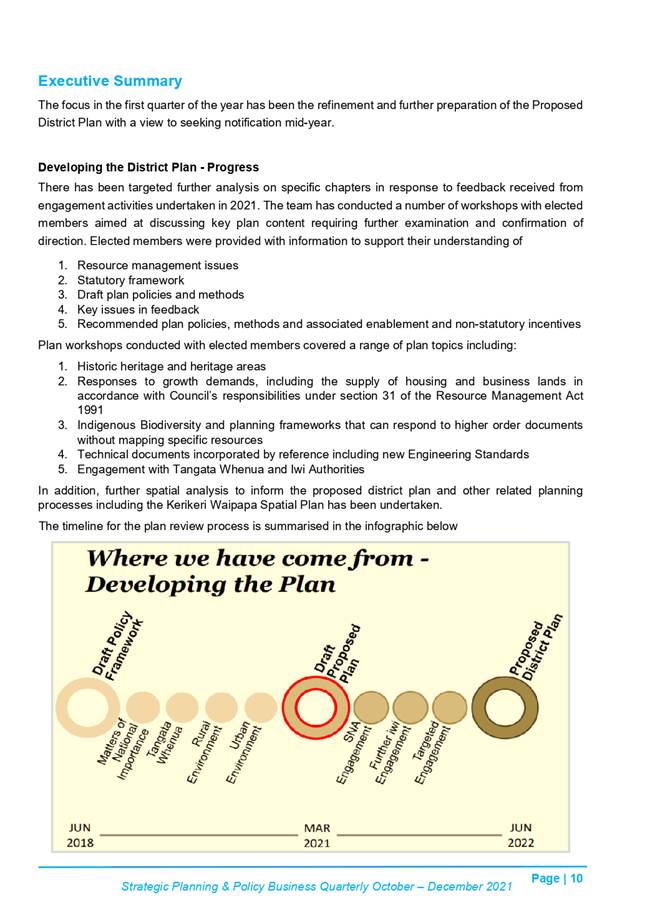
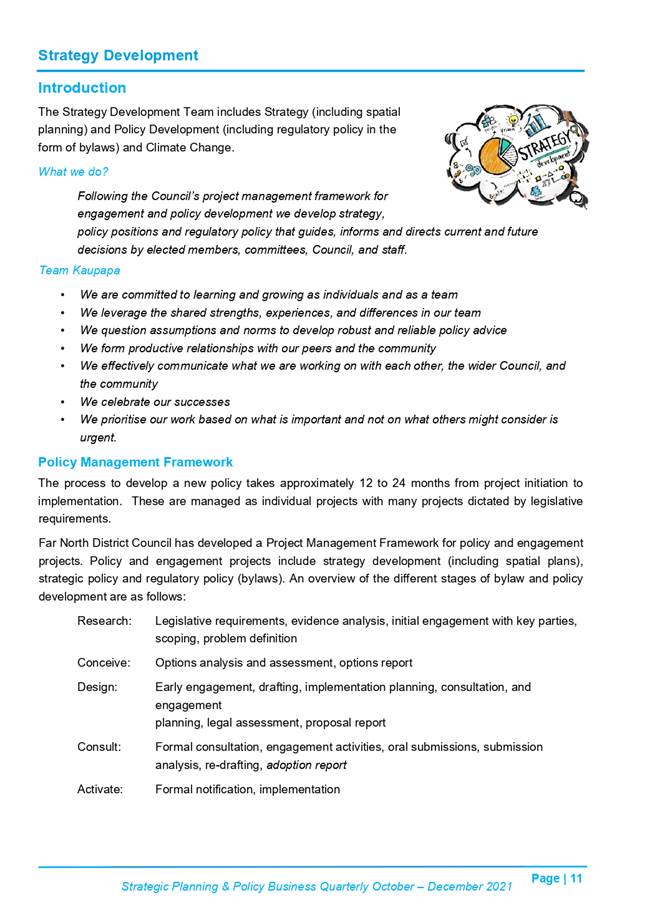
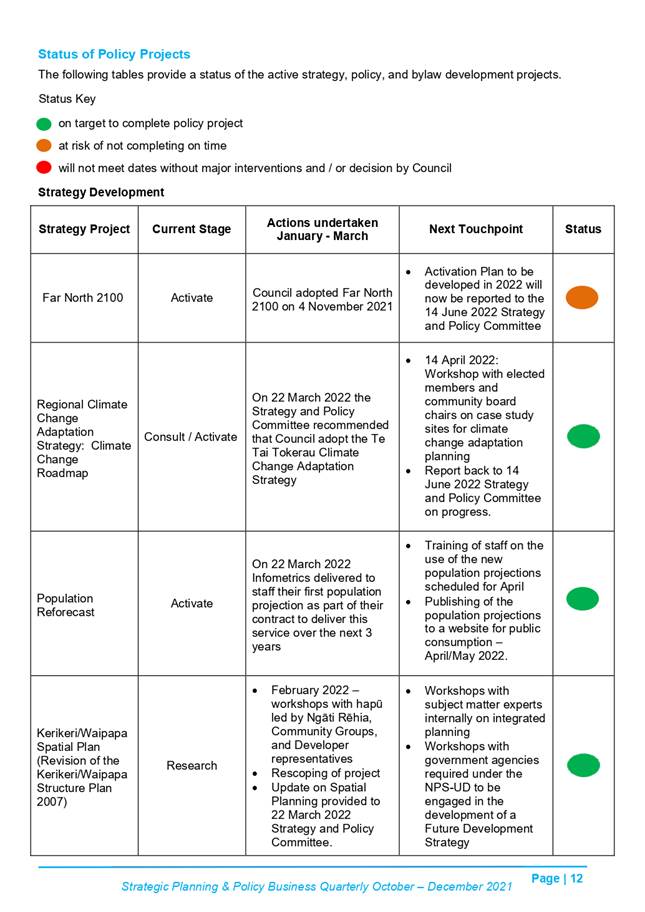
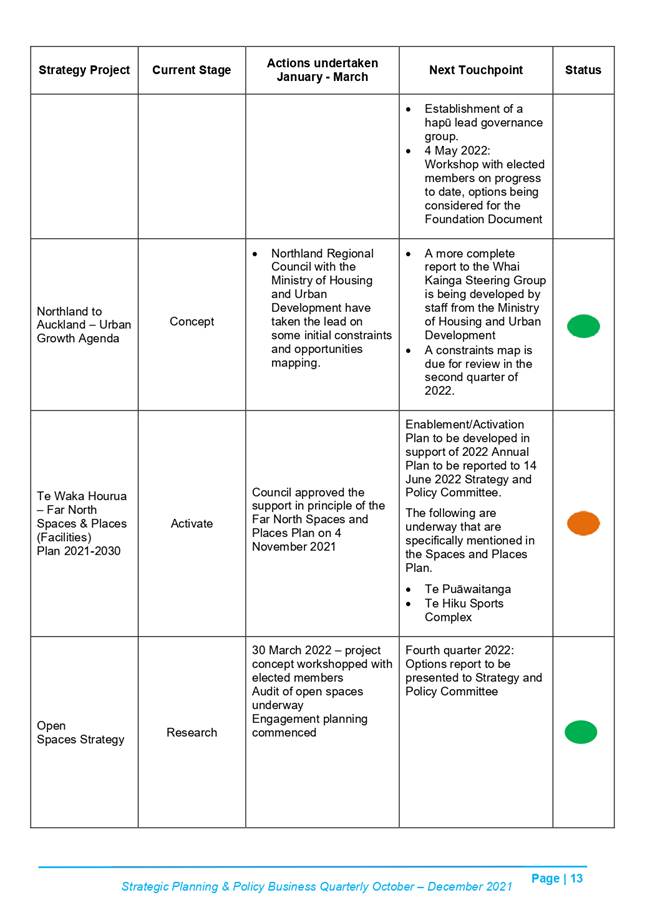
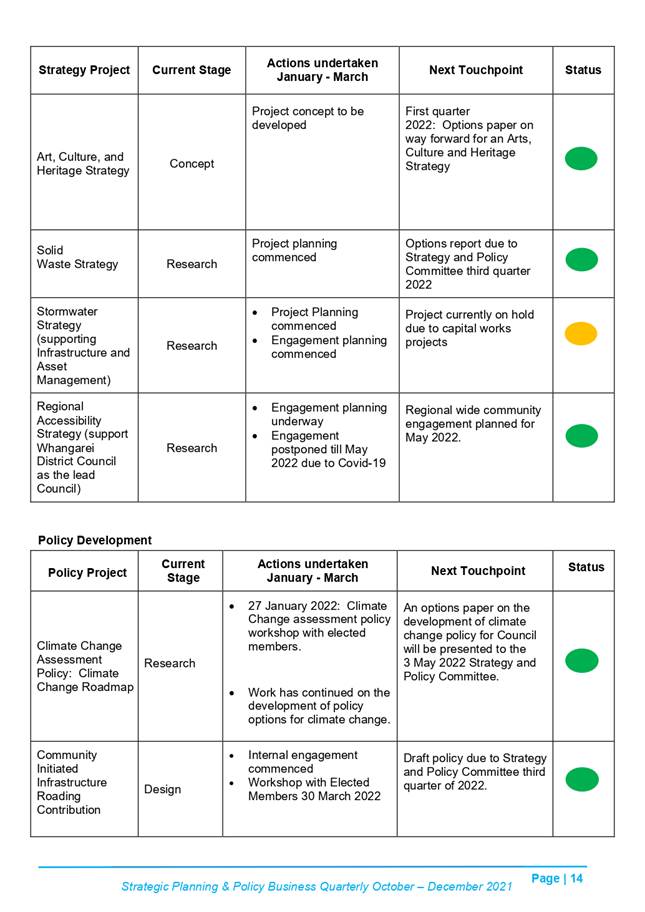
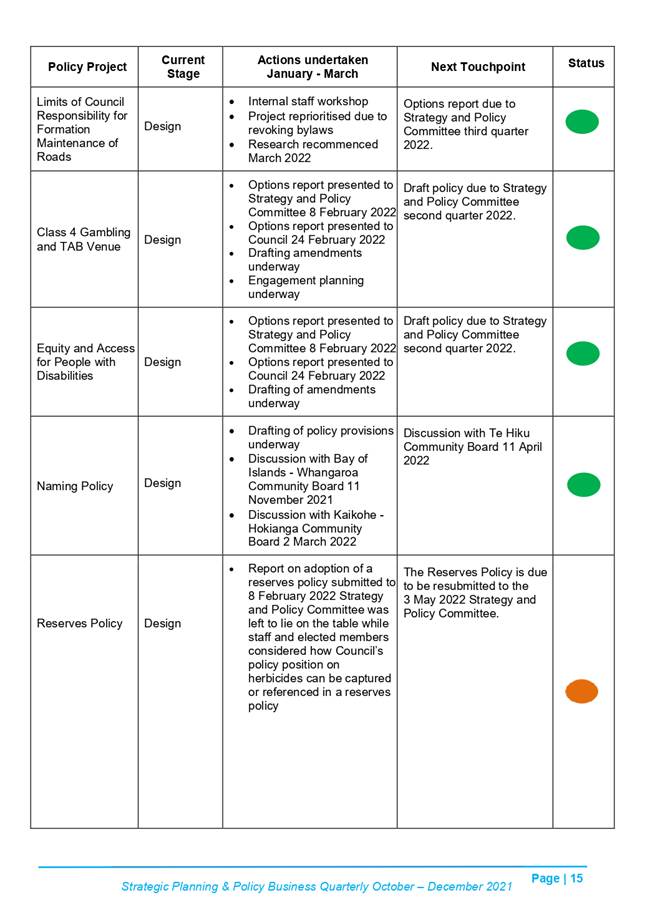
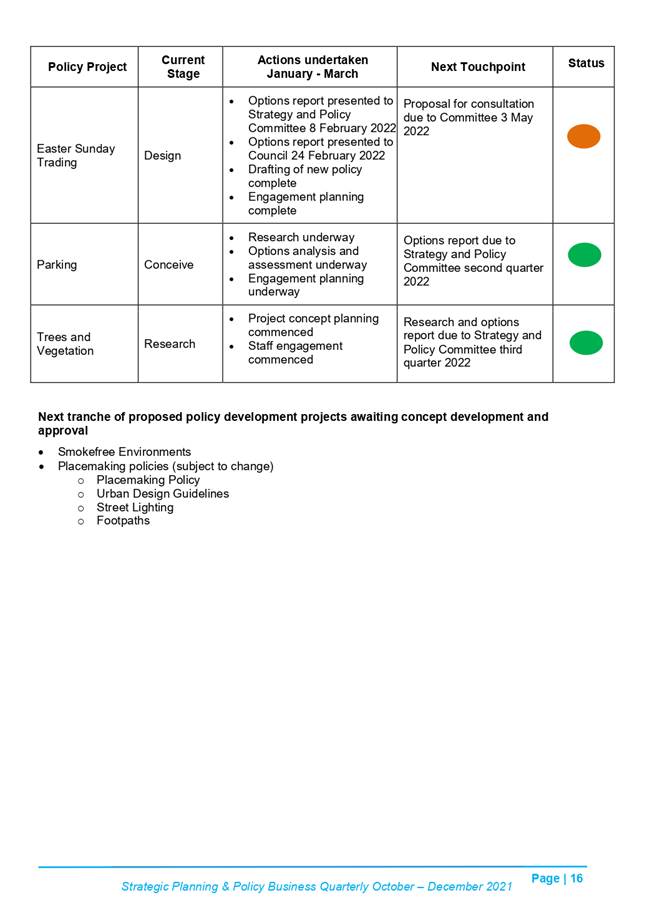
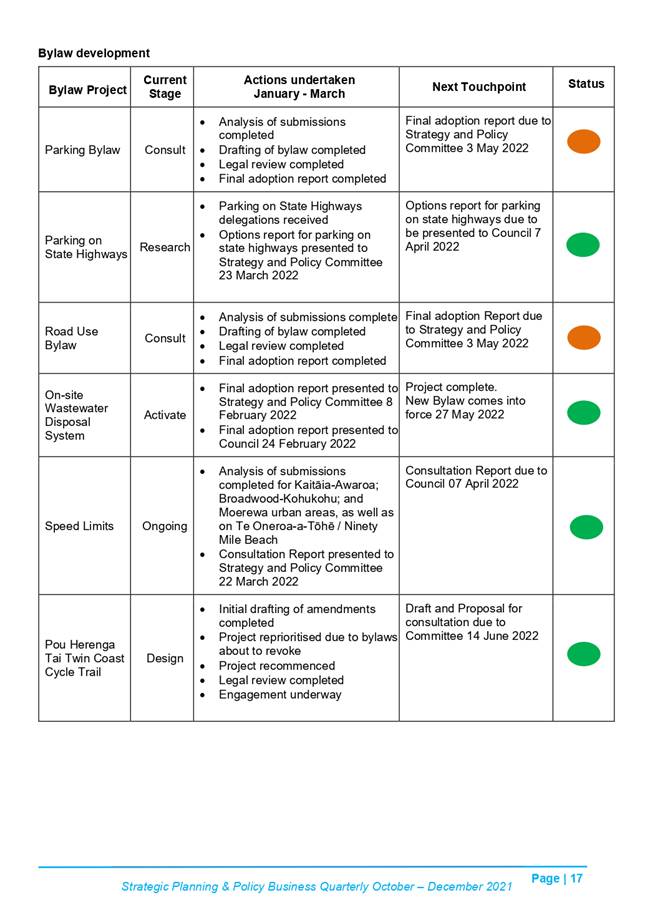
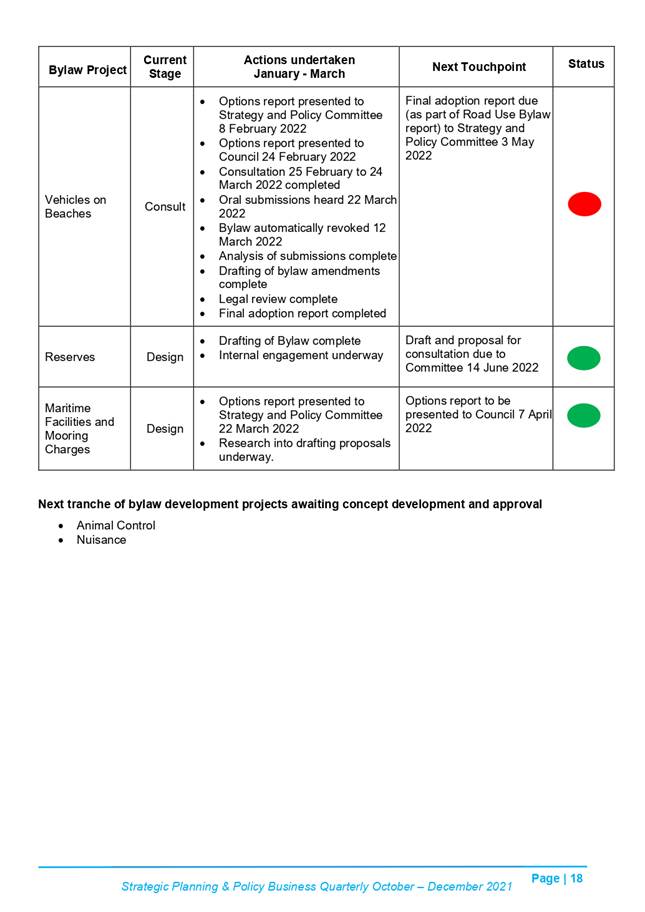

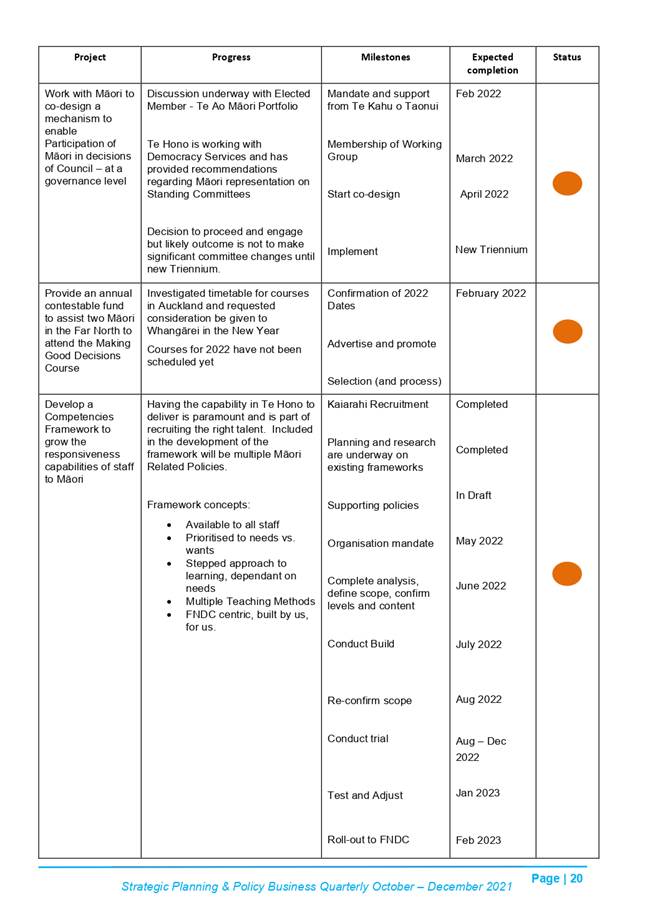

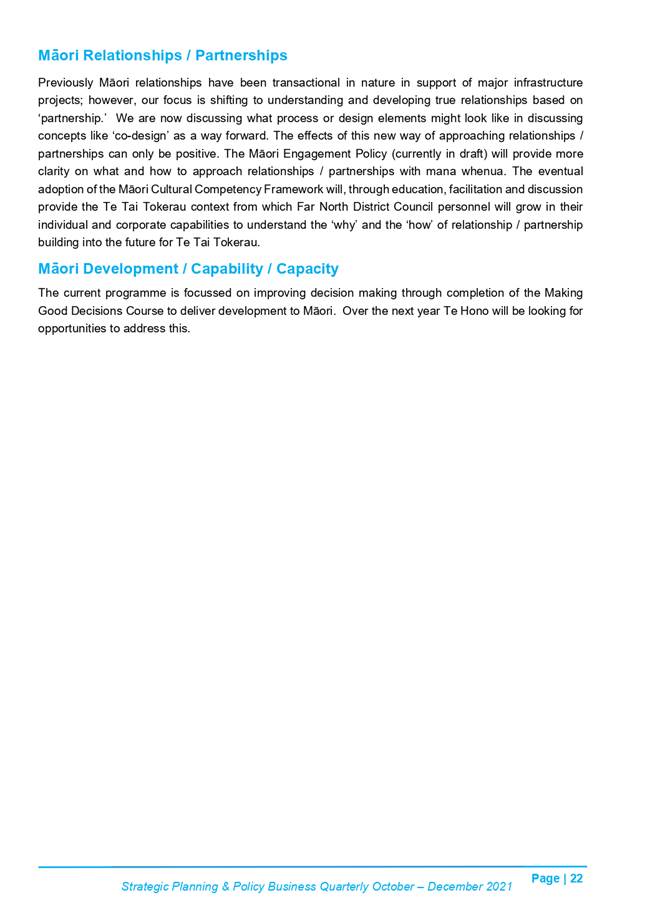

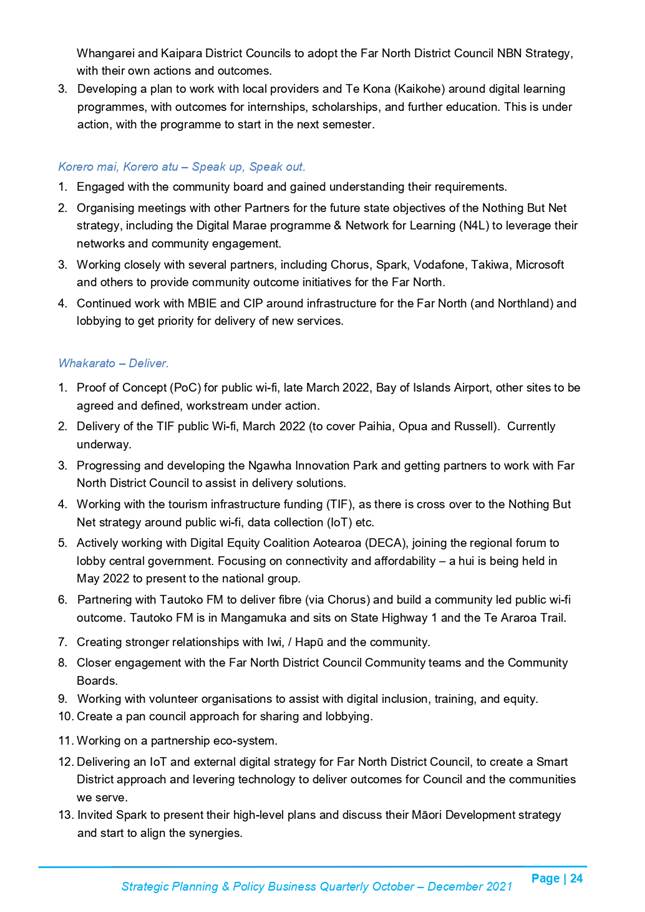
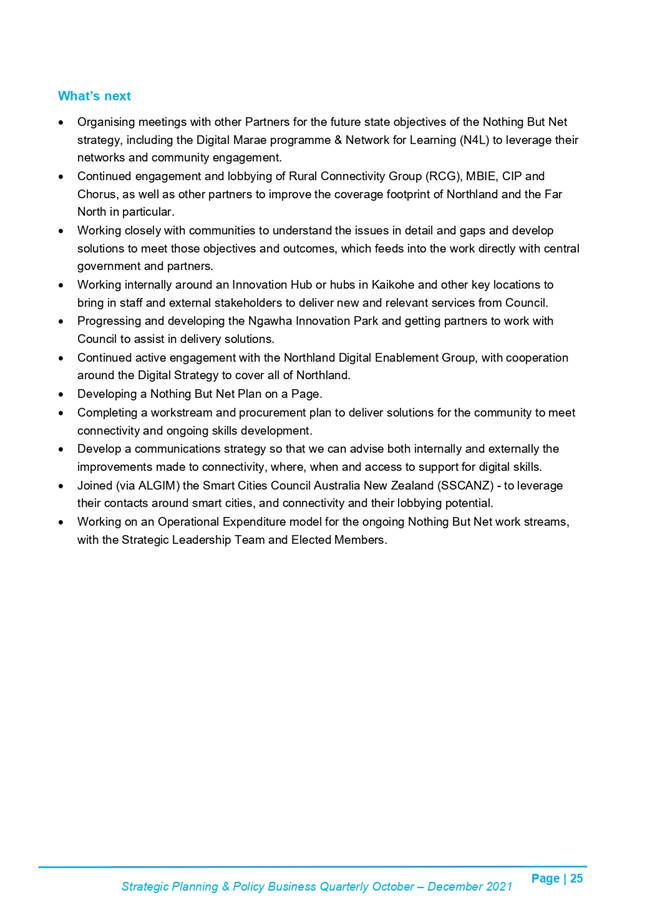
6.3 Natural
and Built Environments Act further feedback to the Ministry for the
Environment.
File
Number: A3612973
Author: Andrew
McPhee, Senior Policy Planner
Authoriser: Darren
Edwards, General Manager - Strategic Planning and Policy
TAKE PŪRONGO / Purpose of the Report
The purpose of the report is to inform the Strategy and
Policy Committee of feedback submitted by the Far North District Council
(Council) on the further questions from the Ministry for the Environment (MfE)
on the Natural and Built Environments Act (NBA).
WHAKARĀPOPOTO MATUA / Executive SummarY
Central Government is in the process of reforming New
Zealand’s resource management framework. The Resource Management Act 1991
(RMA) will be repealed and replaced with three new pieces of legislation.
An exposure draft for the NBA was the first of those three
new pieces of legislation available for comment and a submission was prepared
and lodged by the Council on 3 August 2021.
After reviewing the submissions on the exposure draft for
the NBA, MfE posed some further questions and invited Council to respond.
Feedback on these questions was required by 28 February 2022.
Internal feedback was collated within Council and was
provided to MfE on 25 February 2022.
|
TŪTOHUNGA
/ Recommendation
That the Strategy and Policy Committee receive the
report Natural and Built Environments Act further feedback to the Ministry
for the Environment.
|
tĀHUHU KŌRERO / Background
In February 2021, Central Government announced it would
repeal the RMA and enact new legislation based on the recommendations of the
Resource Management Review Panel. Three new Acts are being prepared:
· Natural
and Built Environments Act (NBA) - the main replacement for the RMA and is
designed to protect and restore the environment while better enabling
development;
· Strategic
Planning Act (SPA) - requires the development of long-term regional spatial
strategies to help coordinate and integrate decisions made under relevant
legislation; and
· Climate
Adaptation Act (CAA) - supports New Zealand’s response to the effects of
climate change and will address the legal and technical issues associated with
managed retreat, as well as the funding and financing for adaptation.
A submission was prepared by
Council on the exposure draft for the NBA and was lodged with the MfE on 3
August 2021 (see Attachment 1).
A select committee reviewed the feedback and made 37
recommendations on 18 November 2021. Following these recommendations, a further
discussion document on the future resource management system was issued in
November 2021 and asked for further feedback in the form of several questions.
Council provided feedback on 25 February 2022 (see Attachment 2).
The timing required to provide feedback meant approval could
not be obtained through the Strategy and Policy Committee (STRAT). The
submission was prepared inhouse by a Council officer and content was consulted
on with the following:
· Internal
departments:
o Environmental
services
o Monitoring
o Strategic
Policy and Planning
o Infrastructure
o Te
Hono
· the
Chair and Deputy Chairperson of the STRAT;
· the
General Manager – Strategic Policy and Planning; and
· the
Manager – District Planning
The submission was lodged under
delegated authority through the Strategy and Policy Committee Terms of
Reference.
MATAPAKI ME NGĀ KŌWHIRINGA /
Discussion and Next Steps
Similarly, to the feedback provided on the exposure draft in
August 2021, Council was limited in terms of what it could meaningfully
feedback given the limited detail provided both in the exposure draft of the
NBA and the more recent materials for discussion. Detail around the SPA and CAA
and how they will relate to the NBA was also absent.
In line with the topics and questions raised in the further
material, Council’s feedback concentrated on the following topics:
· National
Planning Framework (NPF) – Council considered that the NPF needs to be in
place and cover the full range of resource management issues prior to any
regional spatial strategies or NBA plans being released. Council also commented
on timeframes for review and alignment with other Council documents and
strategies.
· Regional
Spatial Strategies (RSS) – Council commented on the importance of
practical implementation plans with triggers to deliver wider infrastructure
requirements and funding. Any agreements around who pays for what, how and when
needs to be cemented up front to ensure that RSS can be implemented, is legally
transparent and is binding.
· NBA
plans – Council stressed the importance of local democratic input in any
plan or placemaking process. Further questions were posed to MfE about the
potential of sub-regional plans in terms of what they would include, their
statutory weight and what obligation an NBA plan would have to include
sub-regional content.
· RSS
and NBA joint committees – Council had concerns around the makeup and
function of joint committees including tangata whenua representation. It was
difficult to understand or interpret what influence local authorities and
select iwi and hapū groups would have within their jurisdiction.
· Consenting
– Council supported the new framework as in theory it should be a marked
improvement with simplified activity classes, consistency of rules,
definitions, and clarity as to which applications are to be notified. Concern
remains how councils will apportion rights to adversely affect natural
resources where they are approved under the NPF and how these systems ensure
environmental bottom lines are not crossed in instances where there are
cumulative effects.
· Compliance,
monitoring, and enforcement (CME) – Council supported user pays in
circumstances where significant Council resource is required for investigation
and enforcement. Concern remains around independent decision making when it is
anticipated that local authorities will continue to be responsible for the
delivery of CME services, including decision-making about when to take
enforcement action and what type of action to take.
· Monitoring
and system oversight – Council supported the proposed approach to
monitoring and oversight as it should lead to positive outcomes for the
environment. Concern remains around implementation and the potential to impose
a significant cost burden on Council, being the expectation is that councils
will continue to be responsible for it.
· Role
of local government in the future system – Council still has concerns
around the accountability relationship between joint committees and their
constituent local authority. There is a need for a clear process road map which
demonstrates how local, regional, and central government contribute to the
future resource management system.
· National
Māori entity – Council considered the establishment of a national
Maori entity in the new resource management system problematic, as the
framework is addressing a regional environment. While a National Māori
entity would provide oversight over systems and processes it would need to
delegate true authority to the regional Māori (iwi/hapū)
authority(ies).
· Enhanced
Mana Whakahono ā Rohe arrangements, integrated with transfers of powers
and joint management agreements – Council considered the process could be
enabled and integrated with transfers of powers and joint management
agreements. It is important that enhanced Mana Whakahono ā Rohe include
all whenua, wai and taonga interests.
· Funding
in the future system – Council considered that the responsibility in
terms of funding the proposed function under the new legislation needs to be
fairly apportioned across the nation and not left to a handful of districts to
protect. Council recommended that a comprehensive funding report be developed
so parliament, local government and communities can support and adopt it. A
full and frank discussion on the issue would be vital to ensure local
government contributions are fair and affordable. Council reiterated its
concern around the significant difficulty attracting and retaining the capacity
and expertise it needs to carry out its existing resource management functions.
It is expected that the feedback
submitted by Council and other stakeholders will be further considered by
Central Government and will contribute to the content and makeup of the NBA and
SPA Bills in the third quarter of 2022.
Government’s intention is to enact both the NBA and
the SPA in this parliamentary term (2023).
PĀNGA PŪTEA ME NGĀ WĀHANGA
TAHUA / Financial Implications and Budgetary Provision
There are no financial implications for Council contributing
by way of further feedback to MfE on the NBA. The preparation of the submission
was absorbed within existing budgets.
Āpitihanga
/ Attachments
1. FNDC
Submission NBA exposure draft_August2021 - A3612965 ⇩ 
2. 2022
02 24 RM reform further feedback - A3612960 ⇩ 
|
Strategy and
Policy Committee Meeting Agenda
|
3 May 2022
|
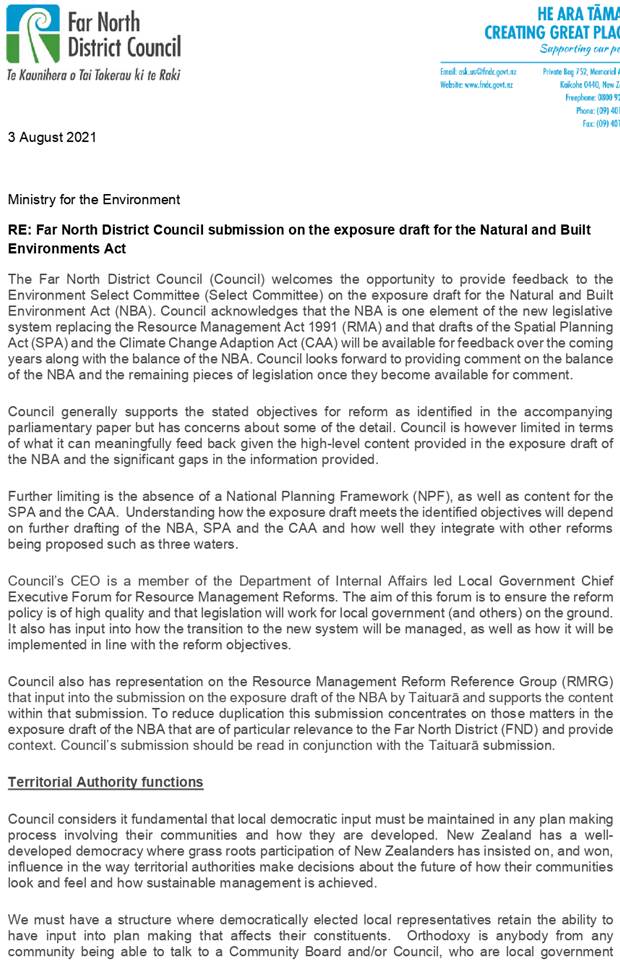
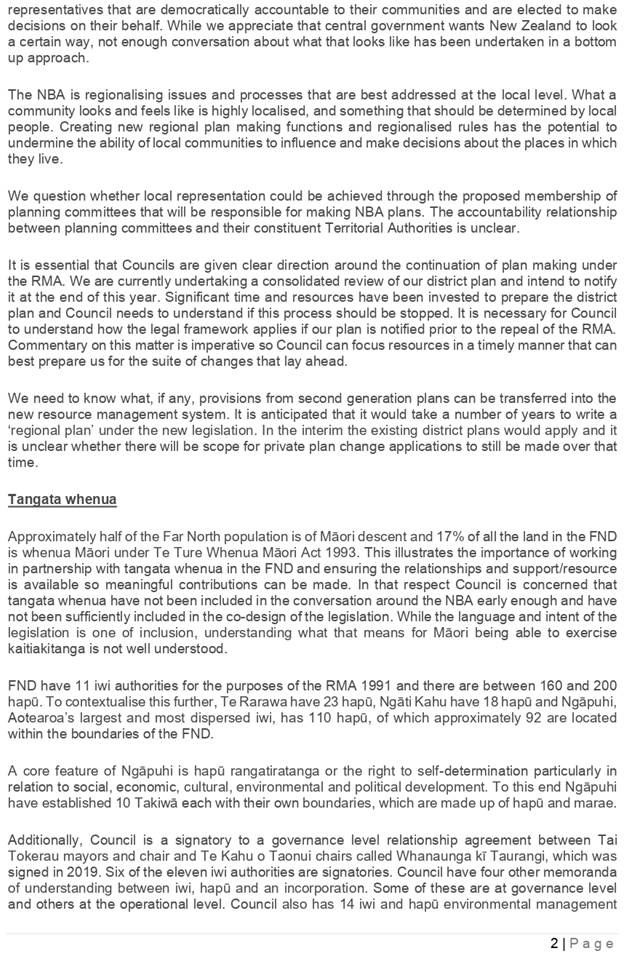
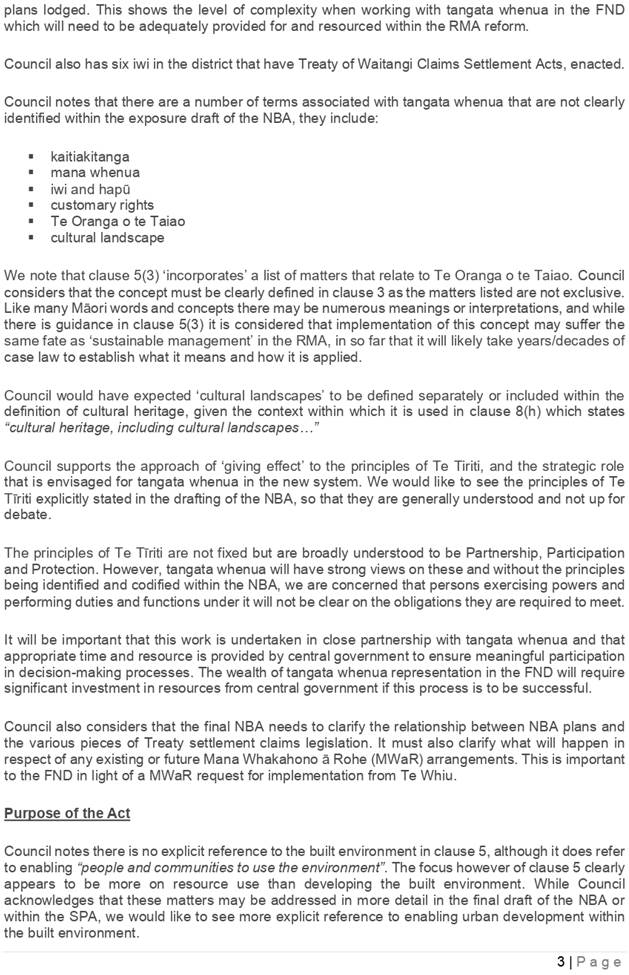
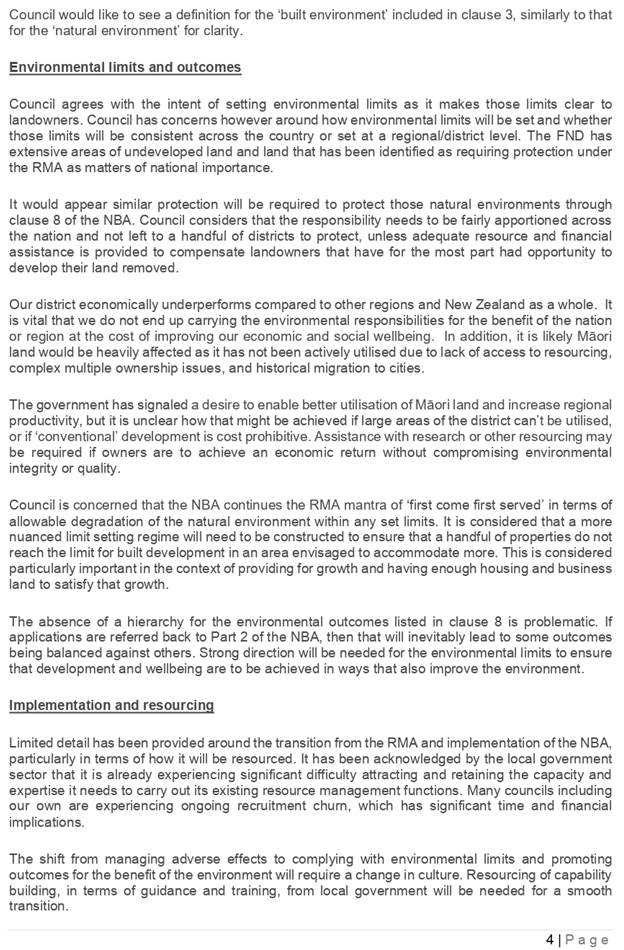
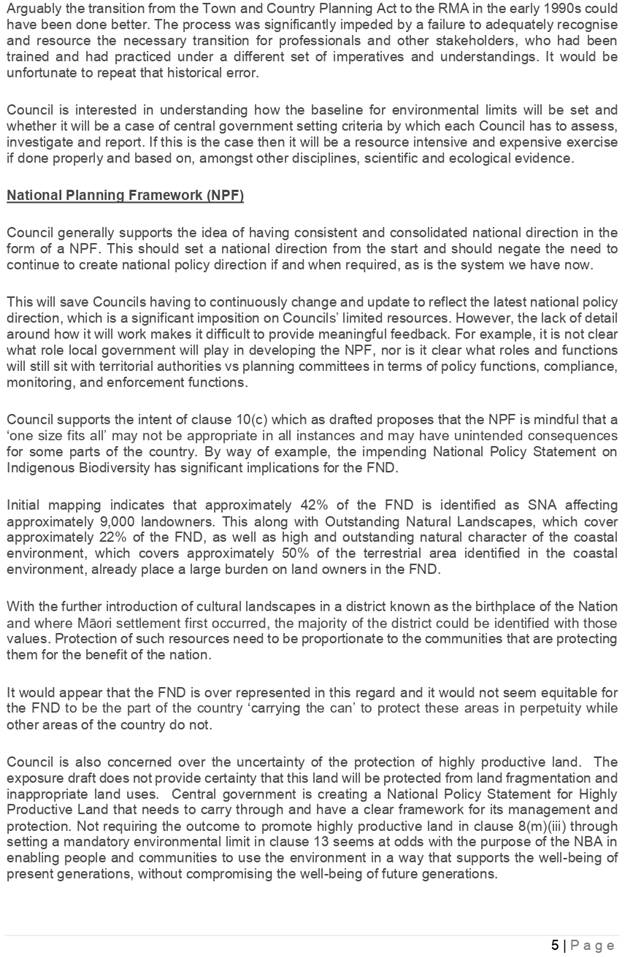
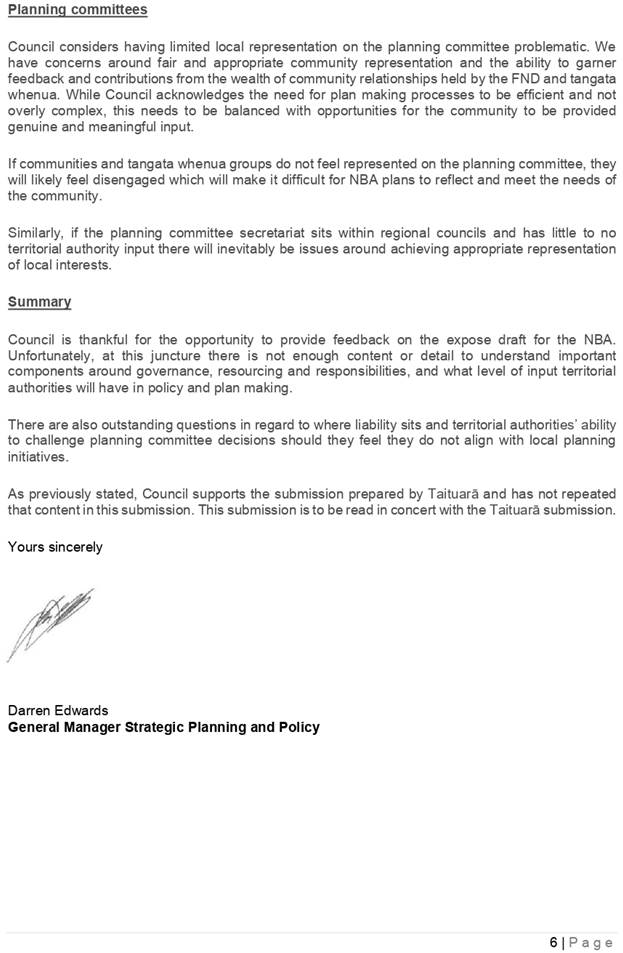
|
Strategy and Policy
Committee Meeting Agenda
|
3 May 2022
|
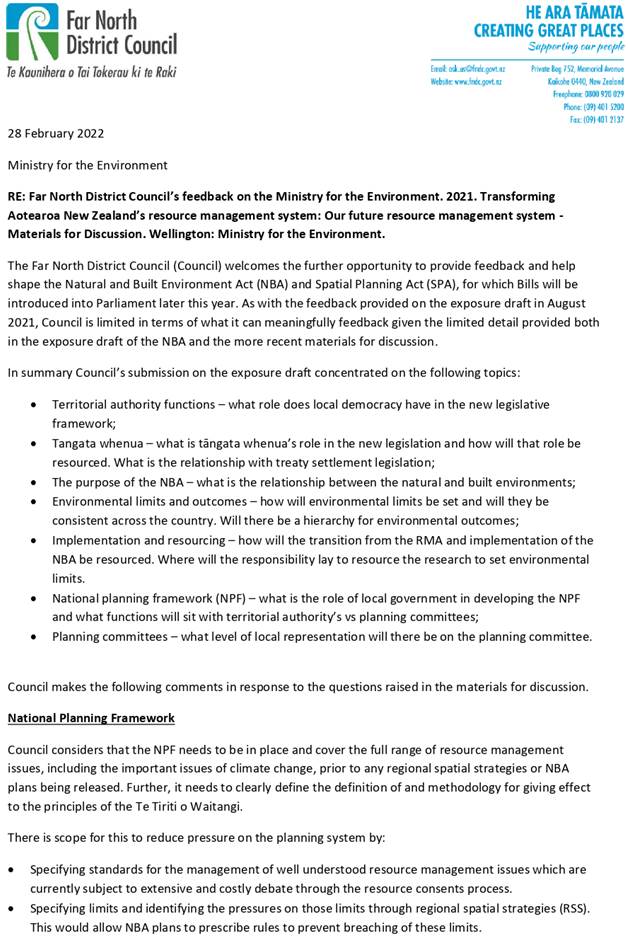
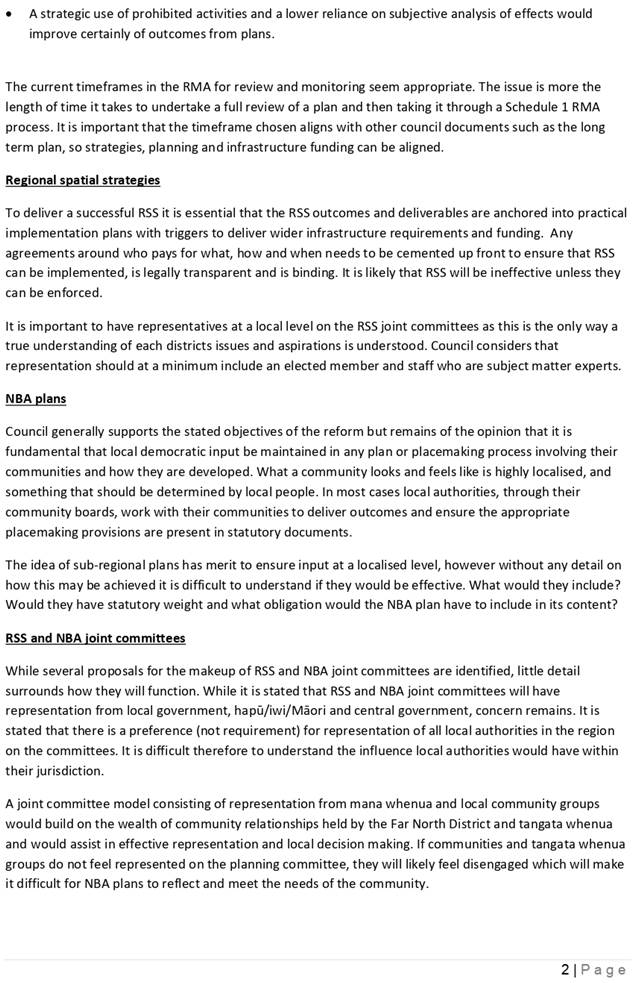
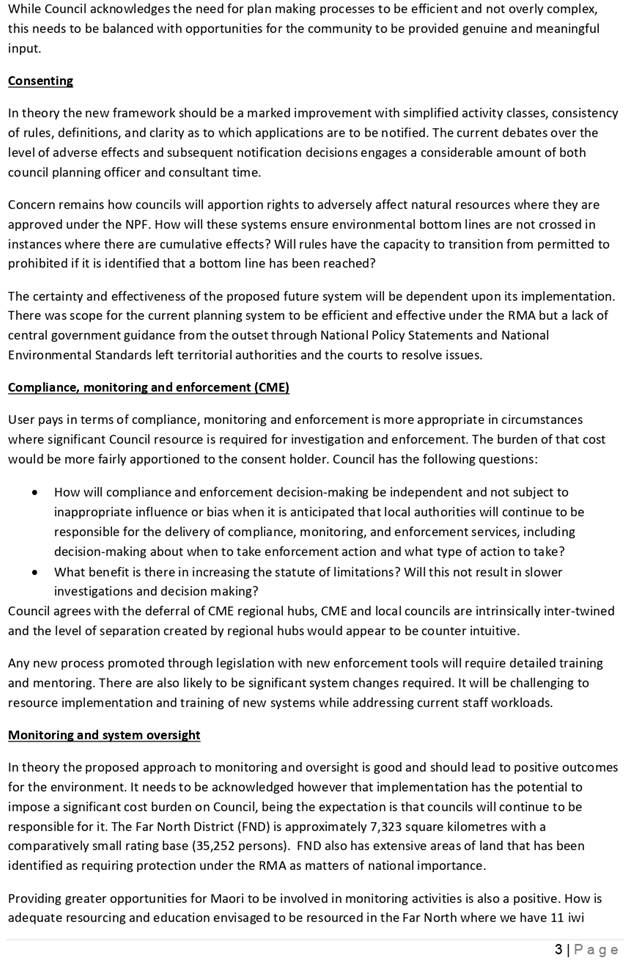
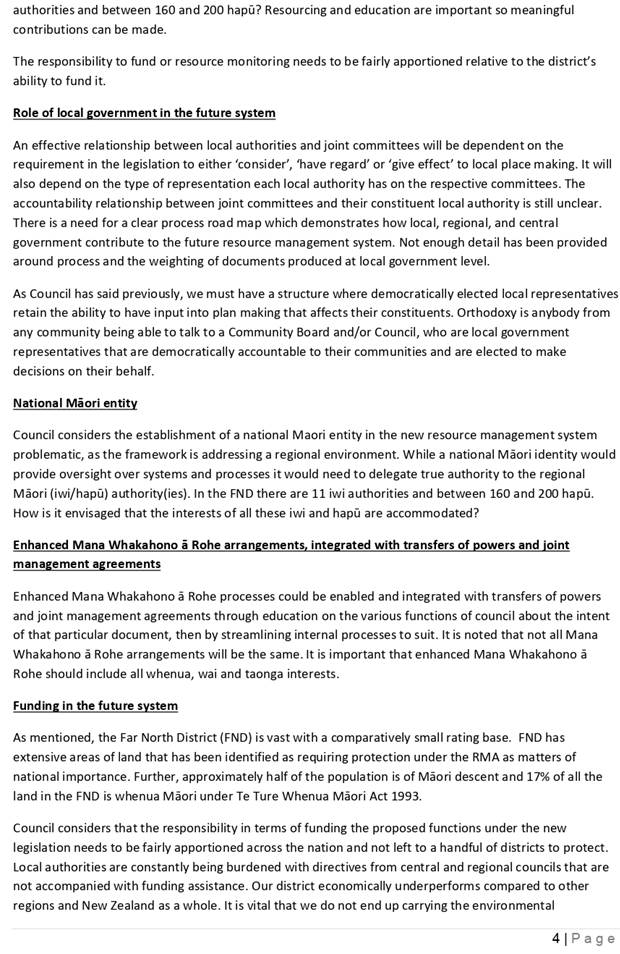
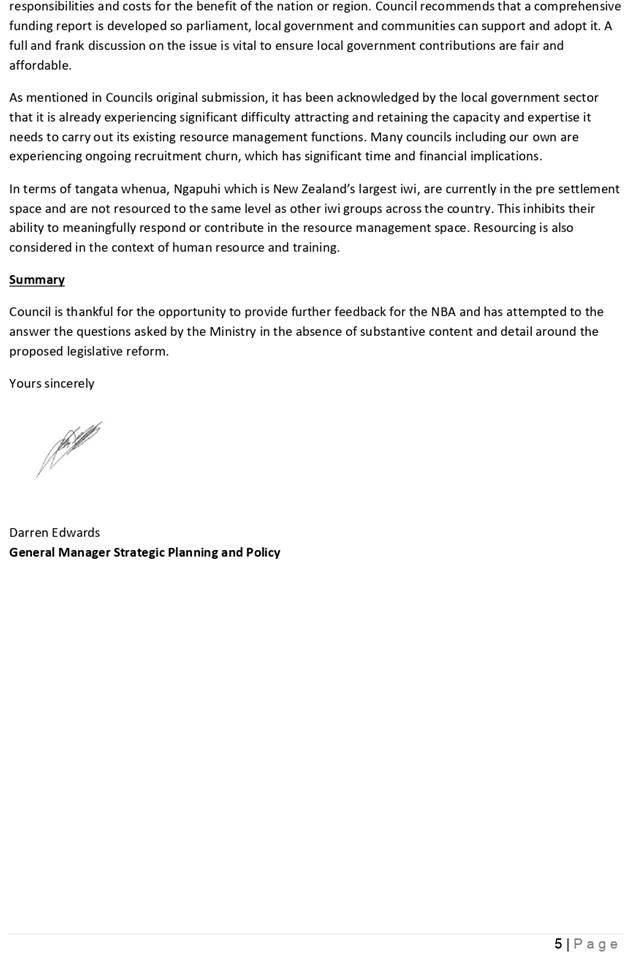
6.4 Mana Whakahono-ā-Rohe /Iwi Participation Arrangement
with Te Rūnanga-Ā-Iwi-Ō-Ngāpuhi
File
Number: A3666679
Author: Greg
Wilson, Manager - District Planning
Authoriser: Darren
Edwards, General Manager - Strategic Planning and Policy
TAKE PŪRONGO / Purpose of the Report
The purpose of this report is to
raise awareness and inform the Strategy and Policy Committee that Te
Rūnanga-Ā-Iwi-Ō-Ngāpuhi have initiated a Mana
Whakahono-ā-Rohe/Iwi Participation Arrangement with Far North District
Council (Council). We will also provide an update of the progress of the
arrangement to date.
WHAKARĀPOPOTO MATUA / Executive SummarY
Te
Rūnanga-Ā-Iwi-Ō-Ngāpuhi formally initiated the Mana
Whakahono-ā-Rohe/Iwi Participation Arrangement with Council by letter on
19 August 2021. A formal hui was held 3 November 2021 between Te Rūnanga-Ā-Iwi-Ō-Ngāpuhi
CEO Sam Napia, Council’s CEO (at the time), Shaun Clarke and General
Manager Strategy & Policy, Darren Edwards. In this formal hui, timeframes,
resourcing, and the beginnings of a negotiation process were agreed and
recorded.
Council has since engaged a
consultant to facilitate and draft the Mana Whakahono-ā-Rohe/Iwi
Participation Arrangement. The first Draft Mana Whakahono-ā-Rohe was
provided to Te Rūnanga-Ā-Iwi-Ō-Ngāpuhi on 7 March 2022.
The Mana Whakahono-ā-Rohe/Iwi
Participation Arrangement with Te Rūnanga-Ā-Iwi-Ō-Ngāpuhi,
presents Council with an opportunity to improve working relationships with
tangata whenua and enhance Māori participation in resource management and
decision-making processes. Engagement in the process is a statutory requirement
for Council under the Resource Management Act 1991.
|
TŪTOHUNGA
/ Recommendation
That the Strategy and Policy Committee receive the
report Mana Whakahono-ā-Rohe /Iwi Participation Arrangement with Te
Rūnanga-Ā-Iwi-Ō-Ngāpuhi.
|
tĀHUHU KŌRERO / Background
The Resource Management Act (RMA) 1991 was amended in April
2017 to introduce a new process (Mana Whakahono-ā-Rohe/Iwi Participation
Arrangements) for establishing iwi participation arrangements between tangata
whenua (through iwi authorities) and councils.
The intent of the
legislation is to:
• Improve
working relationships between tangata whenua and local authorities
• Enhance
Māori participation in RMA resource management and decision-making
processes
Once a formal Mana
Whakahono initiation is made, Council is obliged to respond and conclude the
process within 18 months from receipt of the invitation. Mandatory content to
be discussed, agreed, and recorded includes the following:
i. how an iwi
authority may participate in the preparation or change of a District Plan;
ii. how the
participating authorities will undertake consultation requirements;
iii. how the participating
authorities will work together to develop and agree on methods for monitoring
under the RMA;
iv. how the participating
authorities will give effect to the requirements of any relevant iwi
participation legislation;
v. a process for
identifying and managing conflicts of interest; and
vi. the process that the parties
will use for resolving disputes about the implementation of the Mana Whakahono.
Te Rūnanga-Ā-Iwi-Ō-Ngāpuhi formally
initiated the Mana Whakahono with Council by letter on 19 August 2021, with a
formal hui held 3 November 2021 between Te
Rūnanga-Ā-Iwi-Ō-Ngāpuhi CEO, Sam Napia and Council’s
CEO (at the time), Shaun Clarke and General Manager Strategy & Policy,
Darren Edwards. In this formal hui, timeframes, resourcing, and the beginnings
of a negotiation process were agreed. In this formal hui, it was agreed that
timeframes would be sped up, with a target Mana Whakahono conclusion date of
August 2022.
Subsequently, Council have engaged
a consultant to facilitate the development, preparation, and an implementation
plan of the Mana Whakahono. A project plan and a working draft Mana Whakahono
have been prepared and shared with Te
Rūnanga-Ā-Iwi-Ō-Ngāpuhi on 7 March 2021 as we start the
development of the Mana Whakahono content. We are currently across Council to
inform the development of the Mana Whakahono arrangement and are engaging
directly with Te Rūnanga-Ā-Iwi-Ō-Ngāpuhi.
MATAPAKI ME NGĀ KŌWHIRINGA /
Discussion and Next Steps
The process presents the opportunity to establish a working
relationship with Te Rūnanga-Ā-Iwi-Ō-Ngāpuhi, the largest
Iwi grouping in Aotearoa New Zealand. Ngāpuhi are made up of approximately
96 hapū, 74 marae, and approximately 125,601 people[1] that whakapapa (genealogically
affiliate) to the iwi.
The iwi has not settled, and no mandate has been established
to enable the negotiation process. However, the Crown is preparing for settlement
and has launched Tupu Tonu, an investment fund valued at $150m. The purpose of
the fund is to identify and acquire assets in preparation of settlement.
The Mana Whakahono will allow
Council and Te Rūnanga-Ā-Iwi-Ō-Ngāpuhi to work together on
environmental issues as promoted through the RMA, with the intention to enhance
Māori participation in resource management and decision-making. As
detailed above, the Mana Whakahono-ā-Rohe/Iwi Participation Arrangement
process is a statutory relationship tool that Council must respond to it.
The ‘must include
content’ of the Mana Whakahono arrangement is limited to processes
established under the RMA (see list above), however, Te
Rūnanga-Ā-Iwi-Ō-Ngāpuhi have expressed a desire to include
broader relationship protocols. This may include a shared vision, common,
guiding principles, and funding/resourcing arrangements.
The Mana Whakahono will formalise engagement procedures for
District Plan development, resource consenting, and environmental monitoring.
This will provide certainty to Council when undertaking their roles and
functions under the RMA, as well as establishing communication lines for the
community when undertaking development within the Ngāpuhi rohe (area).
Additionally, the Mana Whakahono arrangement will support
Council in upholding their responsibilities under Te Tiriti o Waitangi / Treaty
of Waitangi. Several risks have been identified, particularly as it relates to
Council’s ability to implement the outcomes of the arrangement within the
agreed or statutory timeframe, and whether there is sufficient resource
available to support implementation.
We will be meeting with Te
Rūnanga-Ā-Iwi-Ō-Ngāpuhi at the end of April to confirm the
negotiation process, agree milestones, and establish review/feedback procedures.
This will ultimately determine the next steps and whether the August 2022
timeframes can be maintained.
PĀNGA PŪTEA ME NGĀ WĀHANGA
TAHUA / Financial Implications and Budgetary Provision
There will be short to
medium term financial implications to support the implementation of the Mana
Whakahono-ā-Rohe/Iwi Participation Arrangement. Budgetary considerations
need to factor in changes to Council standard operating practices, as well as
supporting Te Rūnanga-Ā-Iwi-Ō-Ngāpuhi to build capacity and
capability. Council will need review current budget lines as well planning
financially in Annual and Long-Term Plans.
Āpitihanga
/ Attachments
Nil
6.5 Completion
of the Draft District Plan and Timetable for Notification
File
Number: A3669269
Author: Greg
Wilson, Manager - District Planning
Authoriser: Darren
Edwards, General Manager - Strategic Planning and Policy
TAKE PŪRONGO / Purpose of the Report
To inform elected members
of outstanding matters necessary to resolve prior to seeking elected member
authorisation for notification of the Proposed Far North District Plan 2022.
WHAKARĀPOPOTO MATUA / Executive SummarY
Council is
completing a full review the Operative Far North District Plan 2009 (District
Plan) and a draft District Plan was made available for community feedback in
March 2021. The draft plan has been developed to achieve sustainable management
of natural and physical resources through balancing enabling provisions with
relevant protection and management methods.
Staff
reported on a proposed timeframe for authorisation of plan notification to the
November 2021 Strategy and Policy Committee meeting. The proposed schedule
identified a May 2022 date to seek authorisation for plan notification, based
on the completion of several tasks. Whilst most of these matters have been
addressed, the conclusion of Iwi Authority consultation continues. This
important element of plan consultation is still occurring, and any advice
received is being incorporated into plan provisions where appropriate.
All advice
received is detailed in the relevant section 32 reports, to explain what was
sought and how Council responded. The completion of this process means that
authorisation for plan notification will be sought in the June 2022 Strategy
and Policy Meeting.
|
TŪTOHUNGA
/ Recommendation
That the Strategy
and Policy Committee receive the report Completion of the Draft District Plan
and Timetable for Notification
|
tĀHUHU KŌRERO / Background
1. A consolidated review of the District Plan is
being undertaken to align with a range of national and regional directions that
have direct implications for Far North communities. The District Plan is being
authored in accordance with new national planning standards, changing the
structure of the plan and incorporating mandatory content.
2. The District Plan must also play a role in
representing a new strategic direction for the district. The plan’s
ten-year lifespan must bring together strands from Council’s long term
strategic direction that is represented in FN2100 whilst demonstrating how we
can meet our statutory requirements to ensure that the supply of zoned land and
infrastructure meets the district’s expected demands for housing and
business land.
3. The
draft District Plan has been in development since 2016, with the most recent
edition released for public, stakeholder and tangata-whenua feedback in March
2021. Engagement has been undertaken with Far North communities in two previous
iterations, both in 2016 and 2018/2019 including a series of roadshows and
information sessions in key locations.
4. The
most recent iteration, including the provision of maps and full draft plan
text, is an extension on the previous engagement. Inclusion of spatial planning
elements including maps containing zones and resource overlays represents a
much more specific level of detail. It does however develop on the policy
framework progressed through the previous engagement.
5. The District Plan Team reported on the progress and
ongoing engagement on the making of the new plan in November 2021. Since that
time, evaluation of the draft plan has continued including the progression of
the following matters:
· Analysis and integration of new Region Wide Coastal and River Flood
Hazard Maps
· Evaluation of flood hazard risk in Waipapa utilising the new Region
Wide River Flood Hazard Maps
· Evaluation of feedback on draft Heritage Areas and direction setting
with elected member input on next steps
· Continuation of iwi engagement, in accordance with the consultation
requirements of Clause 3B and Clause 4 of Schedule 1 of the Resource Management
Act 1991 (RMA)
· Updating of section 32 reporting to reflect the outcomes of iwi
engagement and public feedback
· Integration of plan content in the e-plan format
6. These processes have been further developed and
integrated within the proposed plan provisions and section 32 reporting.
The process of iwi engagement, including consultation with iwi authorities has
also progressed but had not been completed. Several iwi authorities remain
active in responding on the draft plan. In addition to this on August 2021, Te
Rūnanga-Ā-Iwi-Ō-Ngāpuhi have initiated a Mana
Whakahono-ā-Rohe / Iwi Participation Arrangement with Far North District
Council, which will create new and more integrated resource management
processes involving Te Rūnanga-Ā-Iwi-Ō-Ngāpuhi, whilst
strengthening the relationship with country’s largest iwi authority.
7. These
processes have been further developed and integrated within the proposed plan
provisions and section 32 reporting. The process of iwi engagement,
including consultation with iwi authorities has also progressed but had not
been completed. A number of iwi authorities remain
active in responding the draft plan. In addition, Te Rūnanga-Ā-Iwi-Ō-Ngāpuhi have
initiated a Mana Whakahono-ā-Rohe /Iwi Participation Arrangement with Far
North District Council in August 2021, which will create new and more integrated
resource management processes involving Te
Rūnanga-Ā-Iwi-Ō-Ngāpuhi, whilst strengthening the
relationship with country’s largest iwi authority.
8. Section 32(a) of the RMA requires that Council
summarise all provided by iwi authorities as well as summarise the response to
all advice in Council’s section evaluation report. Discussions with a
number of iwi authorities are continuing, and further plan evaluation and
integration will be required prior to finalising the proposed plan and
associated reporting.
9. The timeline set out
below summarise the process and key steps and dates for plan development upon
notification.
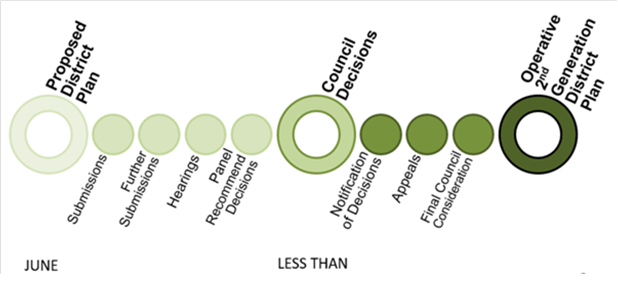
MATAPAKI ME NGĀ KŌWHIRINGA /
Discussion and Next Steps
1. Several elected member workshops and briefing
sessions have been conducted in first quarter of 2022 to bring to
elected members appropriate information, options, and recommendations to
achieve sustainable management outcomes through the district plan.
2. Discussions
will continue with elected members as the proposed plan continues along the
path seeking elected ember authorisation for public notification.
3. The
premise of the approach is to ensure that there are several check points to
allow elected members to be fully aware of issues raised by the relevant
tangata-whenua parties and Far North communities and to ensure that staff can
provide analysis and evaluation of the feedback, consistent with our statutory
role, to allow elected members to make informed decisions on the direction of
the proposed plan.
4. Quality assurance, technical integrity and
e-plan integration will continue to occur as elected member direction setting
takes place.
5. A final version of the proposed plan will be
brought to the June 14, 2022, Strategy and Policy meeting for elected member
authorisation for notification to occur in June 2020.
6. Discussions, support, and
guidance with other Council Departments impacted by plan implementation will
continue with a view to ensure that efficient processing of resource consents,
Land information Memorandum, Project Information Memorandum and RMA monitoring
can be achieved post notification.
PĀNGA PŪTEA ME NGĀ WĀHANGA
TAHUA / Financial Implications and Budgetary Provision
Council has
a legal obligation to have a district plan and review that plan. Ongoing
engagement, refinement of plan content and notification of the plan and
associated statutory processes will continue to draw on staff resource and
allocated budget for district plan processes, including the use of external
specialists.
There may
be relevant matters that fall outside of the current version of the plan, that
must be given regard to under the RMA, such as new highly productive land and
biodiversity provisions in national direction instruments.
Āpitihanga
/ Attachments
Nil
6.6 Bi-Annual
Sport Northland Report - 1 July 2021 to 30 December 2021
File
Number: A3675344
Author: Sheryl
Gavin, Manager - Corporate Planning & Community Development
Authoriser: Darren
Edwards, General Manager - Strategic Planning and Policy
TAKE PŪRONGO / Purpose of the Report
To receive Sport Northland’s report on its activities
and achievements in the Far North District for the period 1 July 2021 to 30
December 2021.
WHAKARĀPOPOTO MATUA / Executive SummarY
Sport Northland spends approximately $1.1m annually
providing a programme of play, active recreation, and sport in the Far North.
Council helps to fund these activities by way of an annual
grant. In 2021-22 $151,500 was provided. The total granted is adjusted annually
to accommodate inflation. For 2022-23 the allocation is $156,335.
Council’s contribution covers about 14% of the actual total cost, with
the balance provided by other parties including Sport NZ, Foundation North,
Oxford Sports Trust, local sponsors, other funders, and user pays.
The partnership agreement between Council and Sport
Northland obliges Sport Northland to report on its activities every six months.
Attached is the report for the period 1 July 2021 to 30 December 2021.
Sport Northland representatives will address the Committee
to present their report, answer questions, and talk through their refreshed
strategic plan as it pertains to sport in Taitokerau and post-pandemic
recovery.
|
TŪTOHUNGA
/ Recommendation
That the Strategy and Policy Committee receive the
report Bi-Annual Sport Northland Report - 1 July 2021 to 30 December 2021.
|
tĀHUHU KŌRERO / Background
Council’s annual grant to Sport Northland is an essential
component of the $1.1m that is spent on a professionally run programme of
sport, recreation, and physical activities in the Far North.
The partnership agreement between Council and Sport
Northland obliges the latter to provide a bi-annual report outlining activities
and achievements.
While these reports have always been furnished as required,
they have not always been made available to Council. There is no obvious reason
for this inconsistency. In future, however, reports will be brought to the Strategy
and Policy Committee to ensure that the partnership’s achievements toward
important community wellbeing outcomes remain front of mind.
MATAPAKI ME NGĀ KŌWHIRINGA /
Discussion and Next Steps
Highlights in for the 1
July – 31 December 2021 period are:
· Delivery
of the 24th year of the Top Energy WaterSafe programme reaching
almost 50 schools with dry land and water-based sessions;
· Funding
two Community Connectors dedicated to local play, active recreation, and sports
– one in the Far North and one in the Mid North.
· Continuation
of the Healthy Active Learning programme, supporting 55 schools and kura to
deliver PE/physical activity/ play and sport, and to support healthier food and
drink environments.
· A
successful Summit Forests Kaitaia Trail Run/Walk event that attracted 388
participants.
· An
ongoing range of community focused services designed to increase participation,
including Green Prescription, Active Workplaces, and Strength and Balance.
· Continued
involvement with the Bay of Islands Recreation Centre, Kaikohe and Districts
Sportsville at Lindvart Park, and the Te Hiku Sports Hub project.
· Implementation
of the Whaiao team to support increased outcomes for Māori through play,
active recreation and sport in a way that is culturally appropriate to
Māori.
· Development
of young talent through the Kauri Club.
· $266,601
in Tu Manawa Active Aotearoa funding for 23 organisations in the Far North,
including $25,000 in Rural Travel funding.
Sport Northland acknowledges the
significant impact on their mahi by way of alert-level restrictions and reduced
opportunities to carry on business as usual and has remained as agile as
possible to lend a hand in pandemic-related activities such as working with
sports clubs to hold vaccination events where the need and value-add was
evident.
The impact of Covid on their
facilities has been substantial, and the regeneration of cash reserves will
likely take some time to recover. However, confidence is on the improve now
that restrictions have eased, and sporting events can resume. Note that events
that could not proceed under past restrictions were deferred rather than
cancelled, so we should see the revival of a strong sports event programme
restored over time over the next few reporting periods as we move beyond the
pandemic.
PĀNGA PŪTEA ME NGĀ WĀHANGA
TAHUA / Financial Implications and Budgetary Provision
There are no unbudgeted financial implications. The Sport
Northland grant remains locked into Annual Plans spanning the period of the
partnership agreement.
Āpitihanga
/ Attachments
Nil
6.7 Strategy
and Policy Action Sheet Update April 2022
File
Number: A3675231
Author: Joshna
Panday, Democracy Advisor
Authoriser: Aisha
Huriwai, Team Leader Democracy Services
Take Pūrongo / Purpose of the Report
To provide the Strategy
and Policy Committee with an overview of outstanding decisions from 1 January
2020.
WhakarĀpopoto matua / Executive Summary
· Action
sheets provide the meeting with oversight of decisions not yet implemented.
· This
report and attachment are as at April 2022.
· There
are 4 outstanding action sheet items.
· A verbal
update on the Action Sheet items will be provided at the meeting at the request
of the committee members.
|
tŪtohunga
/ Recommendation
That the Strategy and Policy Committee receive
the report Action Sheet Update for April 2022.
|
1) TĀhuhu kŌrero / Background
The Democracy Services Team have been working on a solution
to ensure that elected members can receive regular updates on progress against
decisions made at meetings, in alignment with a Chief Executive Officer key
performance indicator.
Action sheets are a mechanism to communicate with elected
members, progress by staff on implementing resolutions of a formal meeting.
2) matapaki me NgĀ KŌwhiringa /
Discussion and Options
This report includes 13 outstanding items. A majority of the
outstanding tasks are multi-facet projects that take longer to fully complete.
The Democracy Services staff are working with staff to
ensure that the project completion times are updated so that action sheets
provided to members differentiate between work outstanding and work in
progress.
Staff are encouraged to provide commentary that keeps in
mind
· Consistent
wording indicating a traffic light, on track off track terminology.
· The
date and promise culture that the organisation strives for.
Take Tūtohunga
/ Reason for the recommendation
To provide the Strategy and Policy Committee with an
overview of outstanding committee decisions from 1 January 2020.
3) PĀnga PŪtea me ngĀ
wĀhanga tahua / Financial Implications and Budgetary Provision
There are no financial
implications or need for budgetary provision in receiving this report.
Āpitihanga
/ Attachments
1. SPC
Action Sheet - May 2022 - A3683375 ⇩ 
|
Strategy and
Policy Committee Meeting Agenda
|
3 May 2022
|
